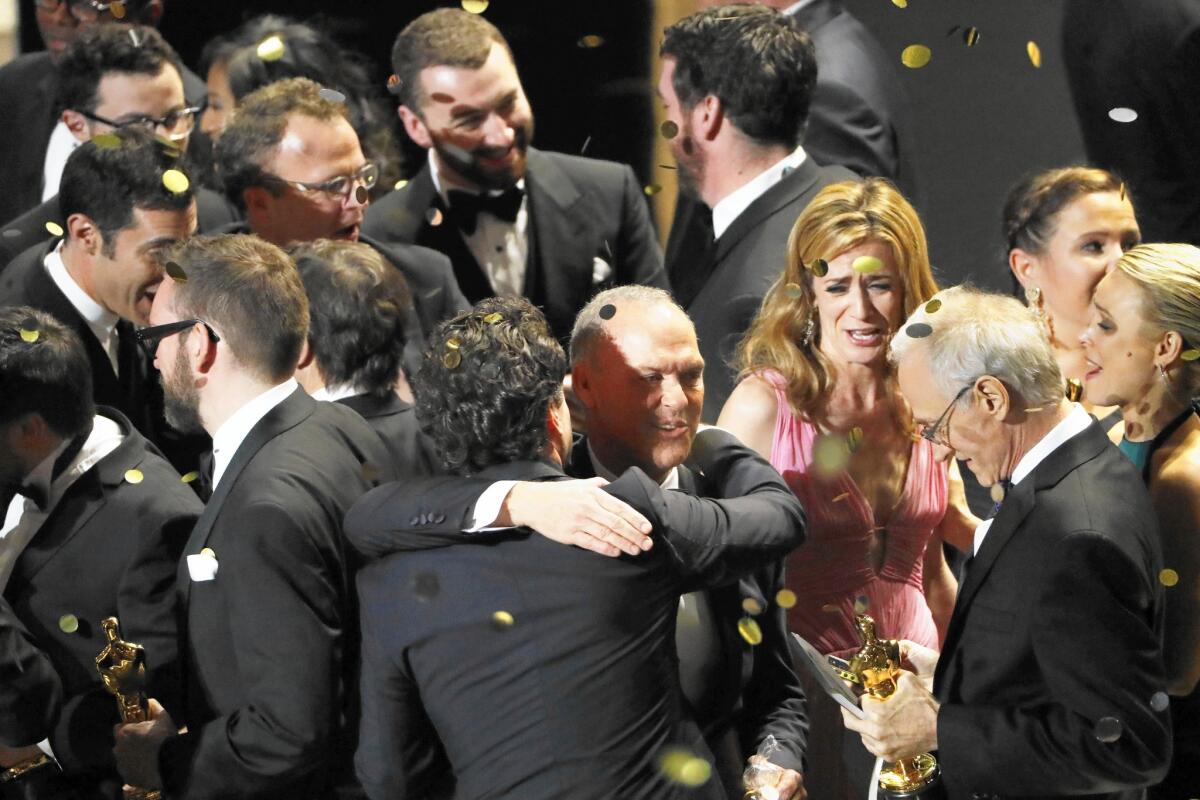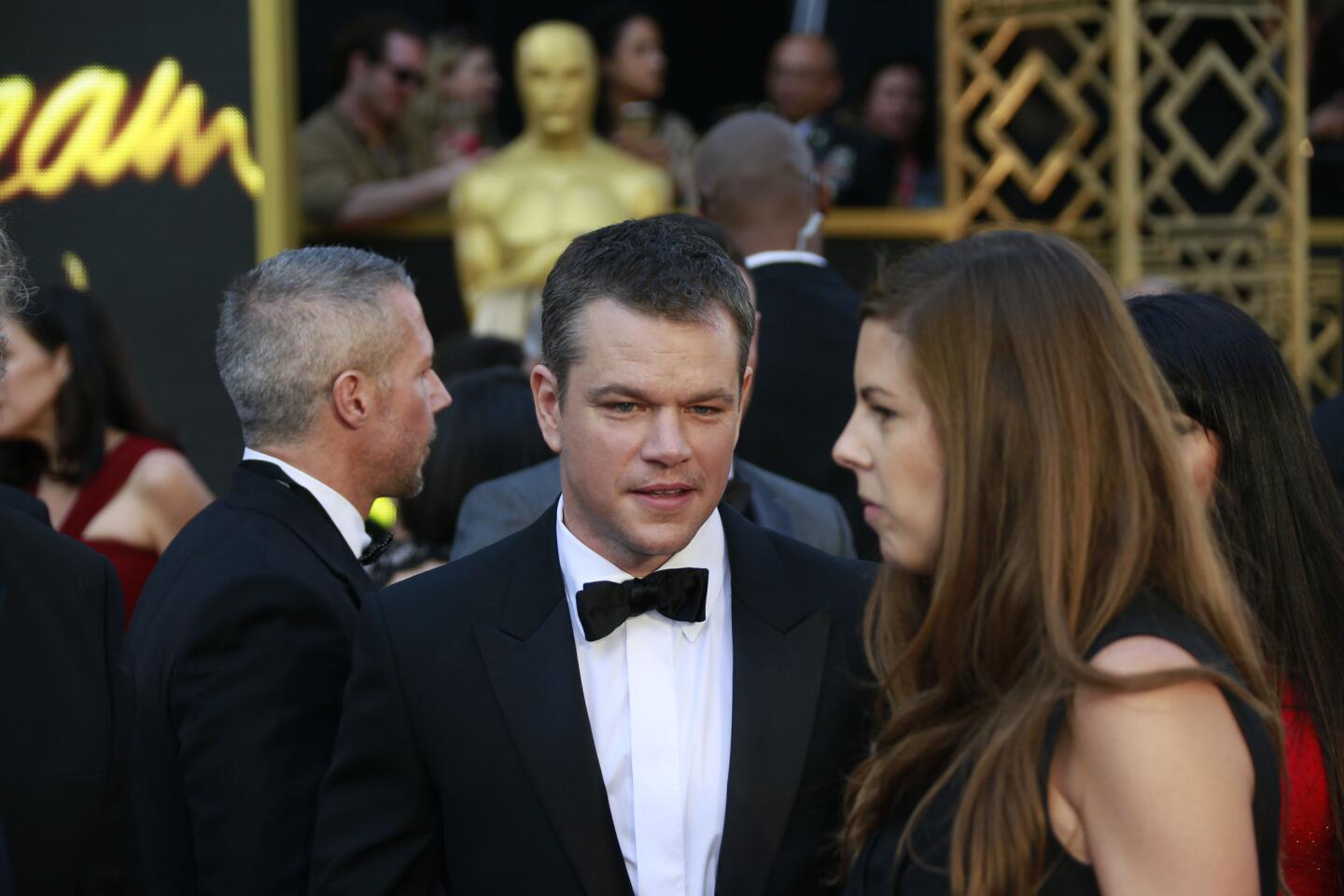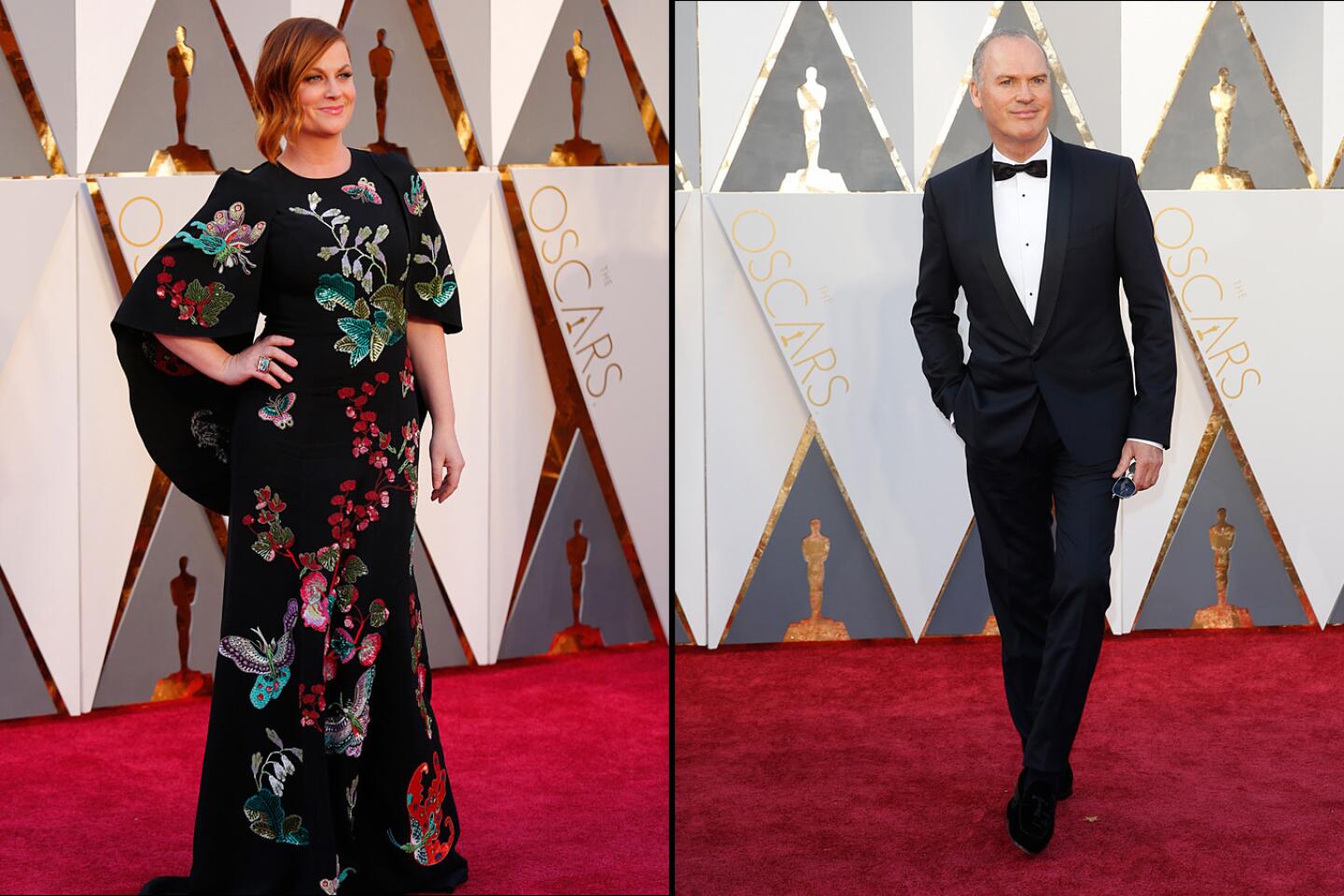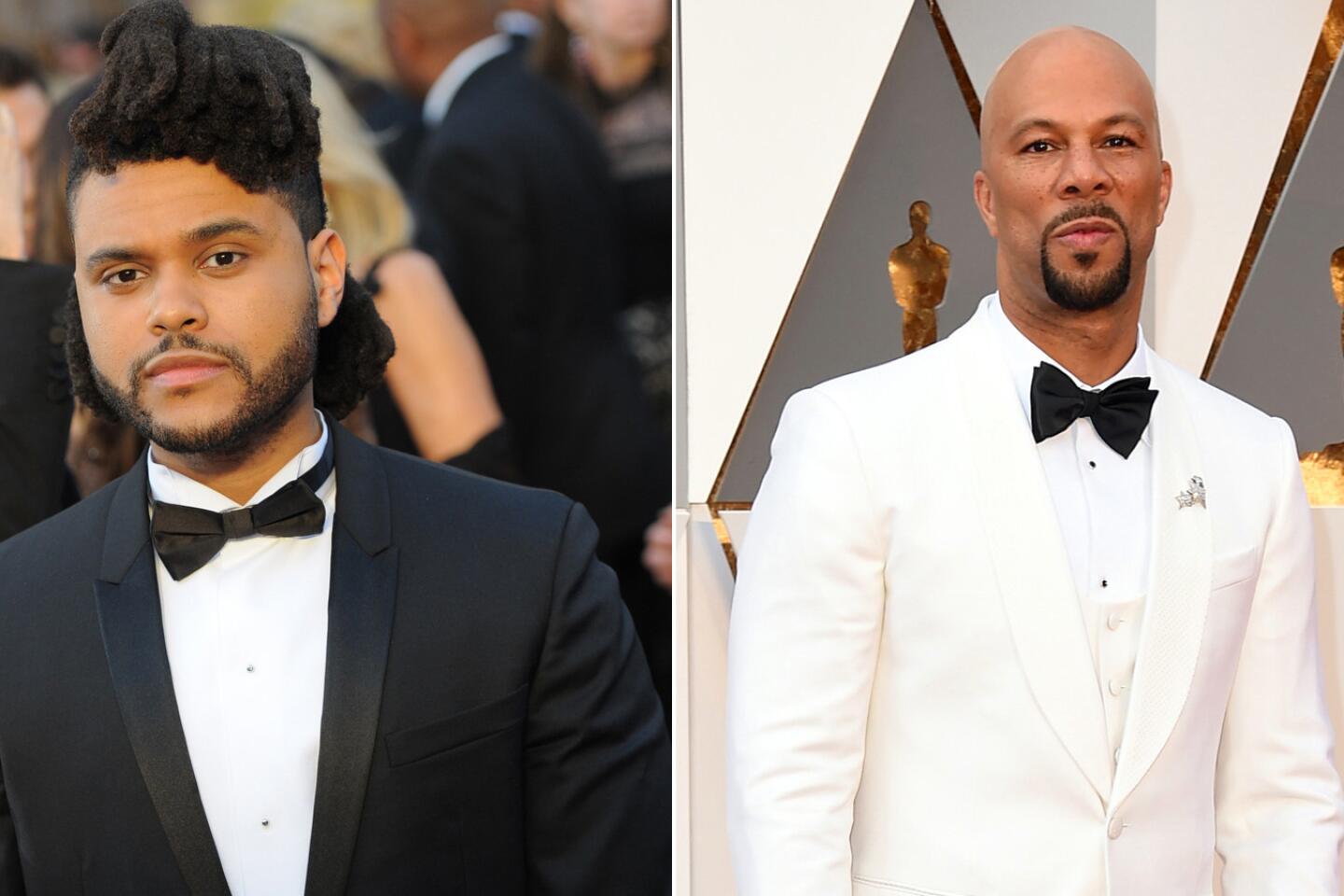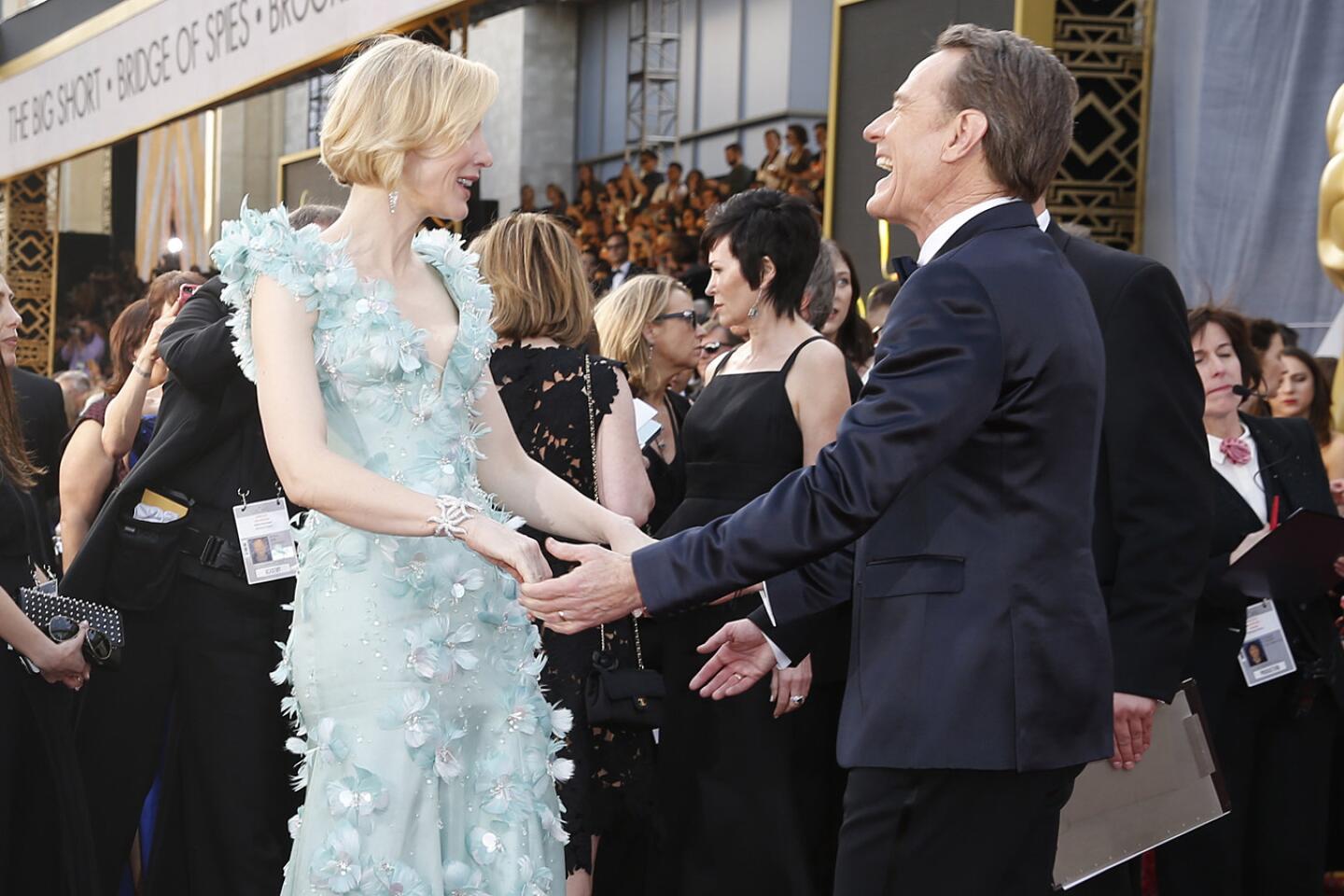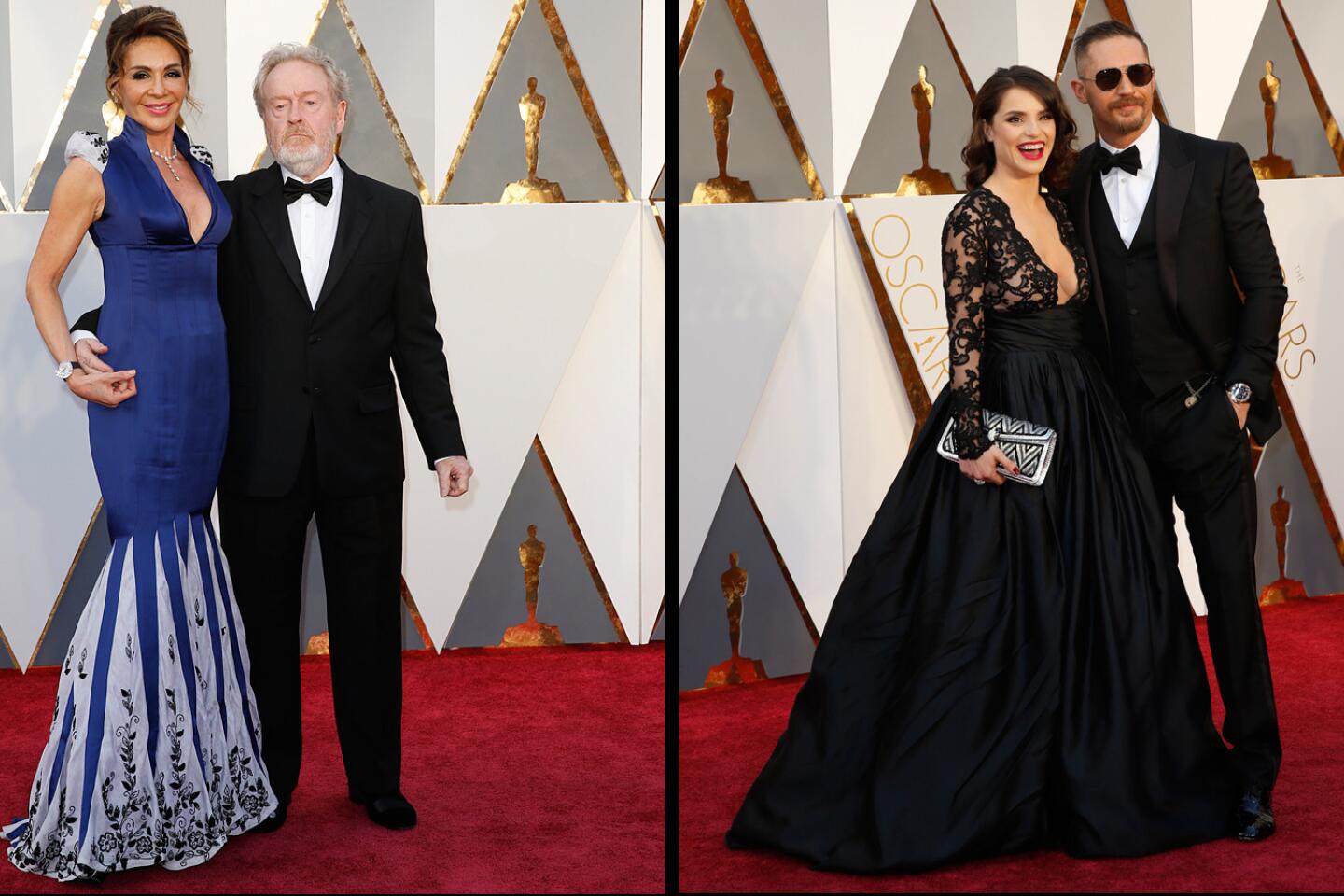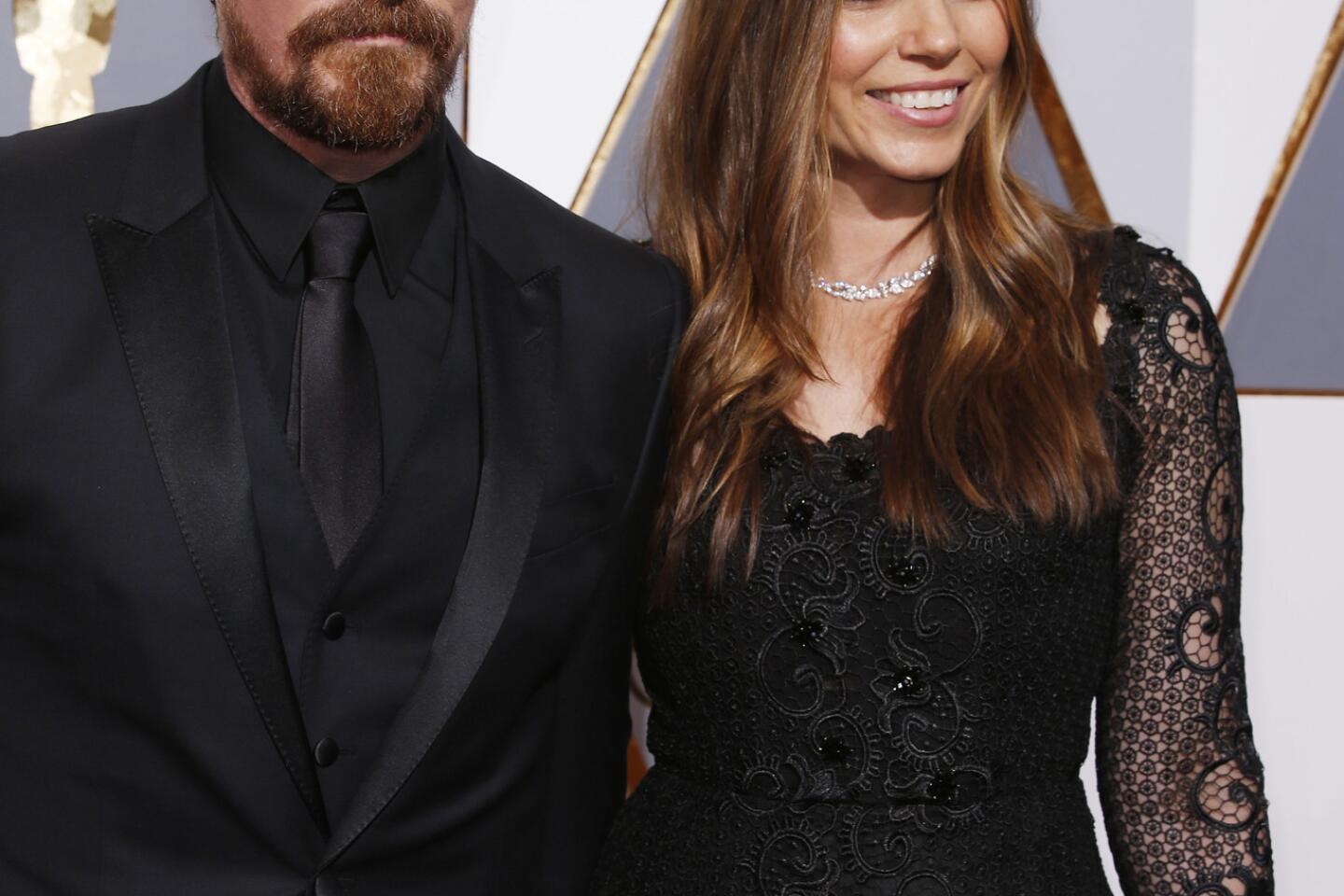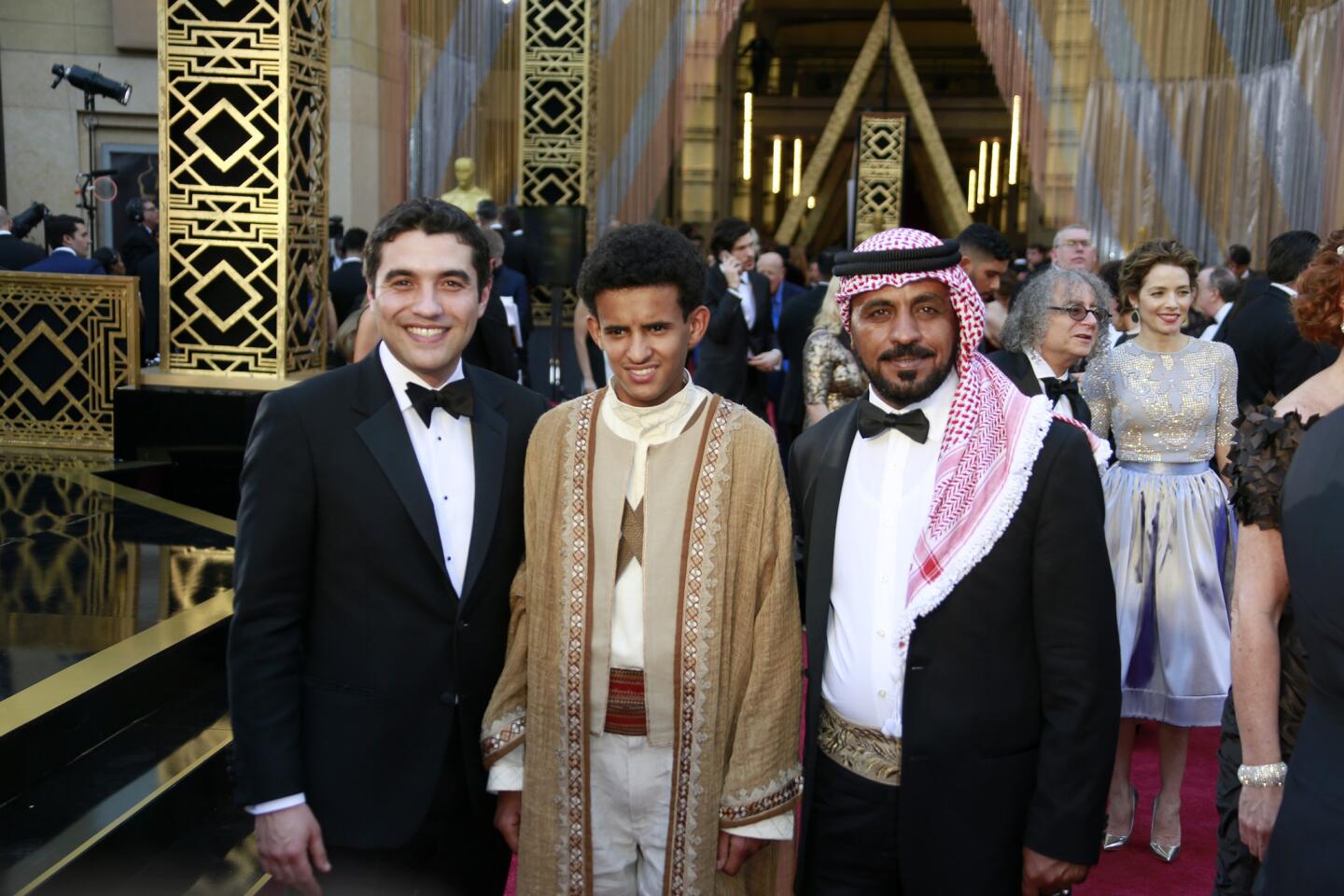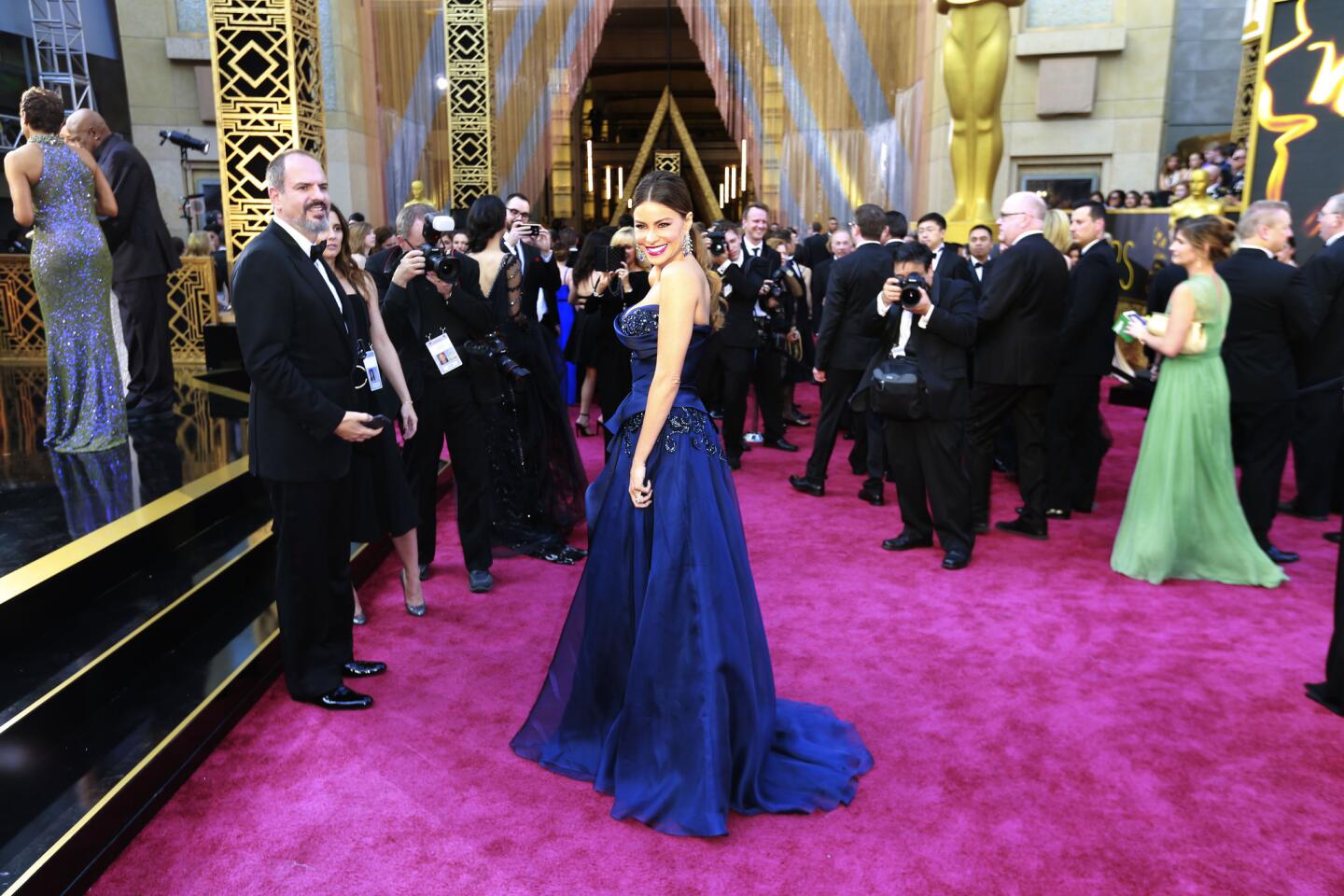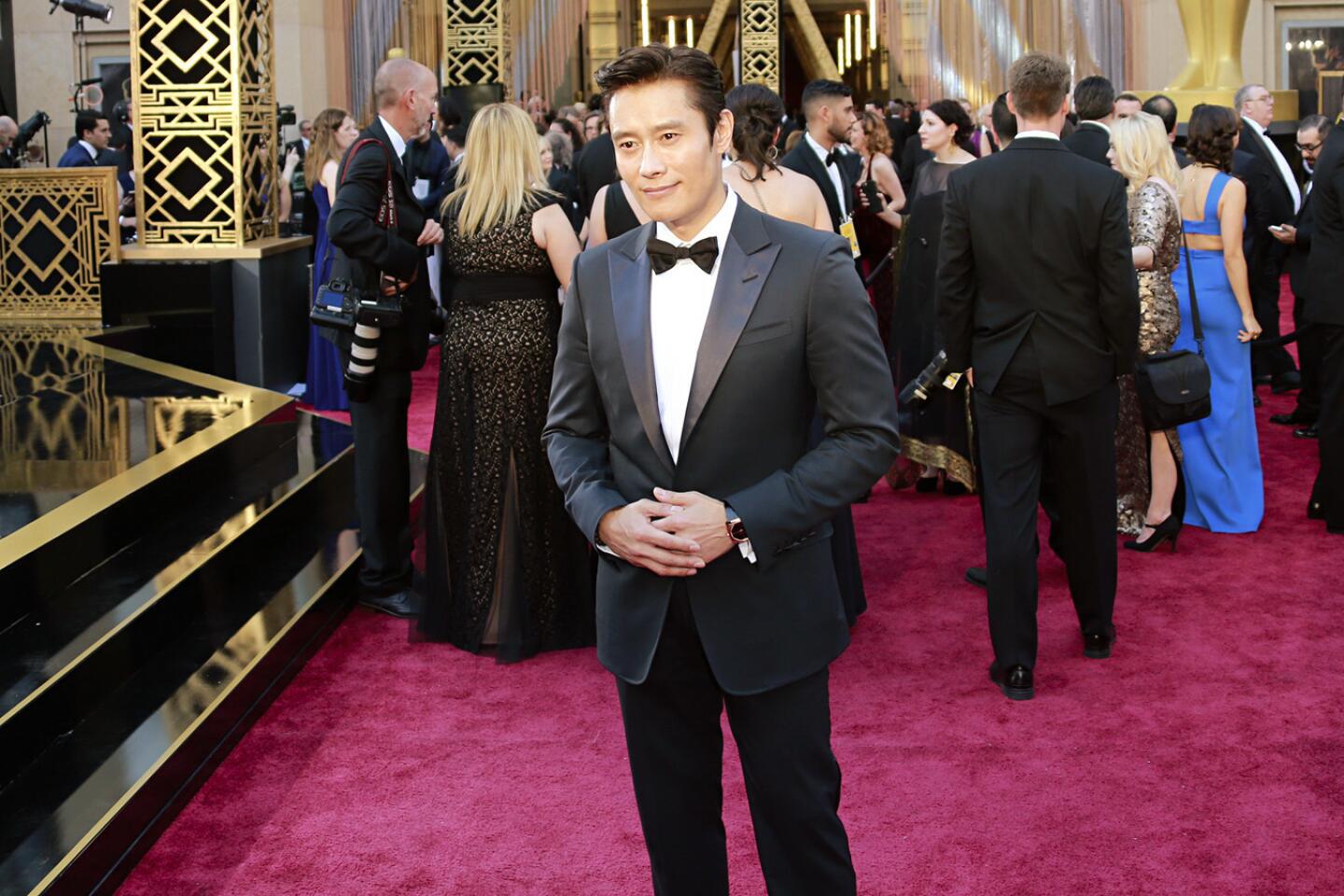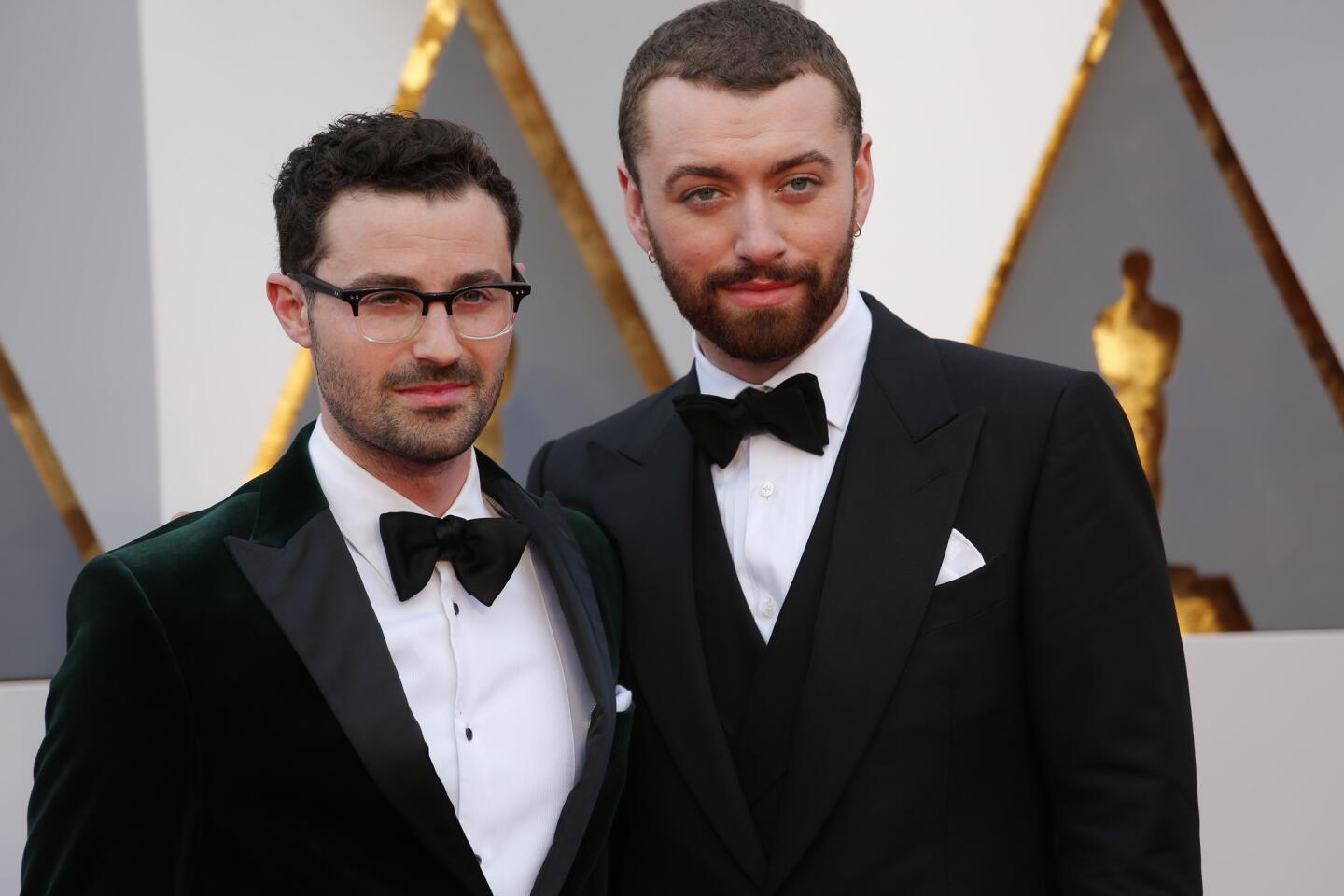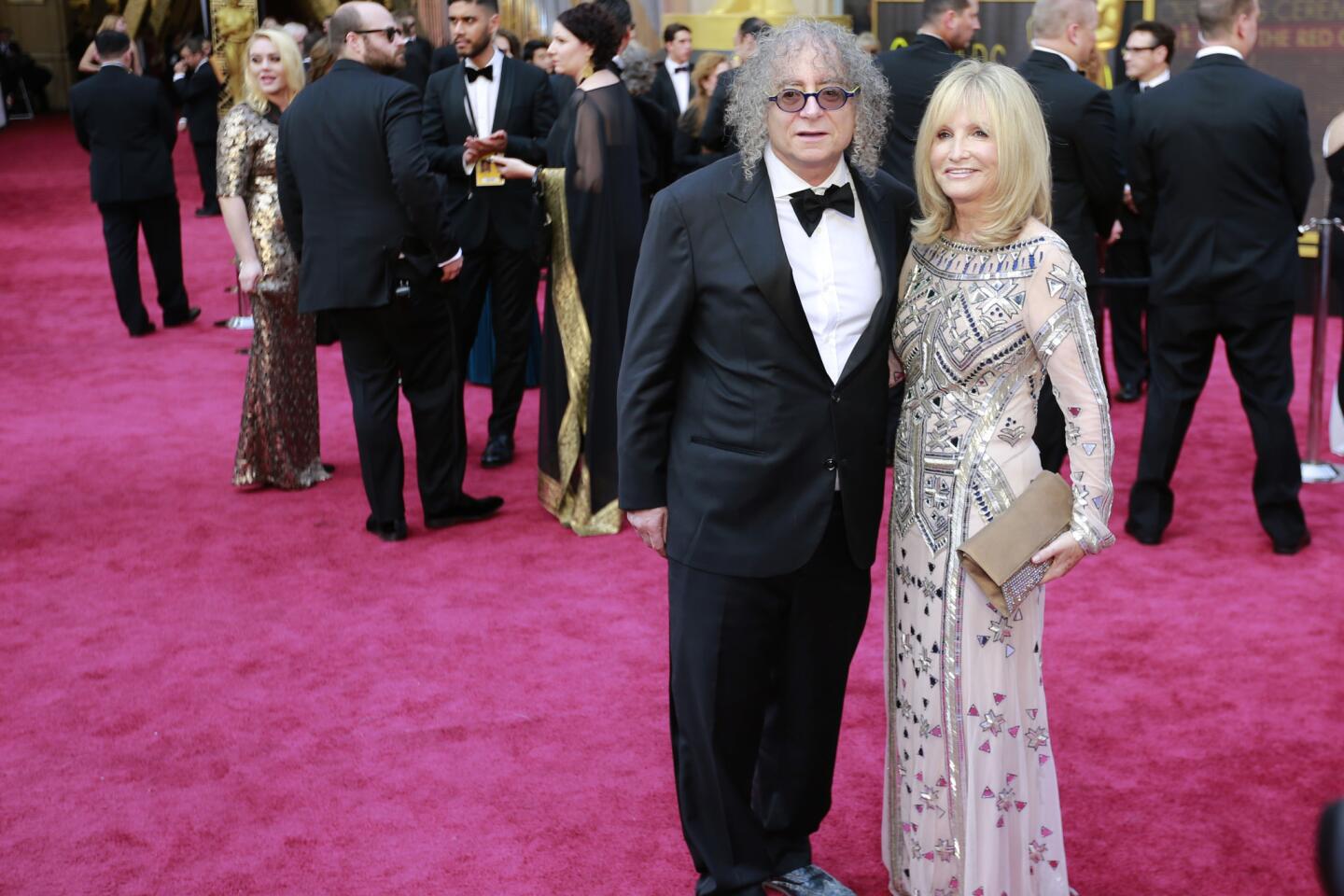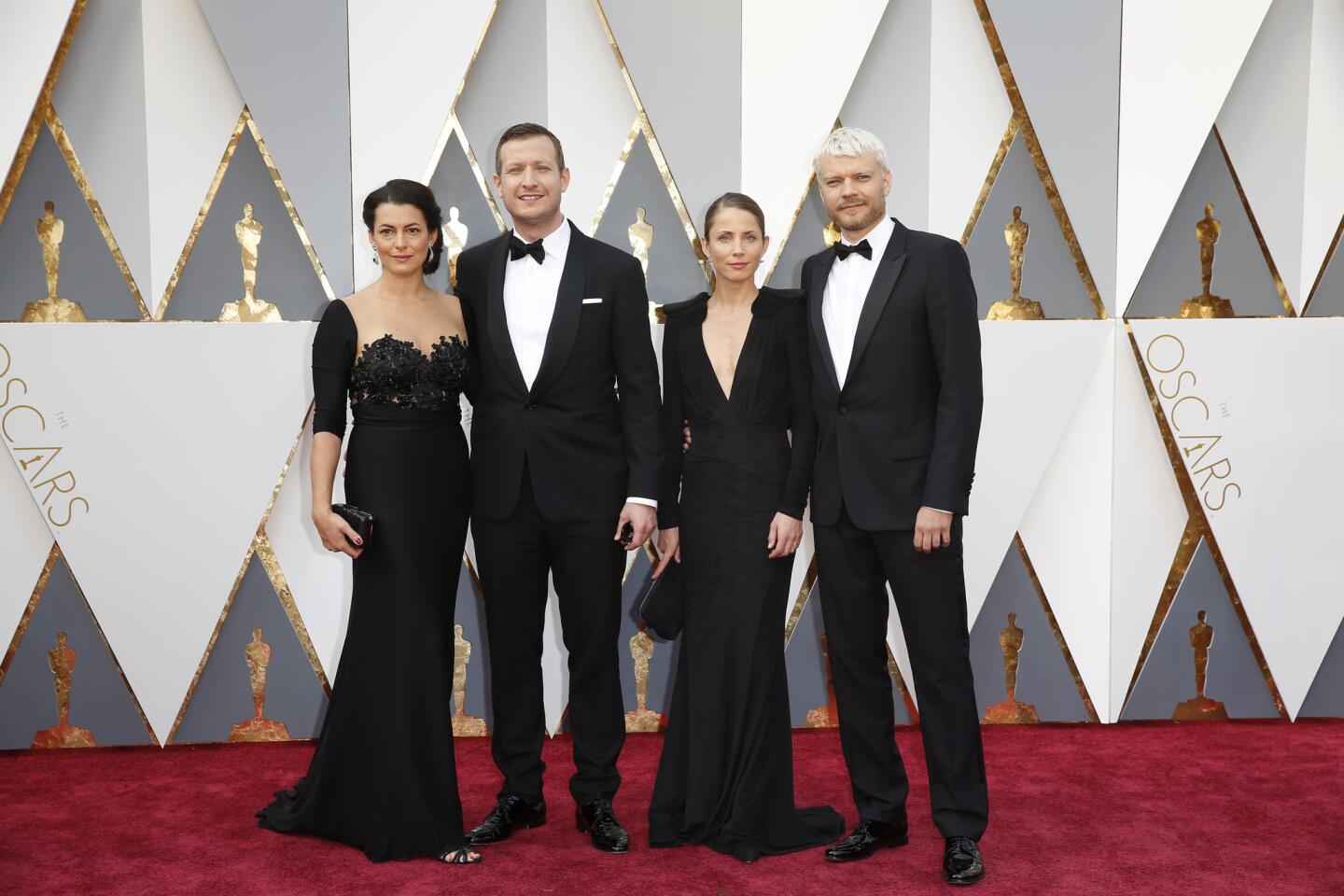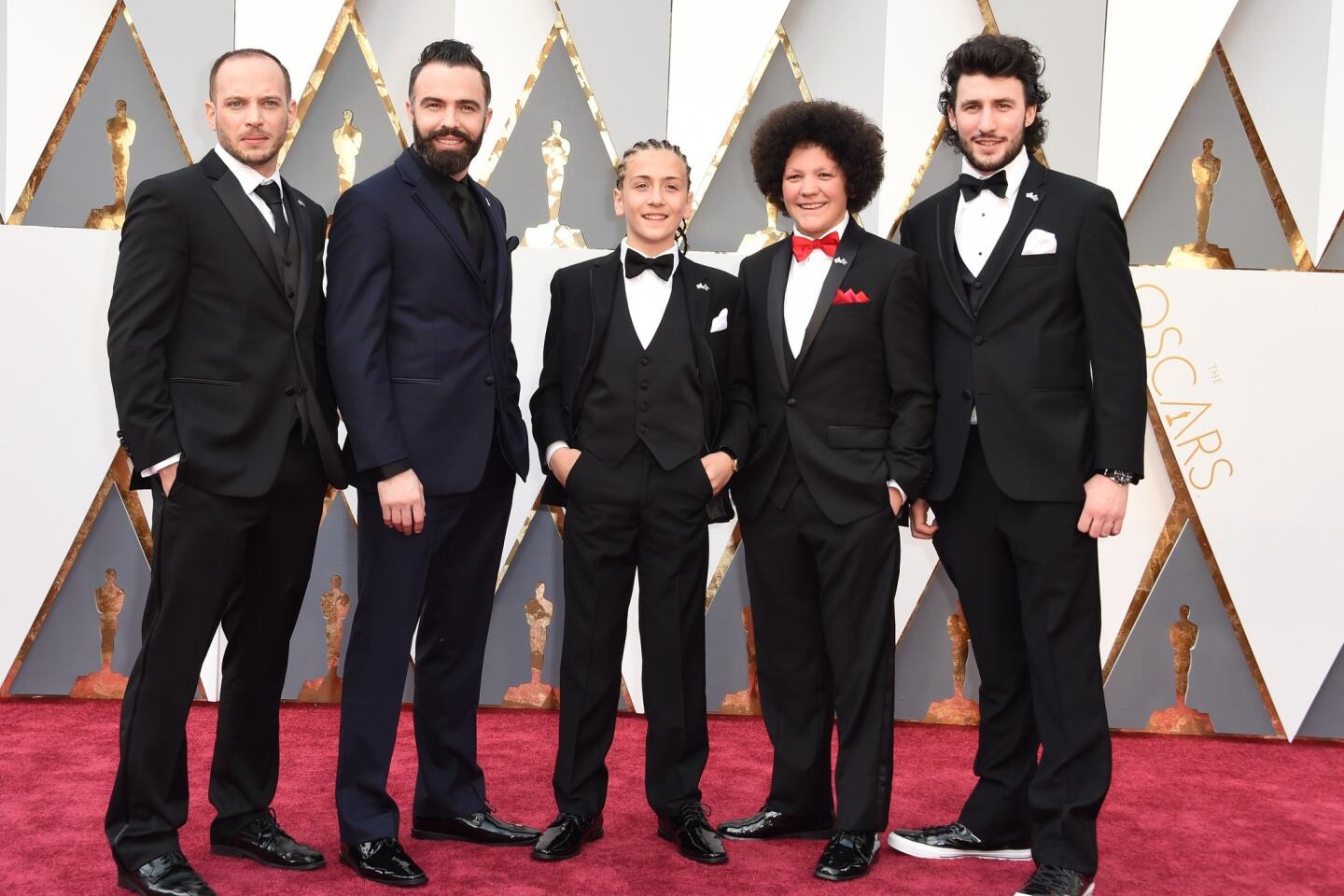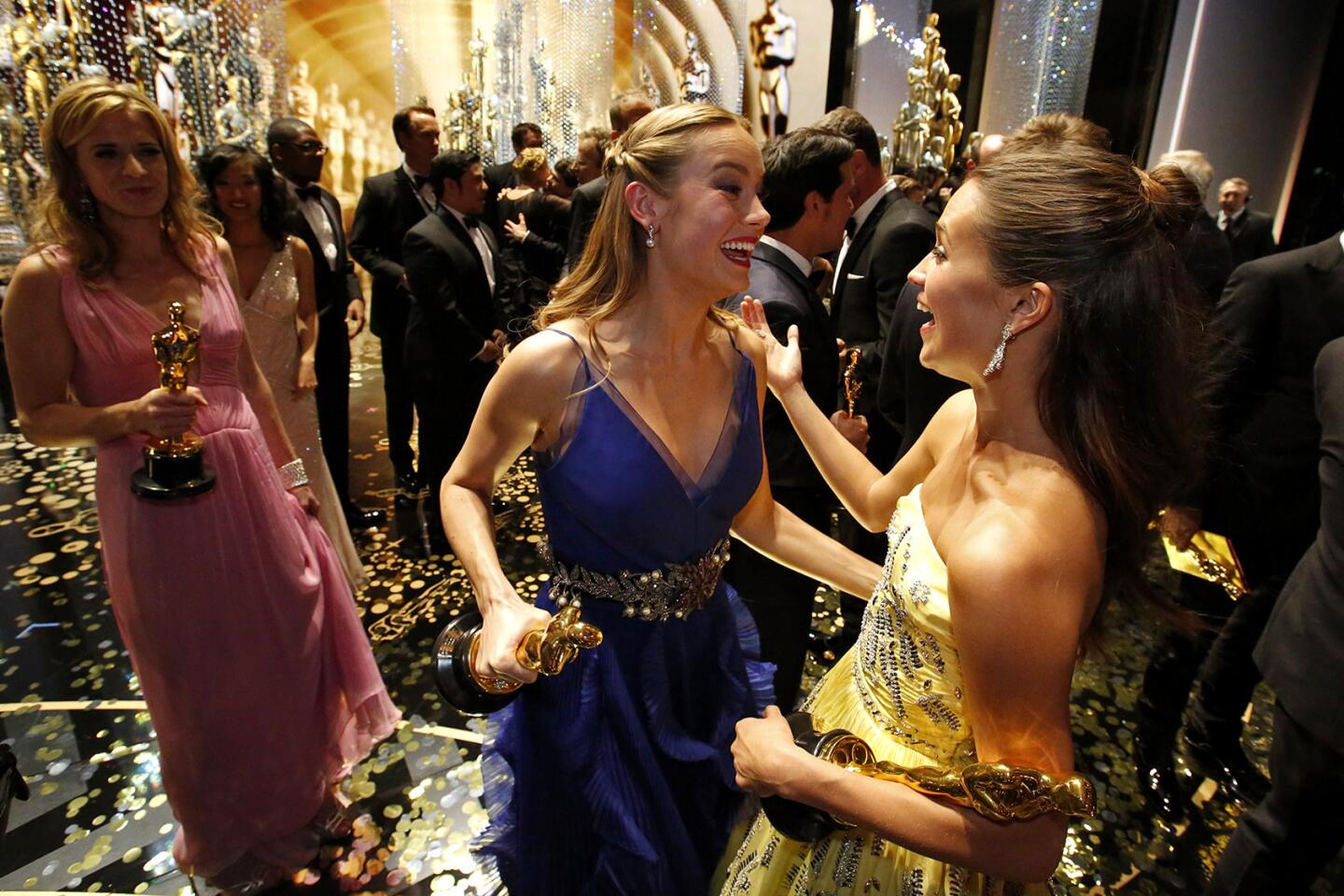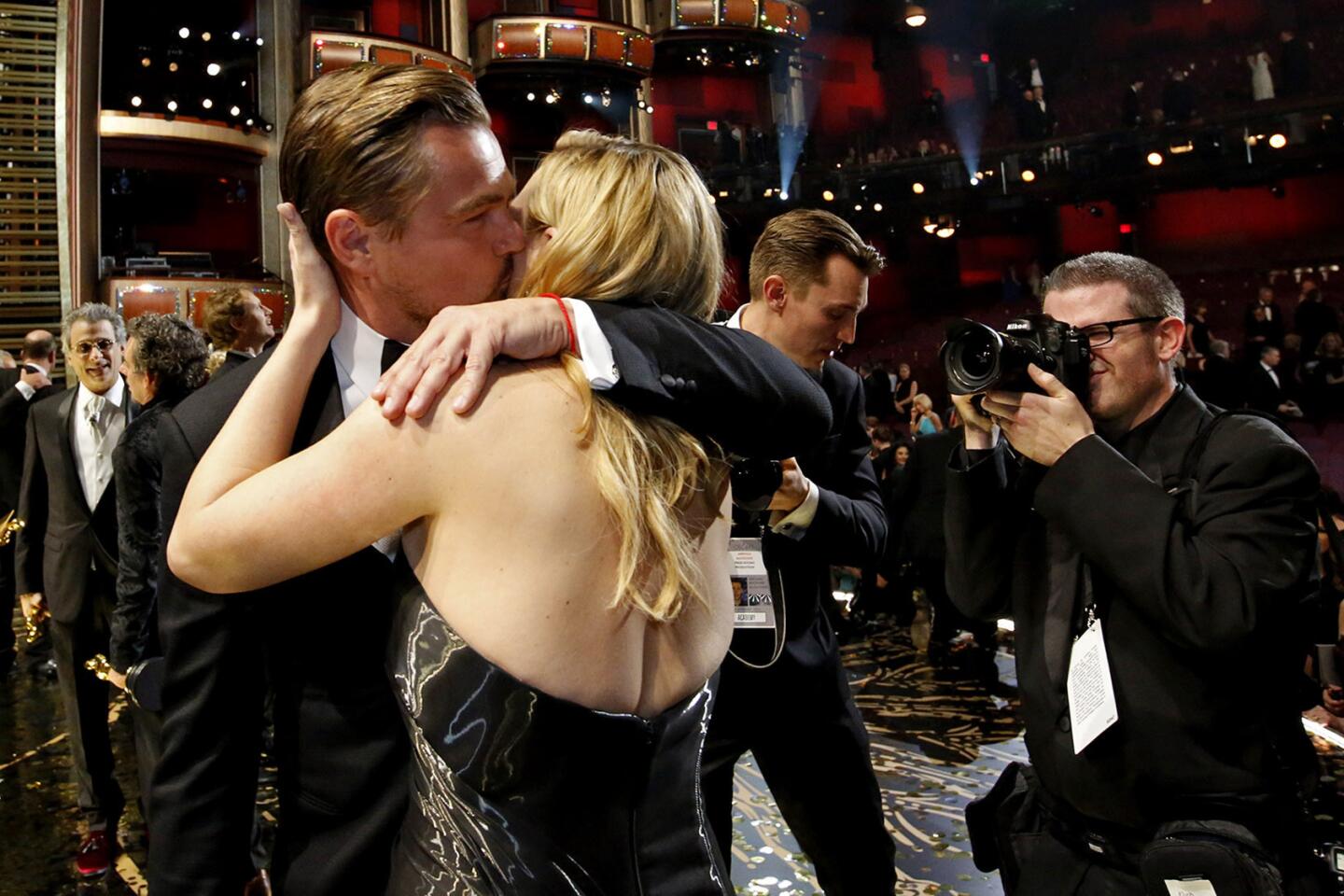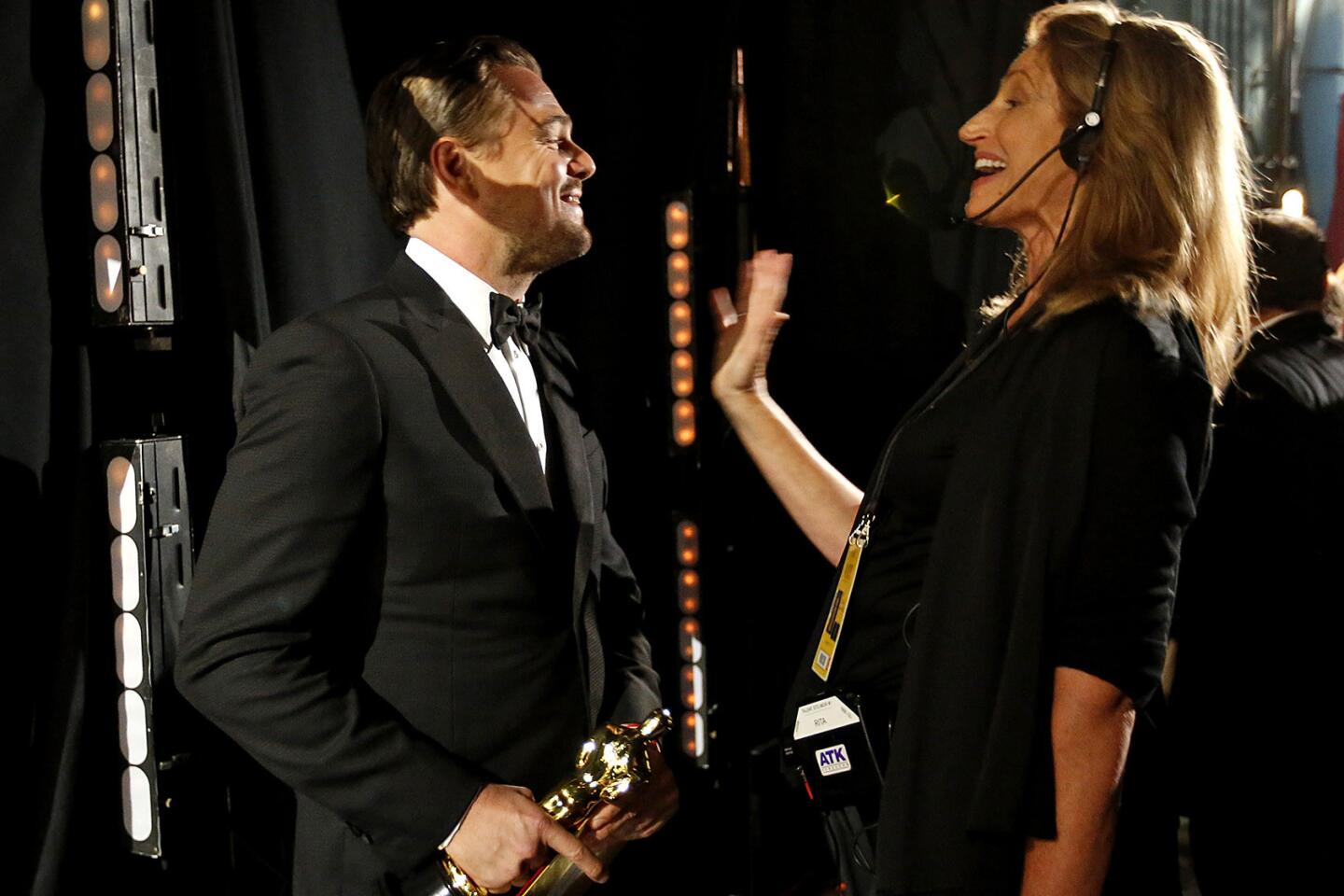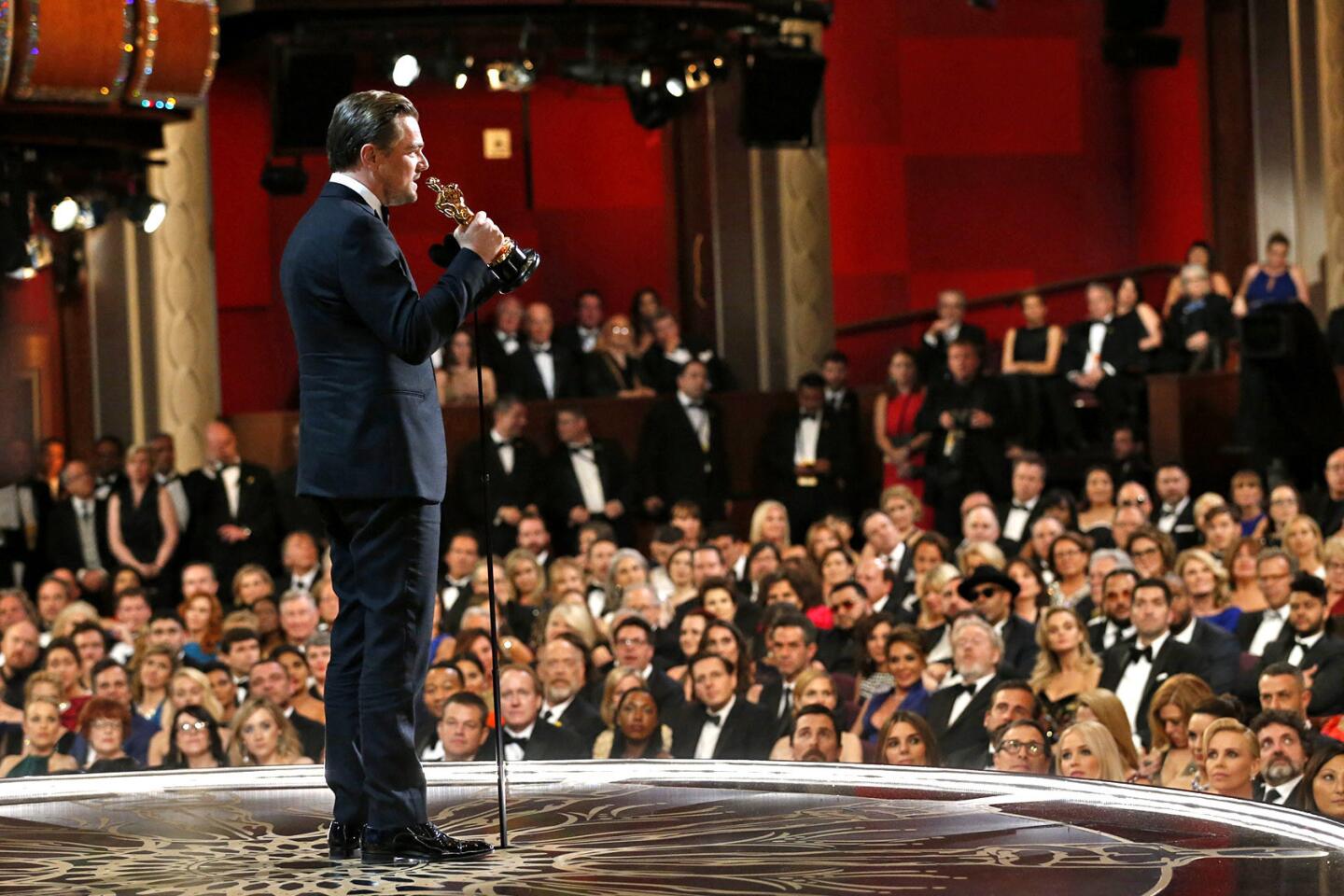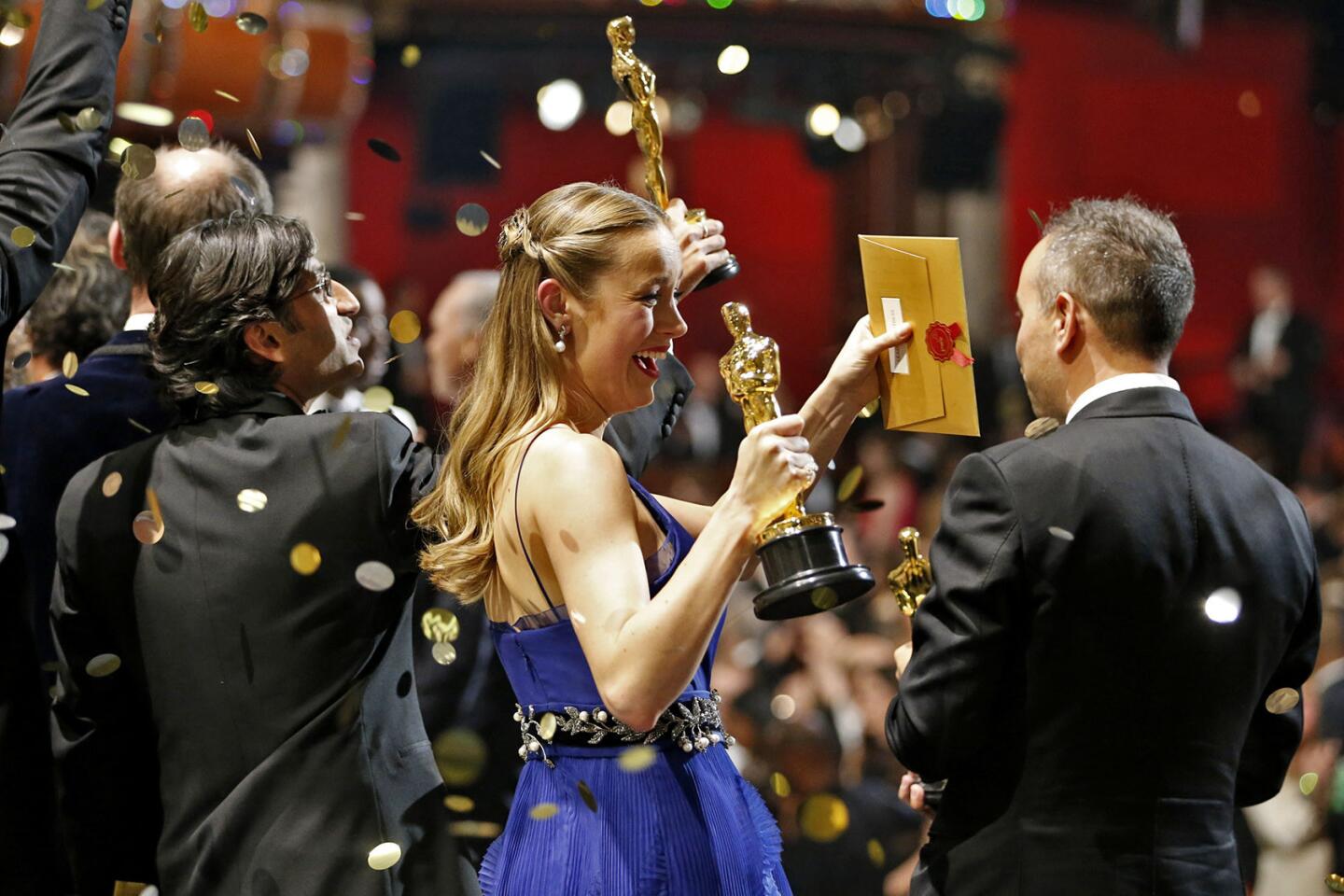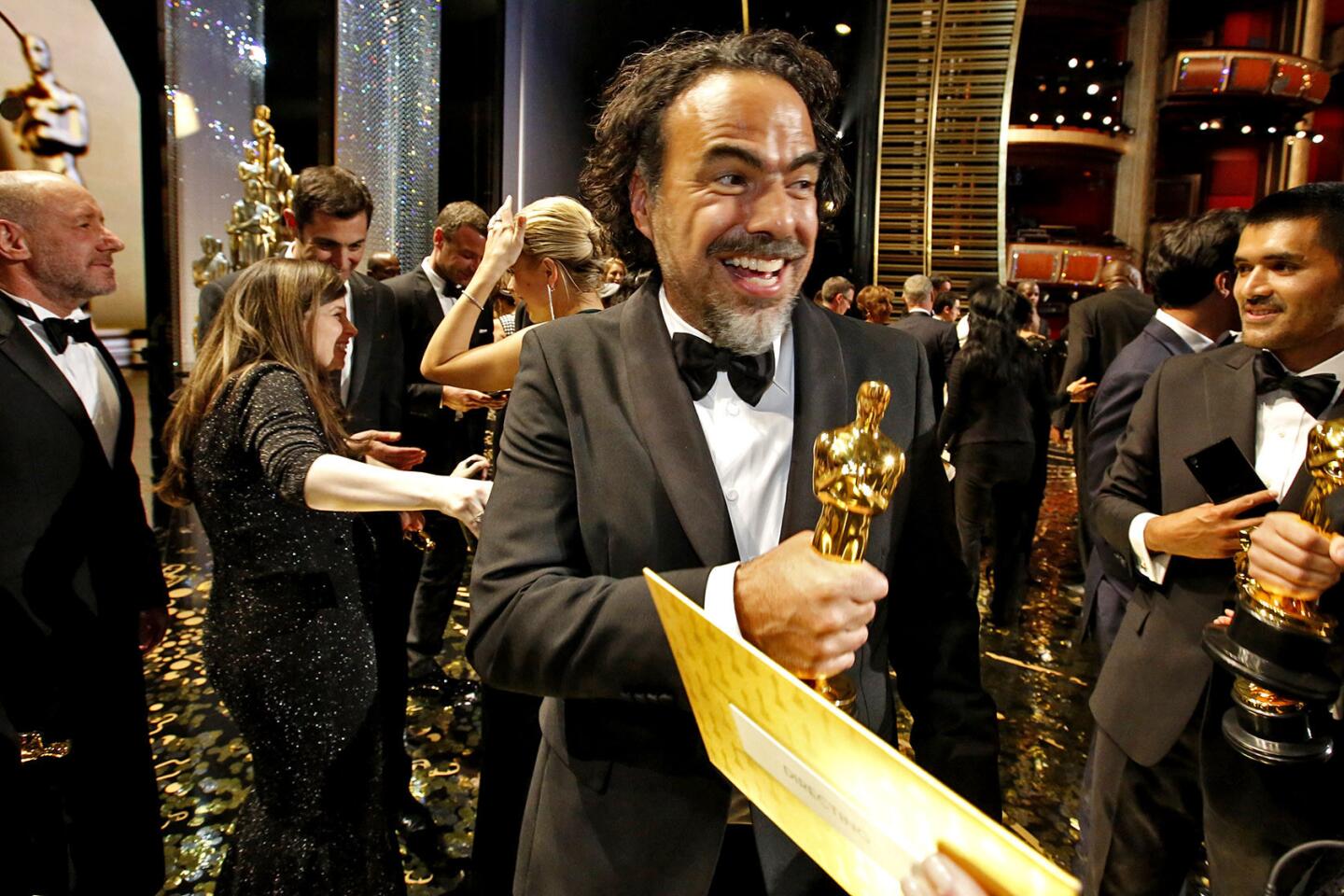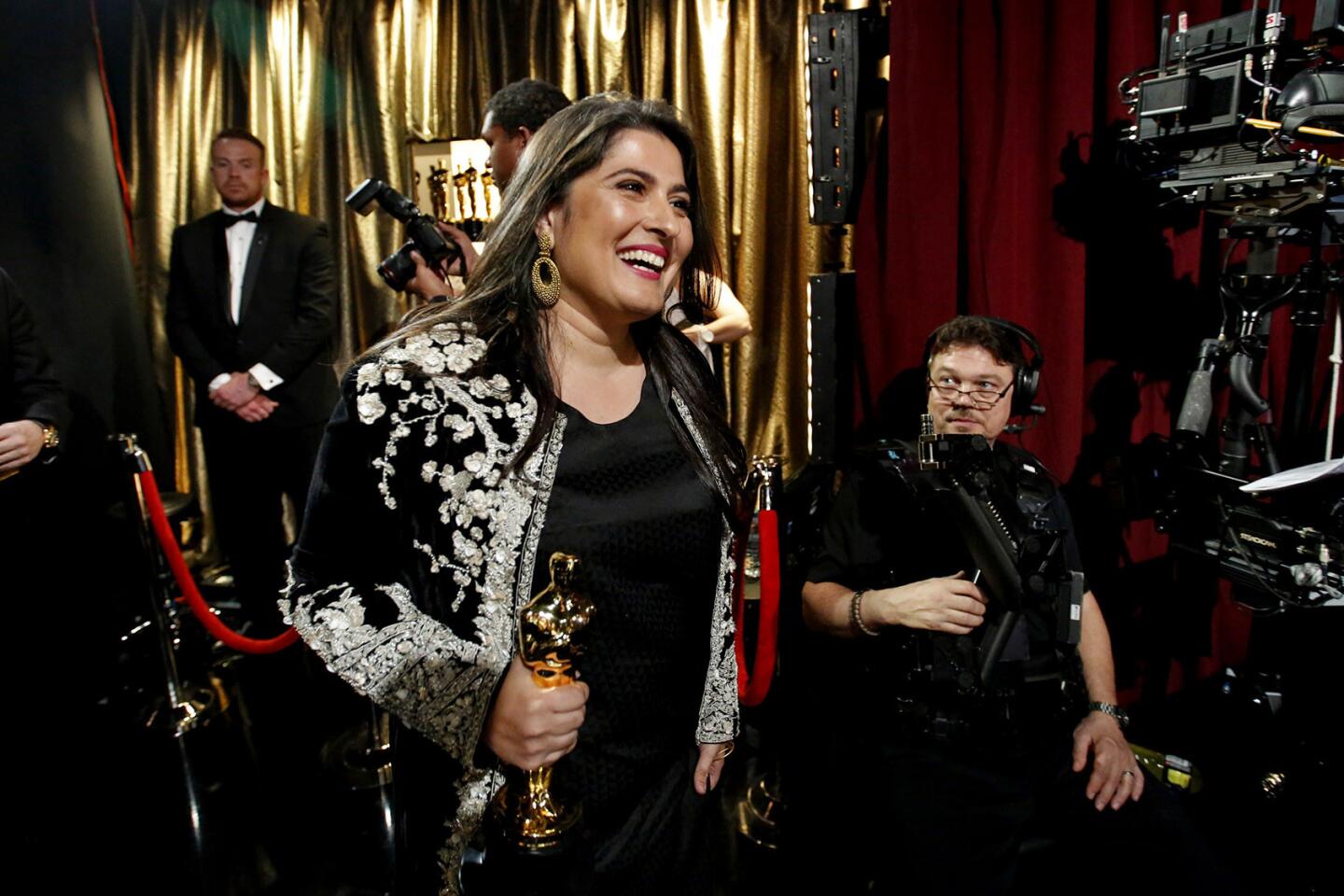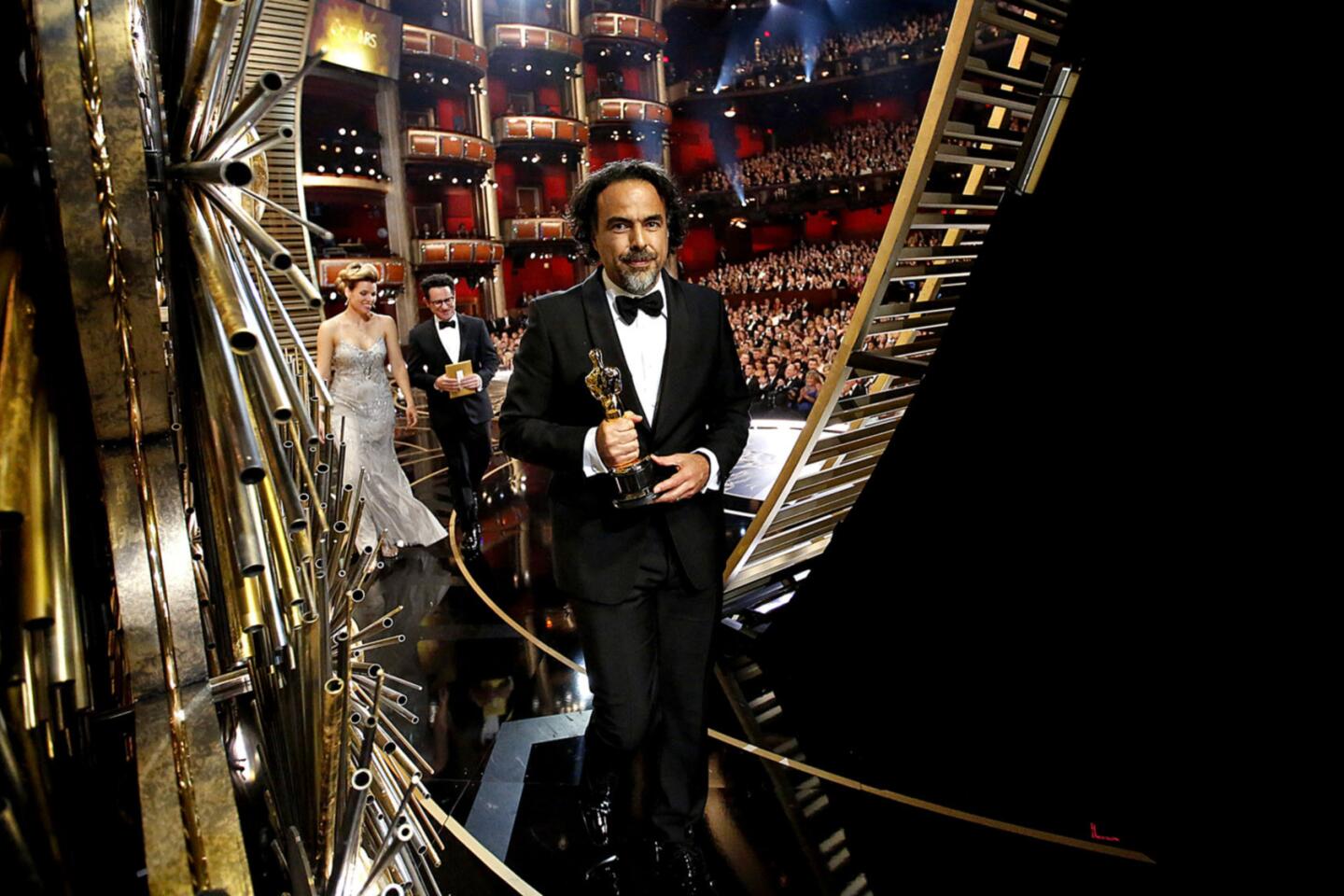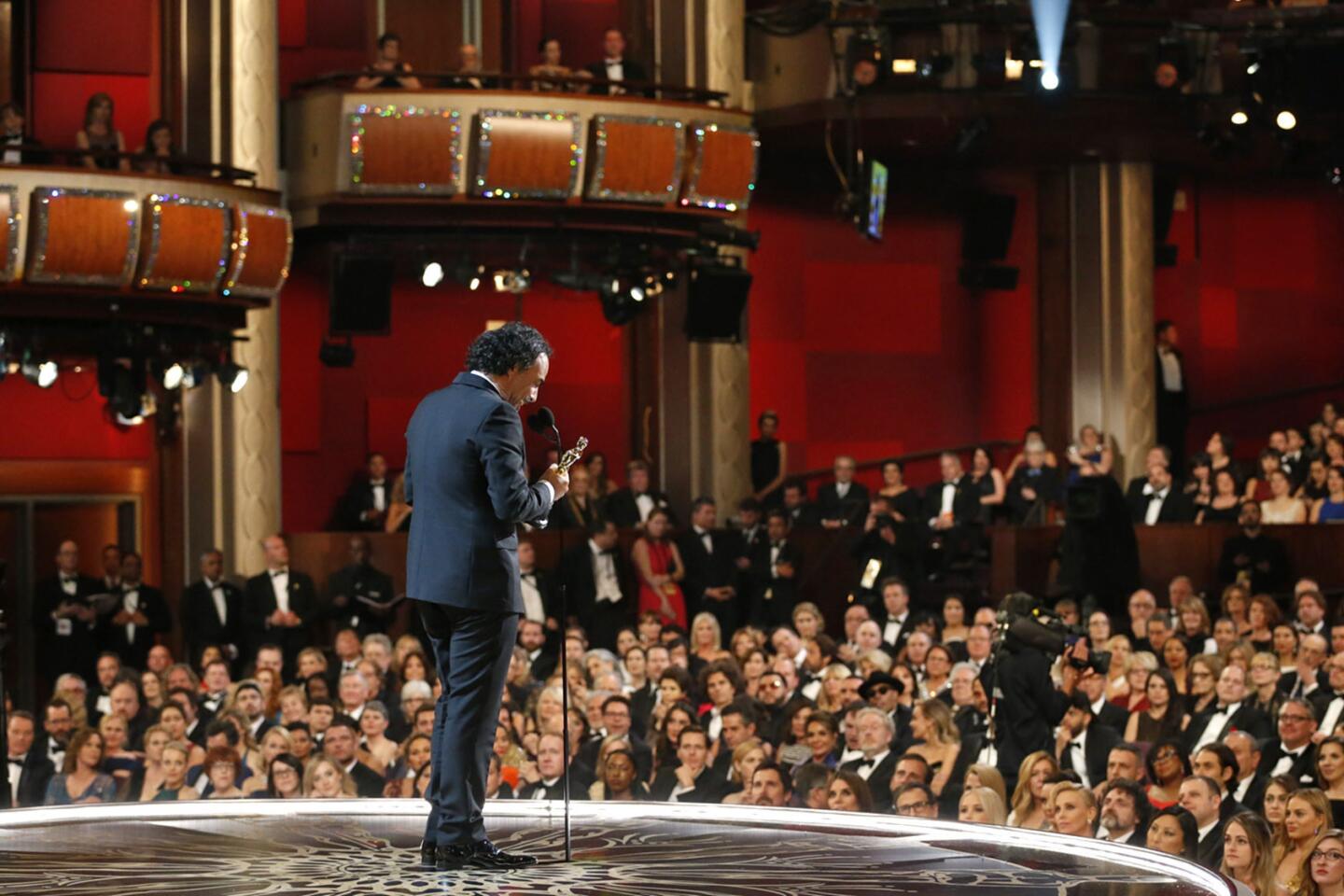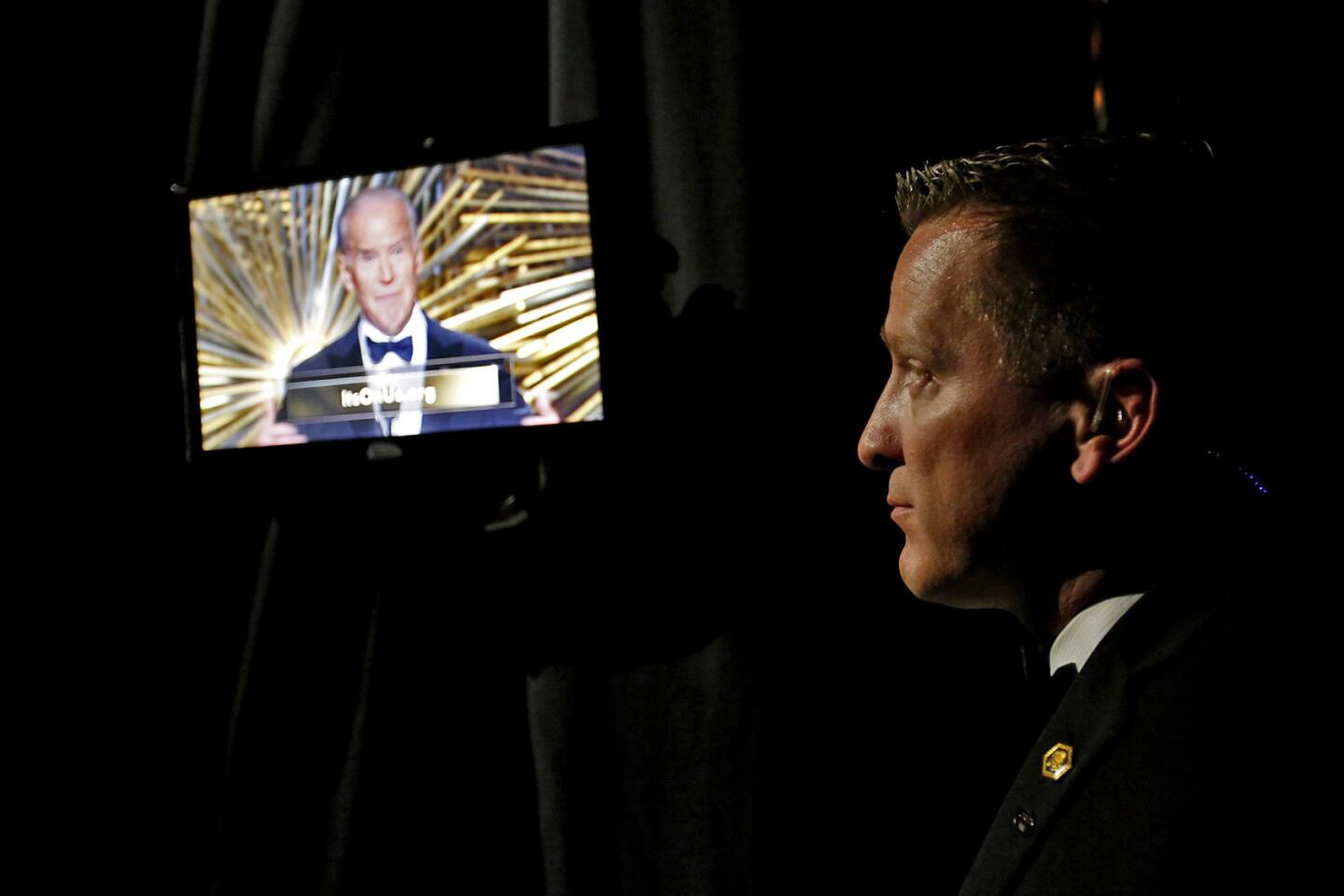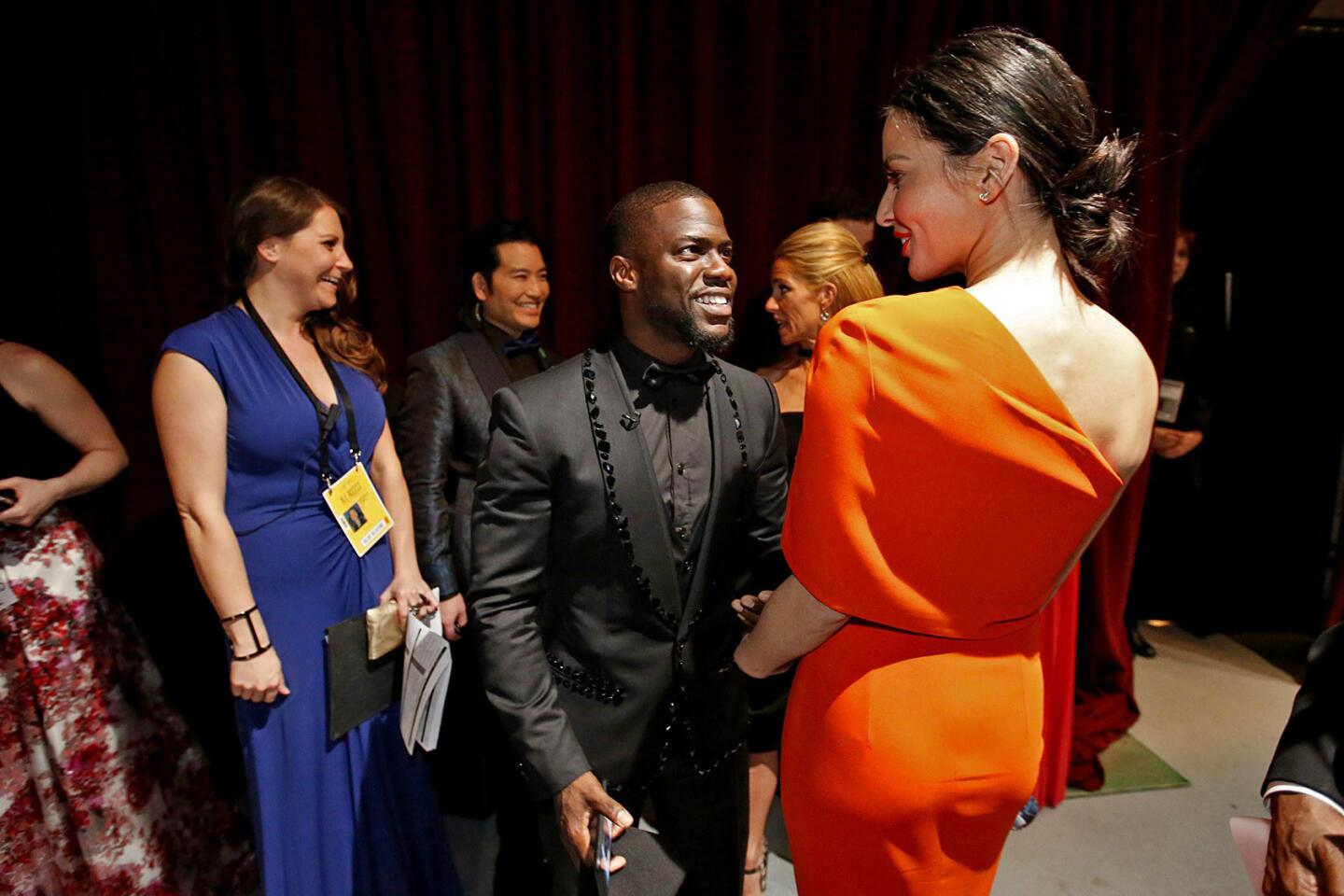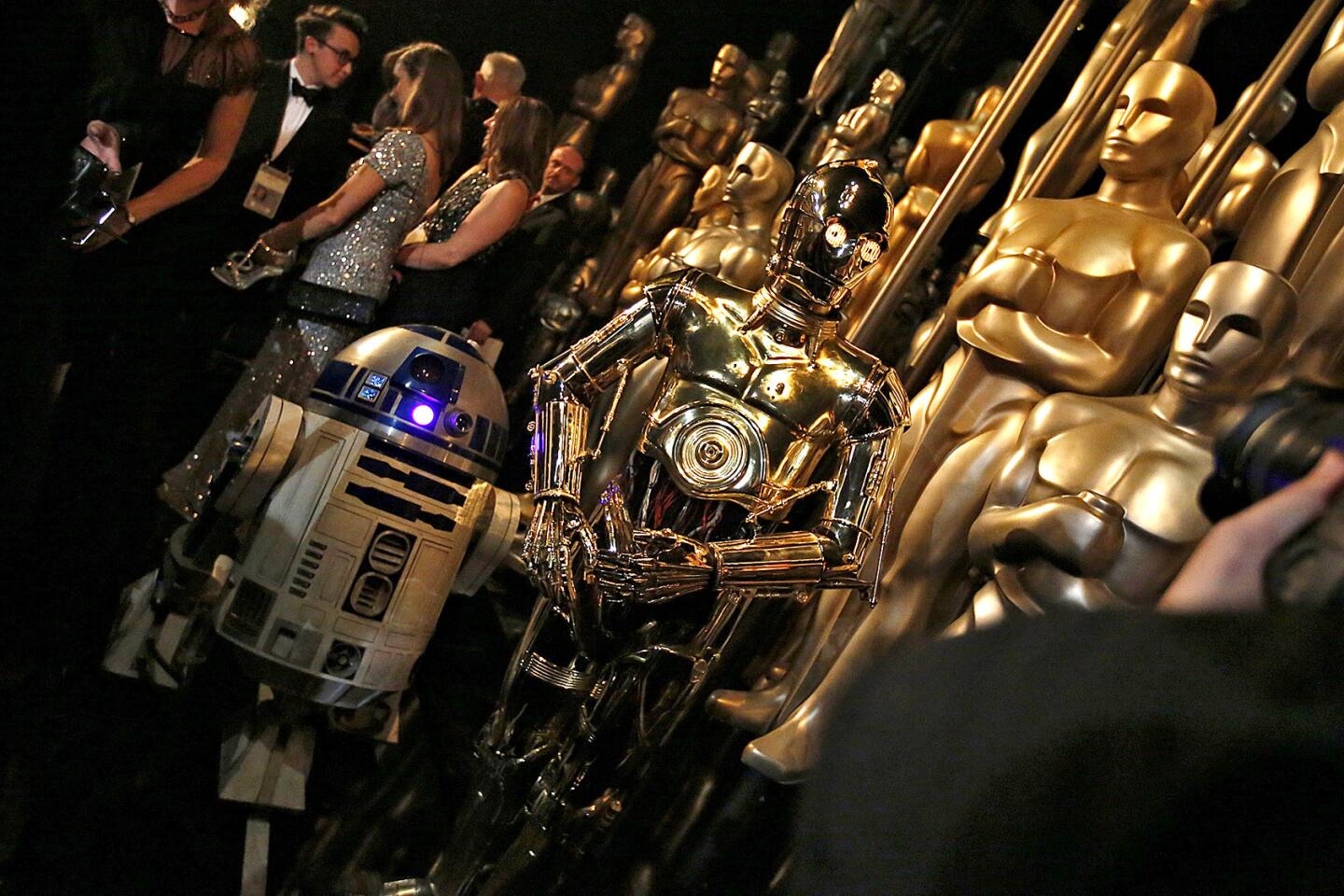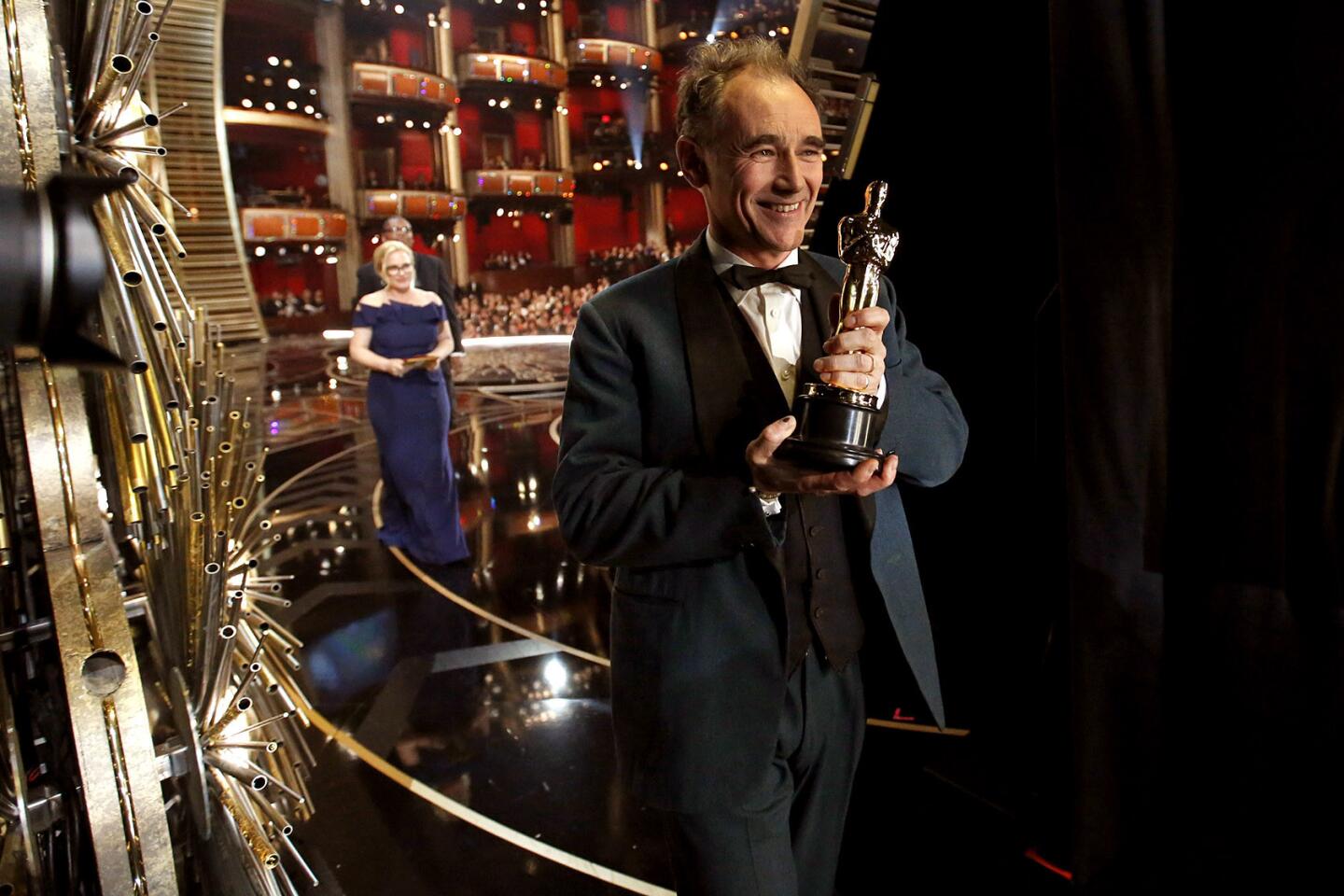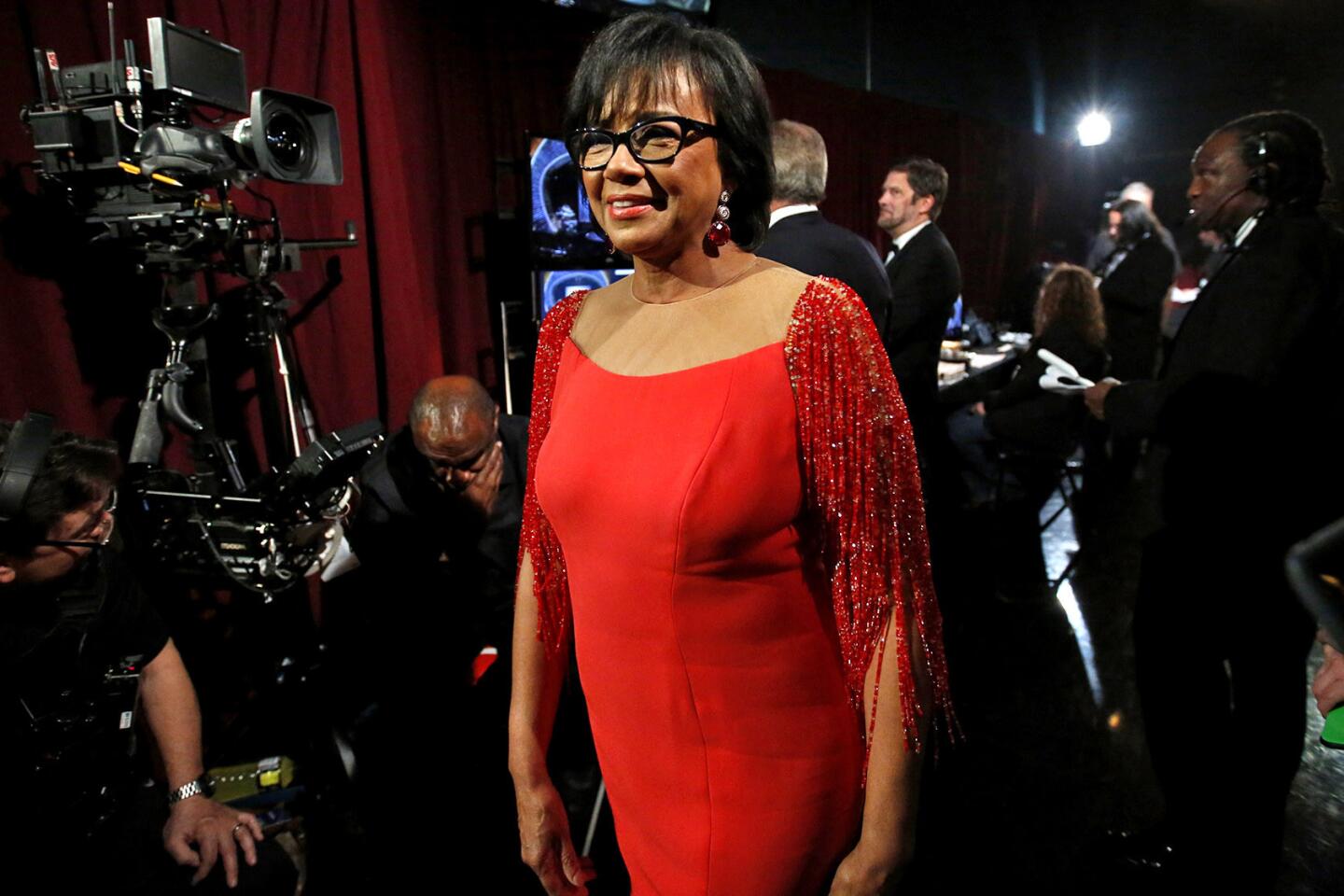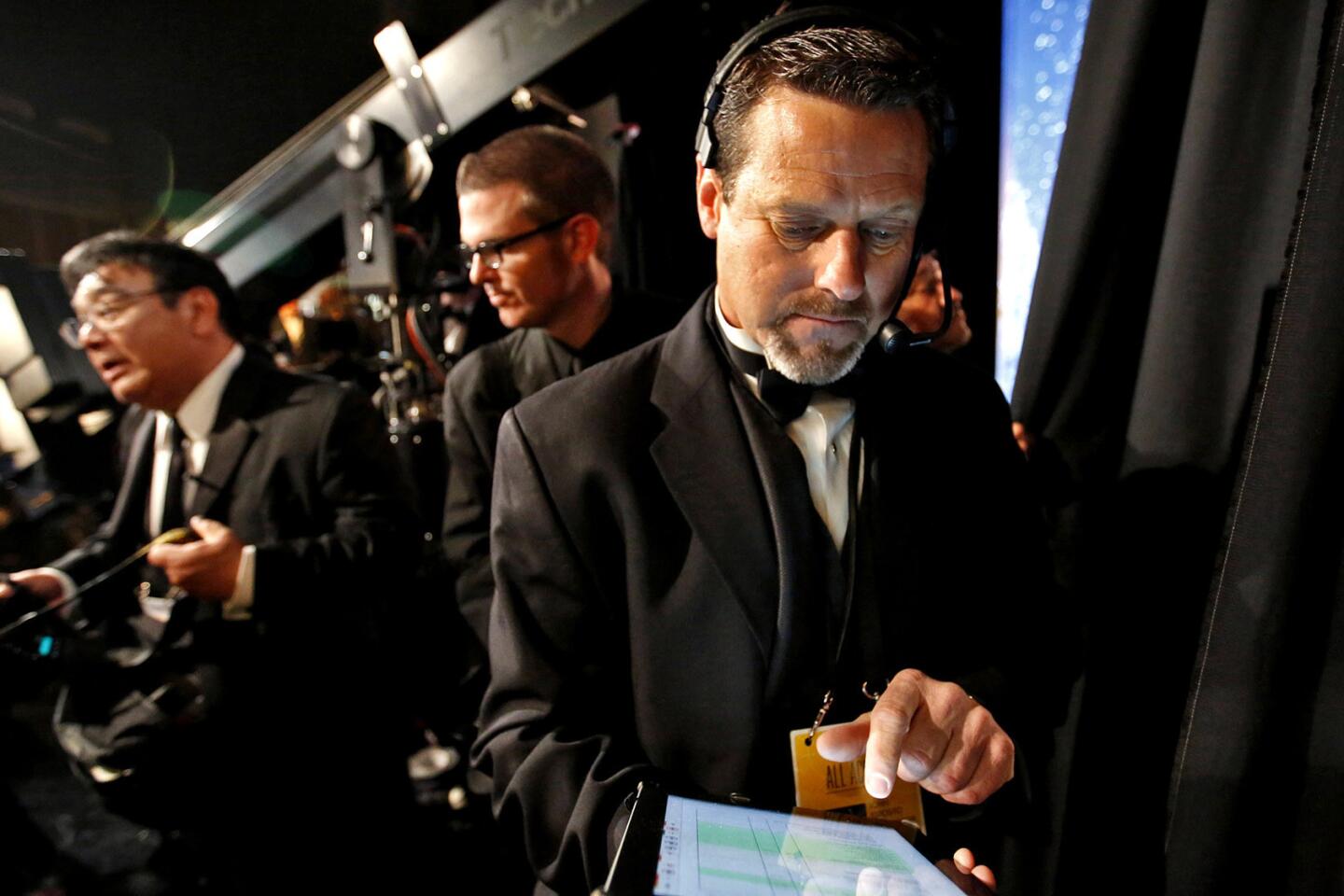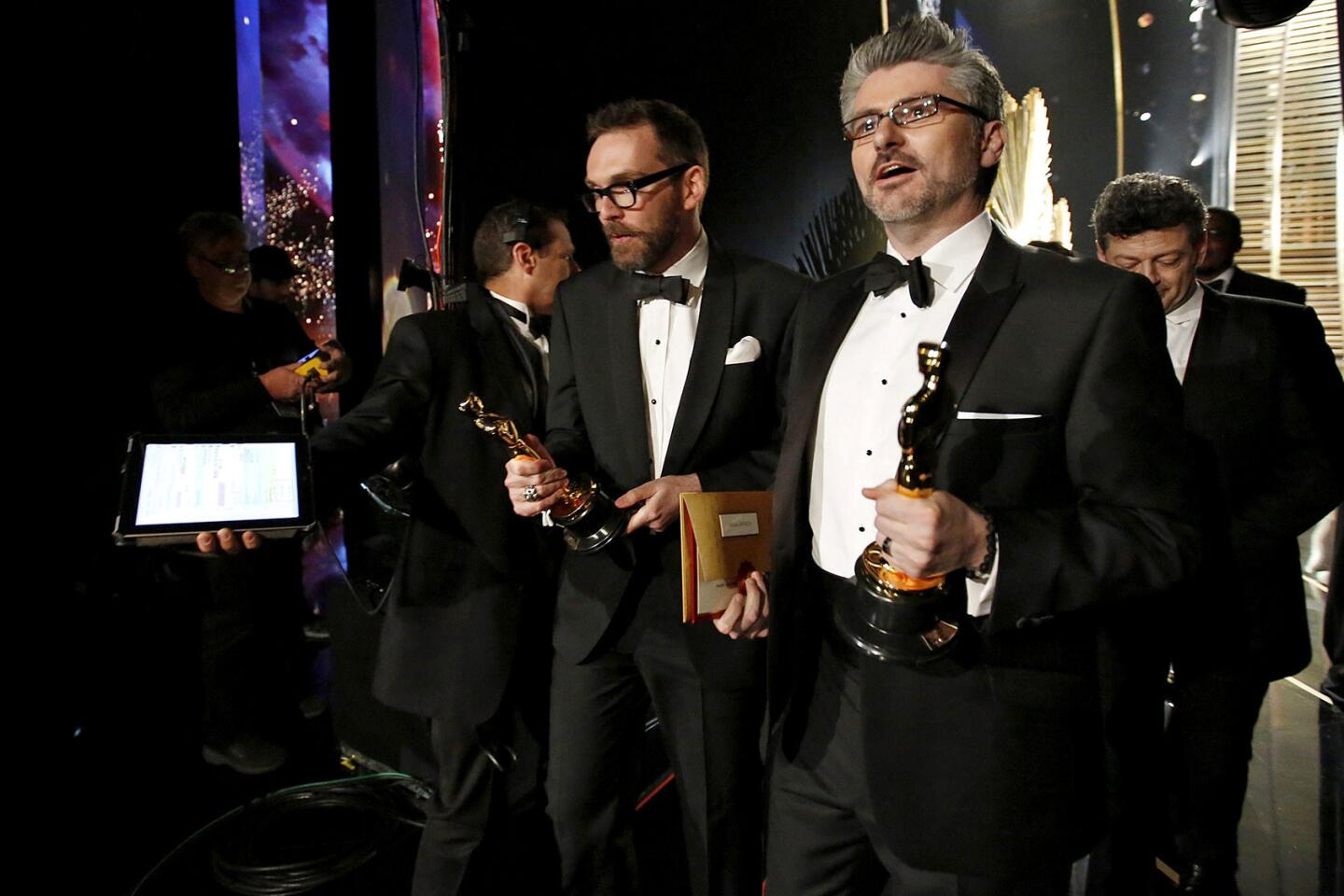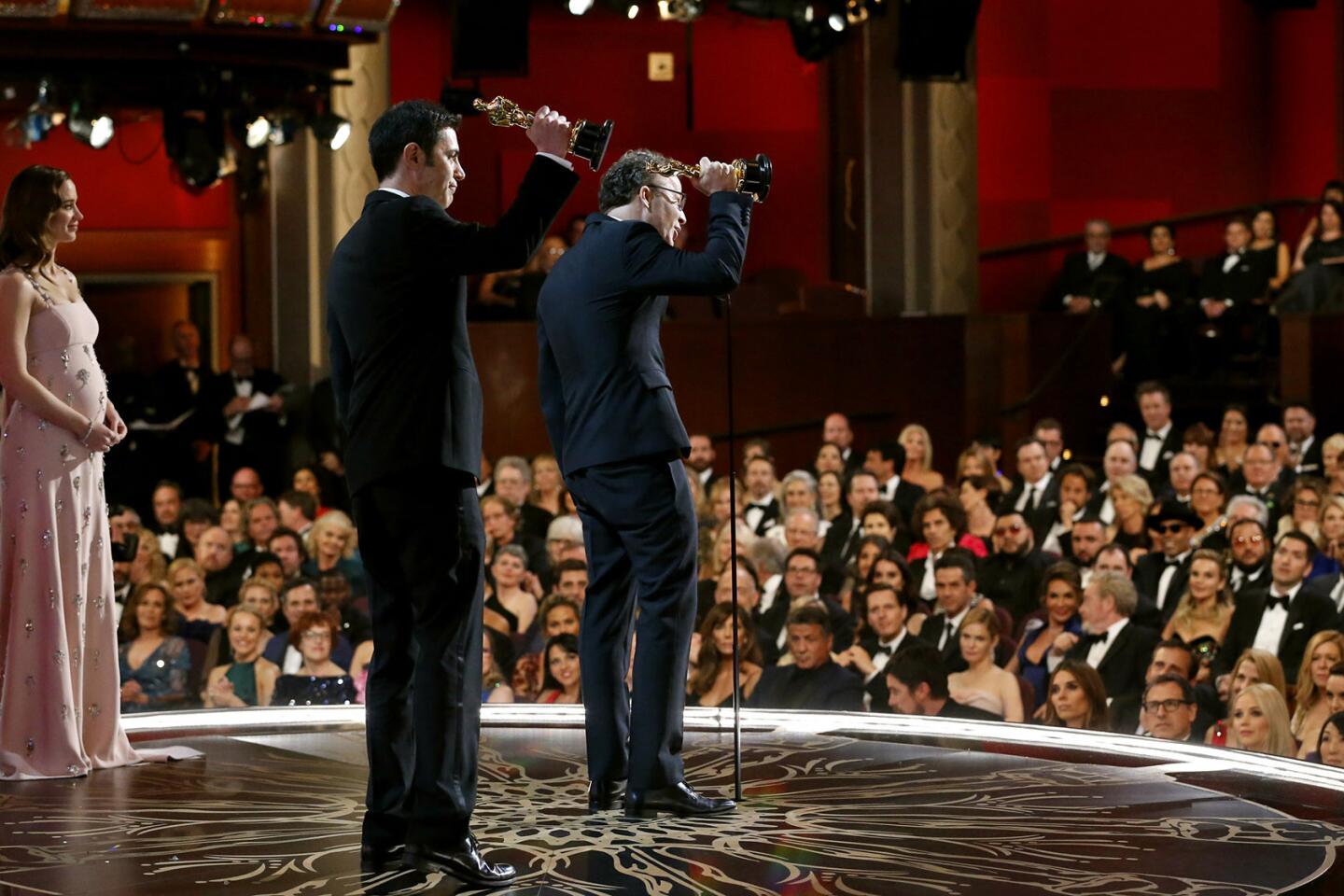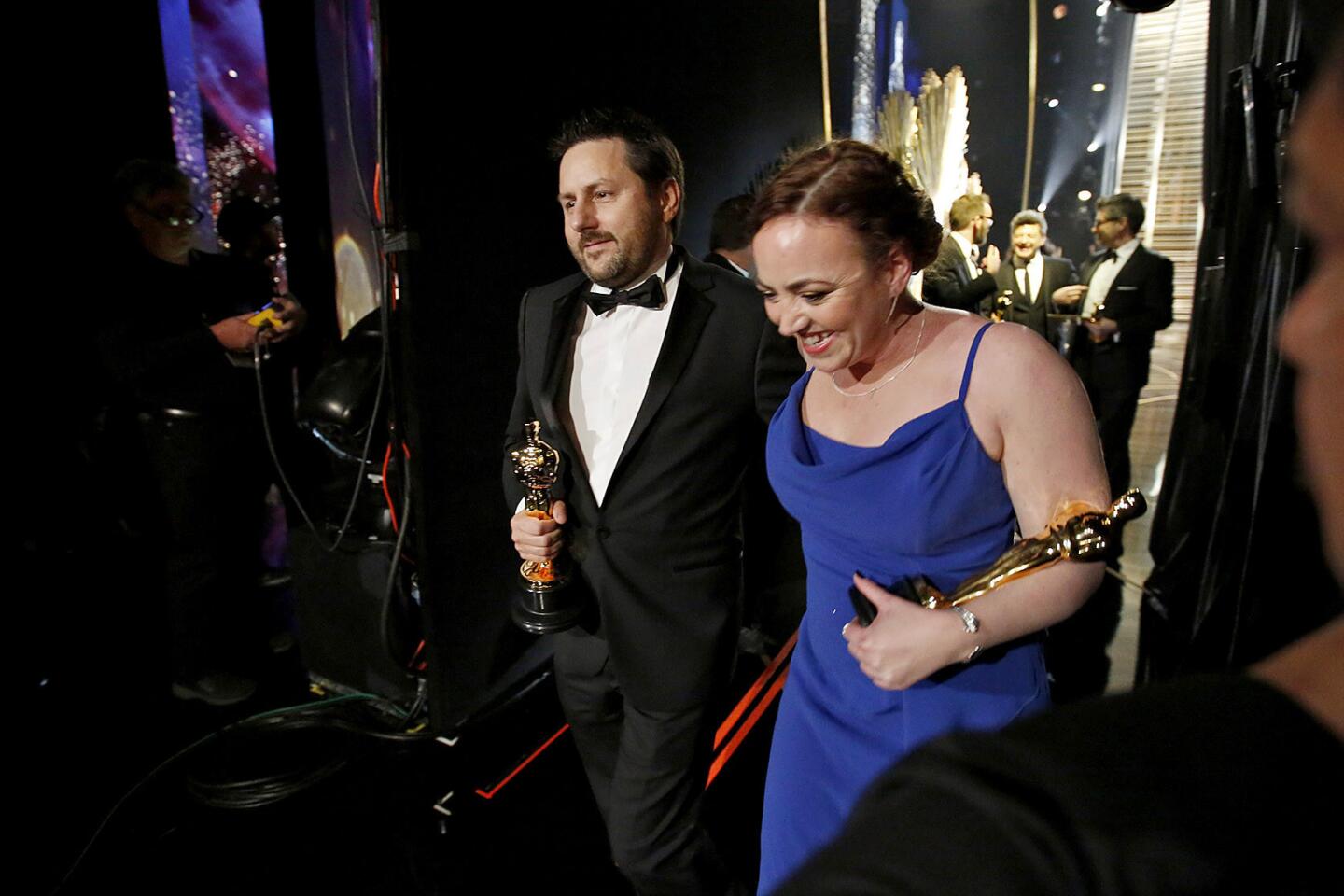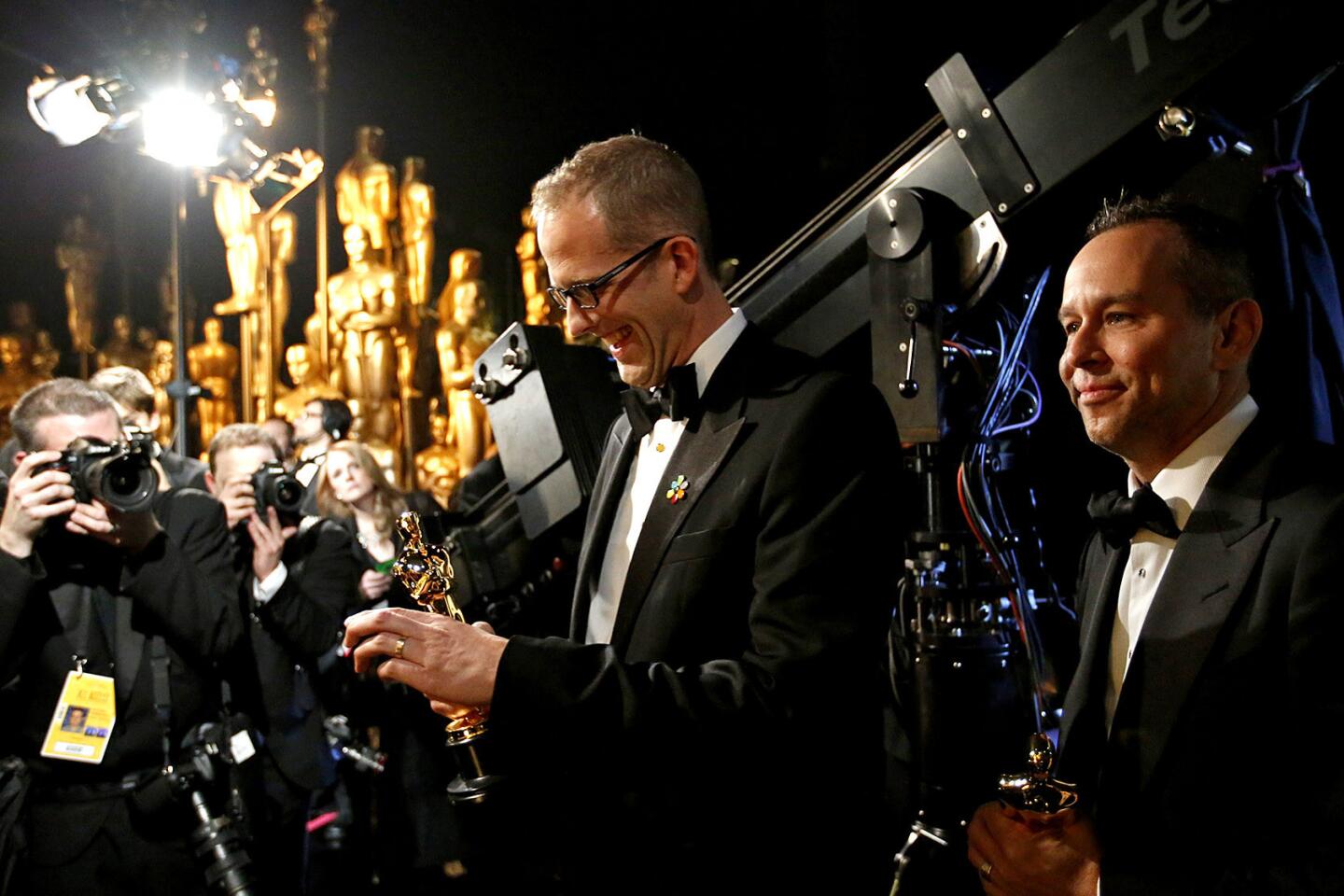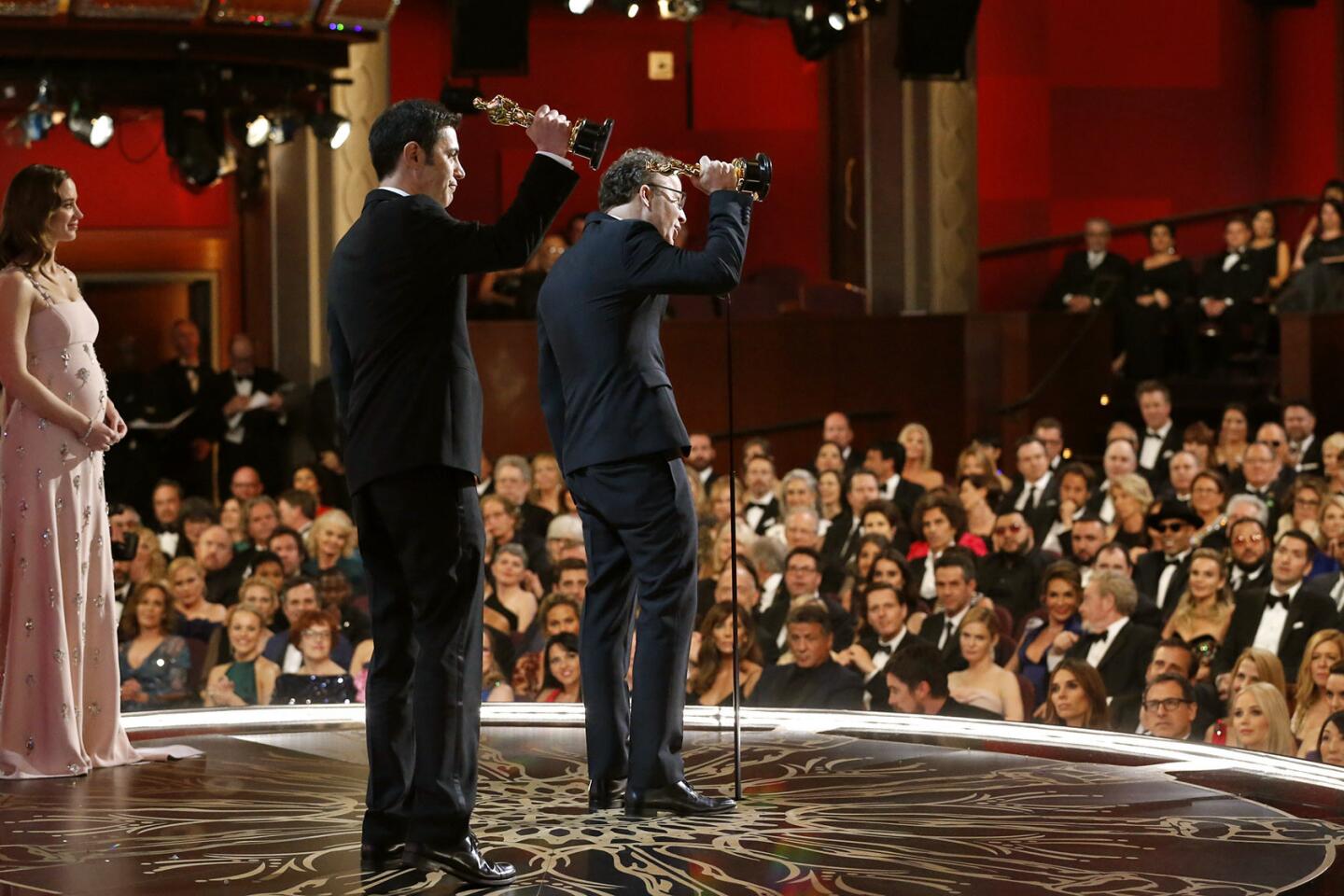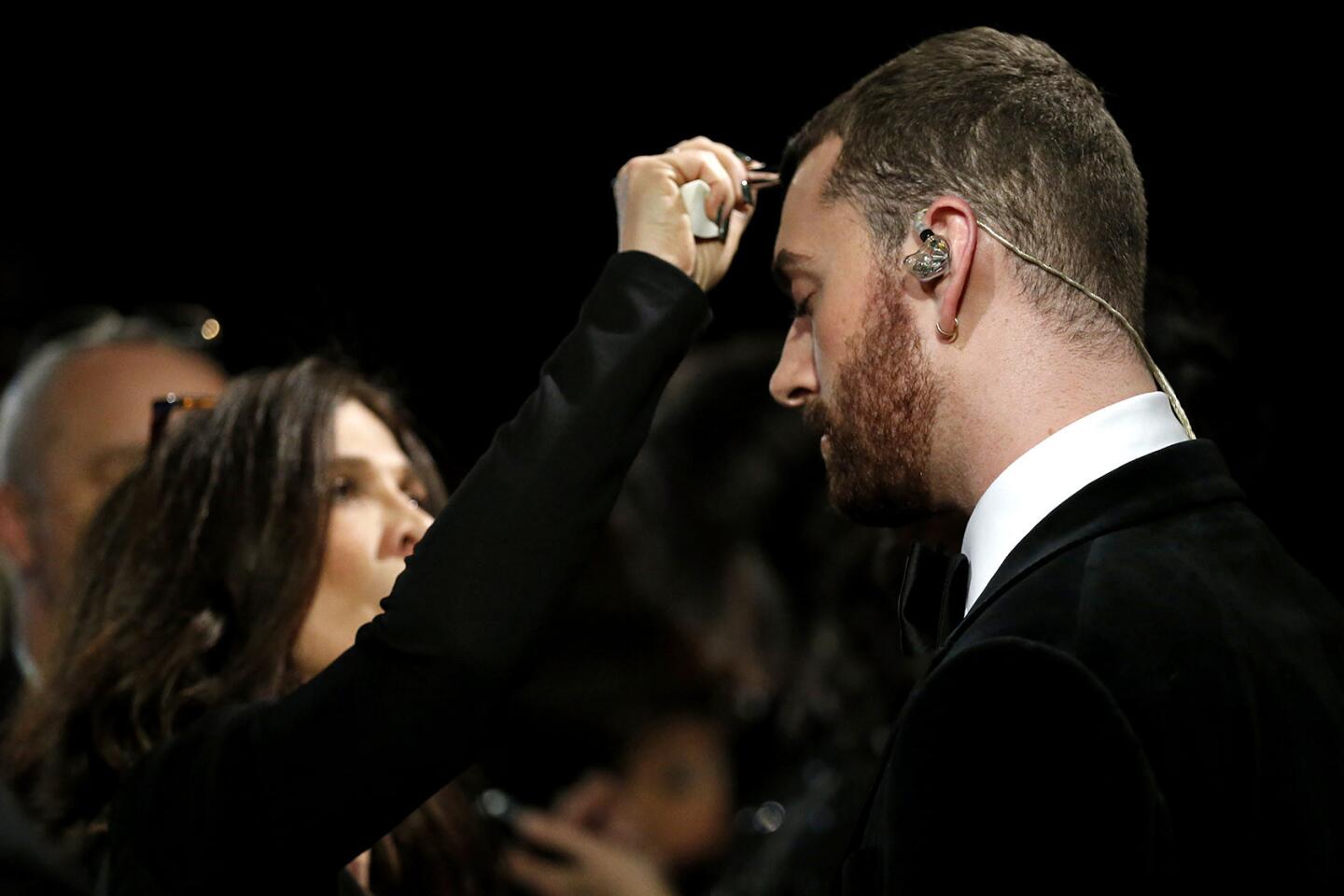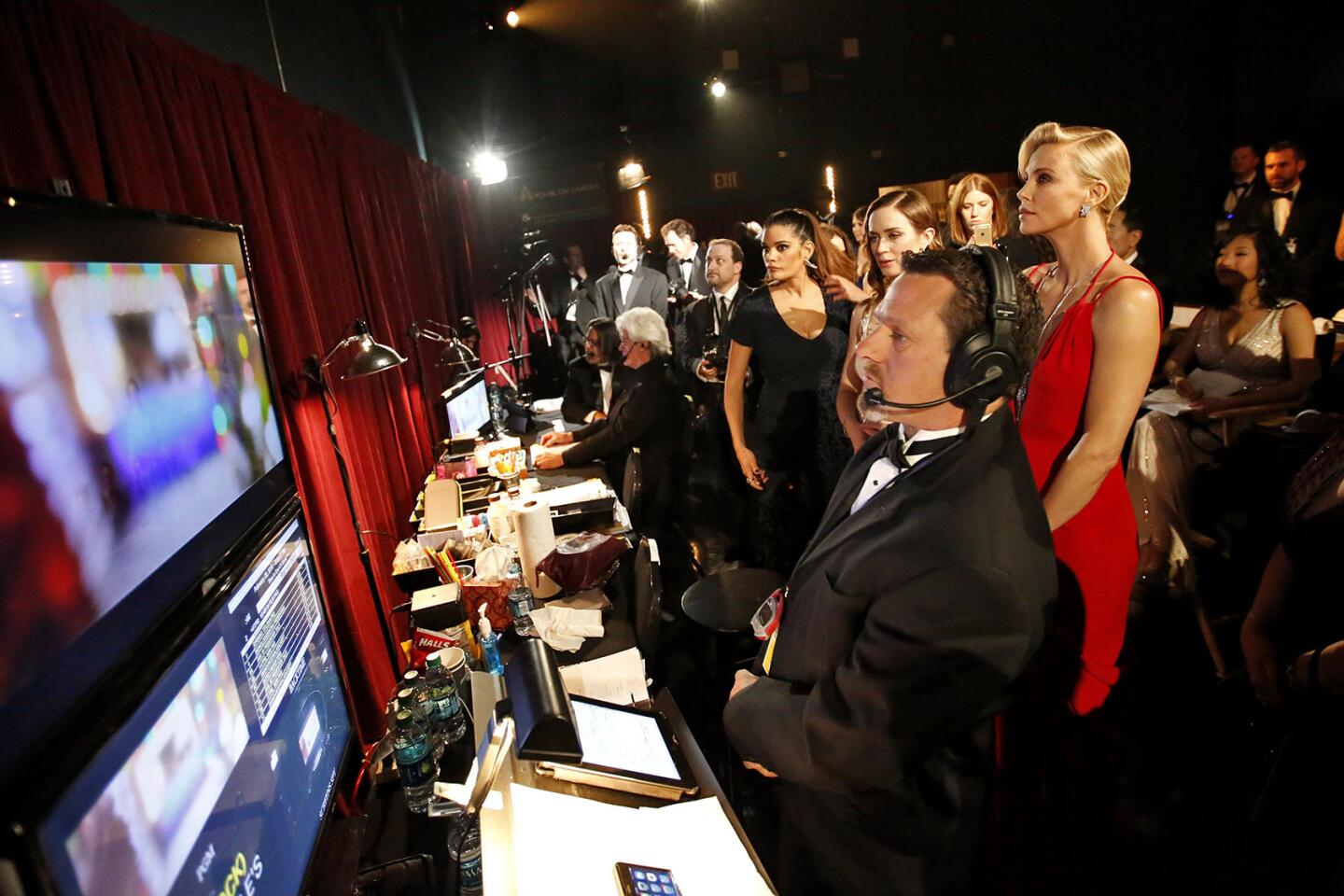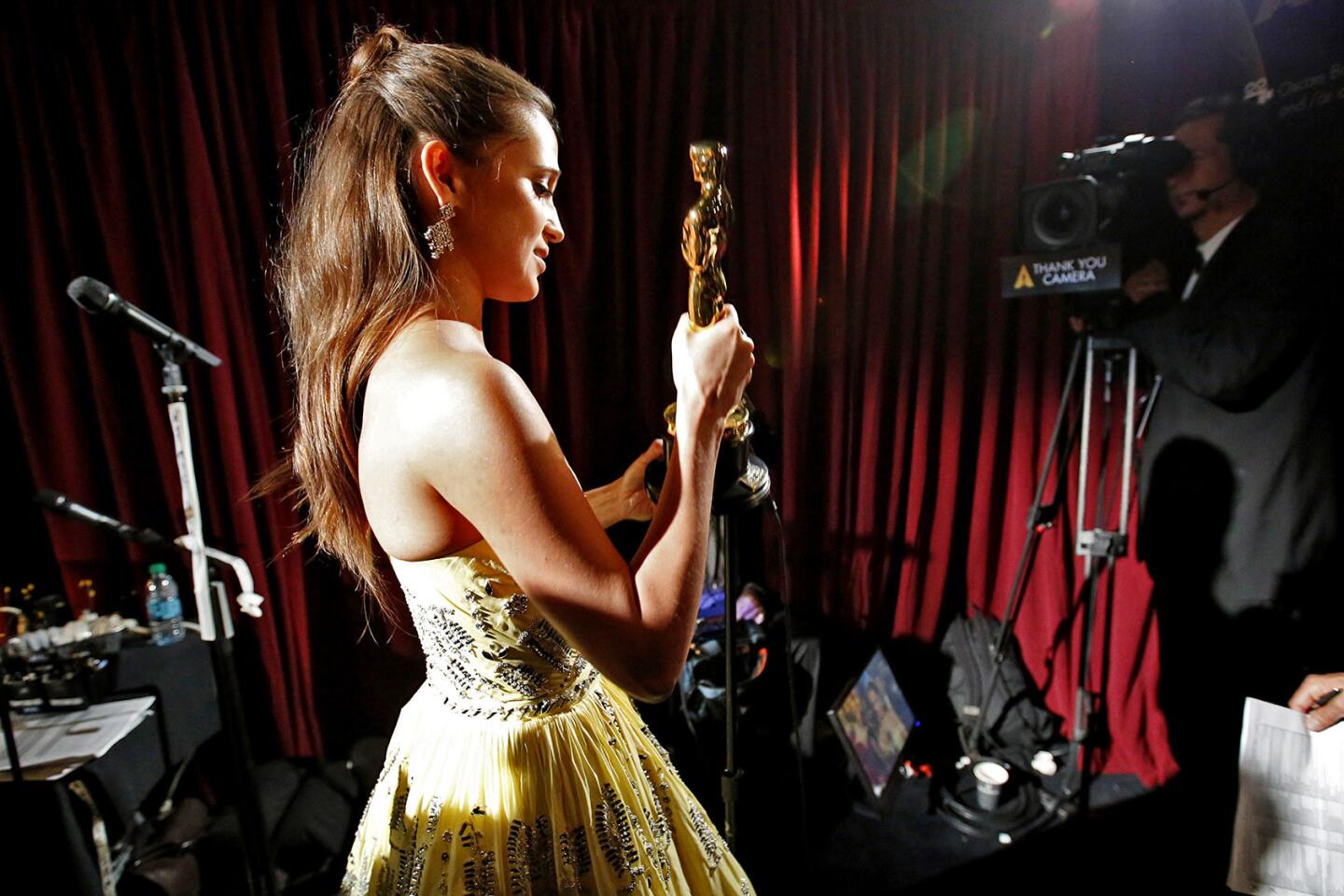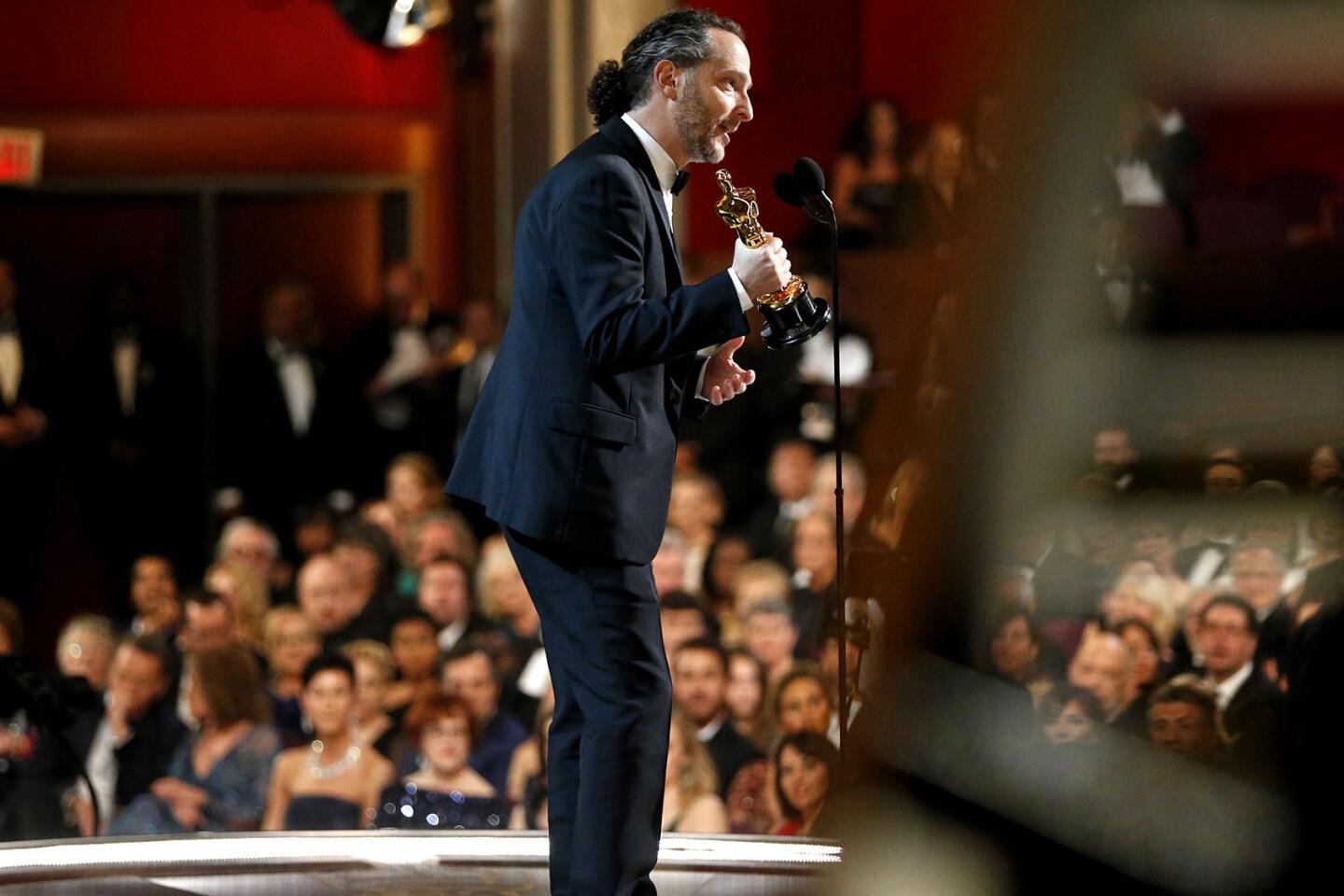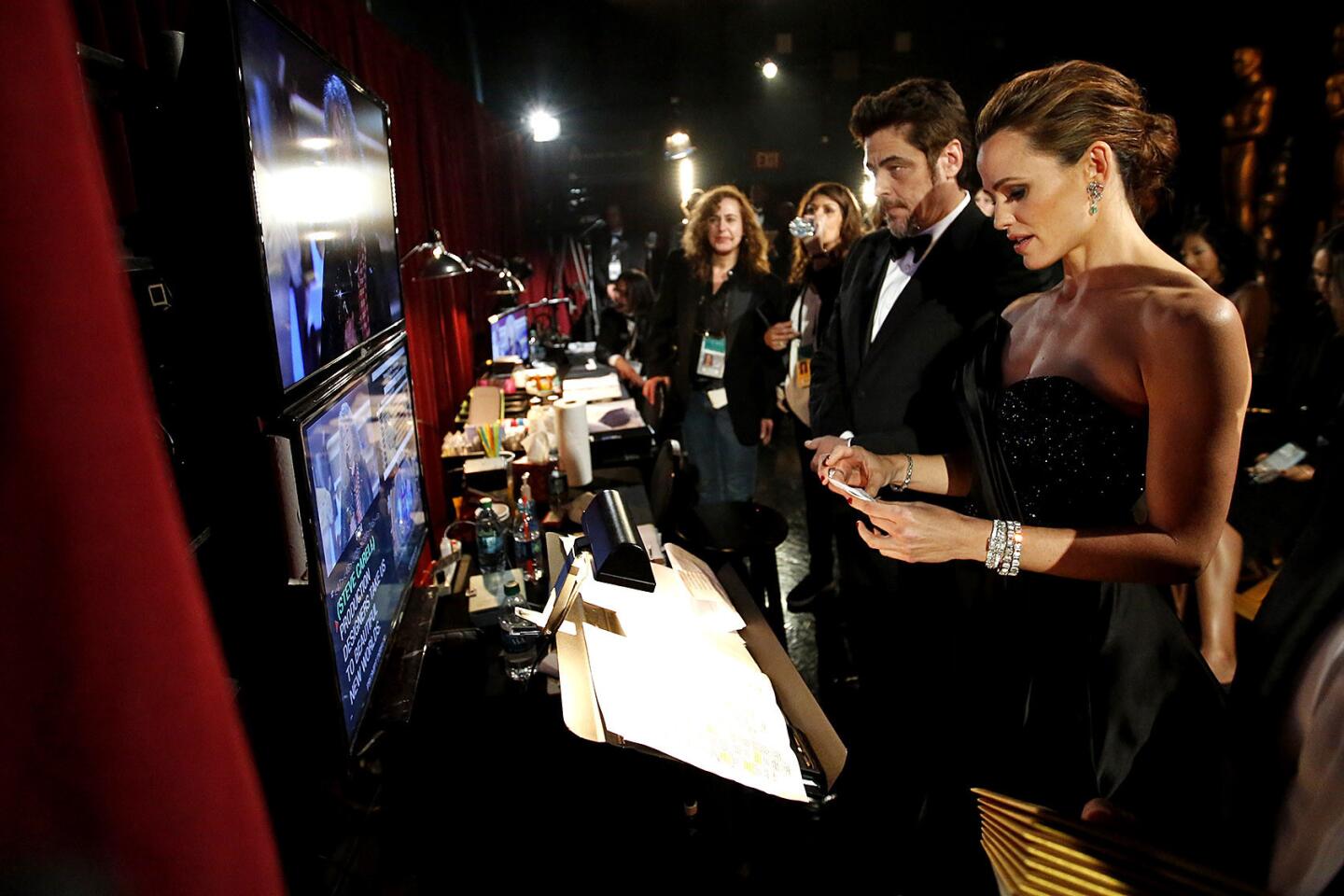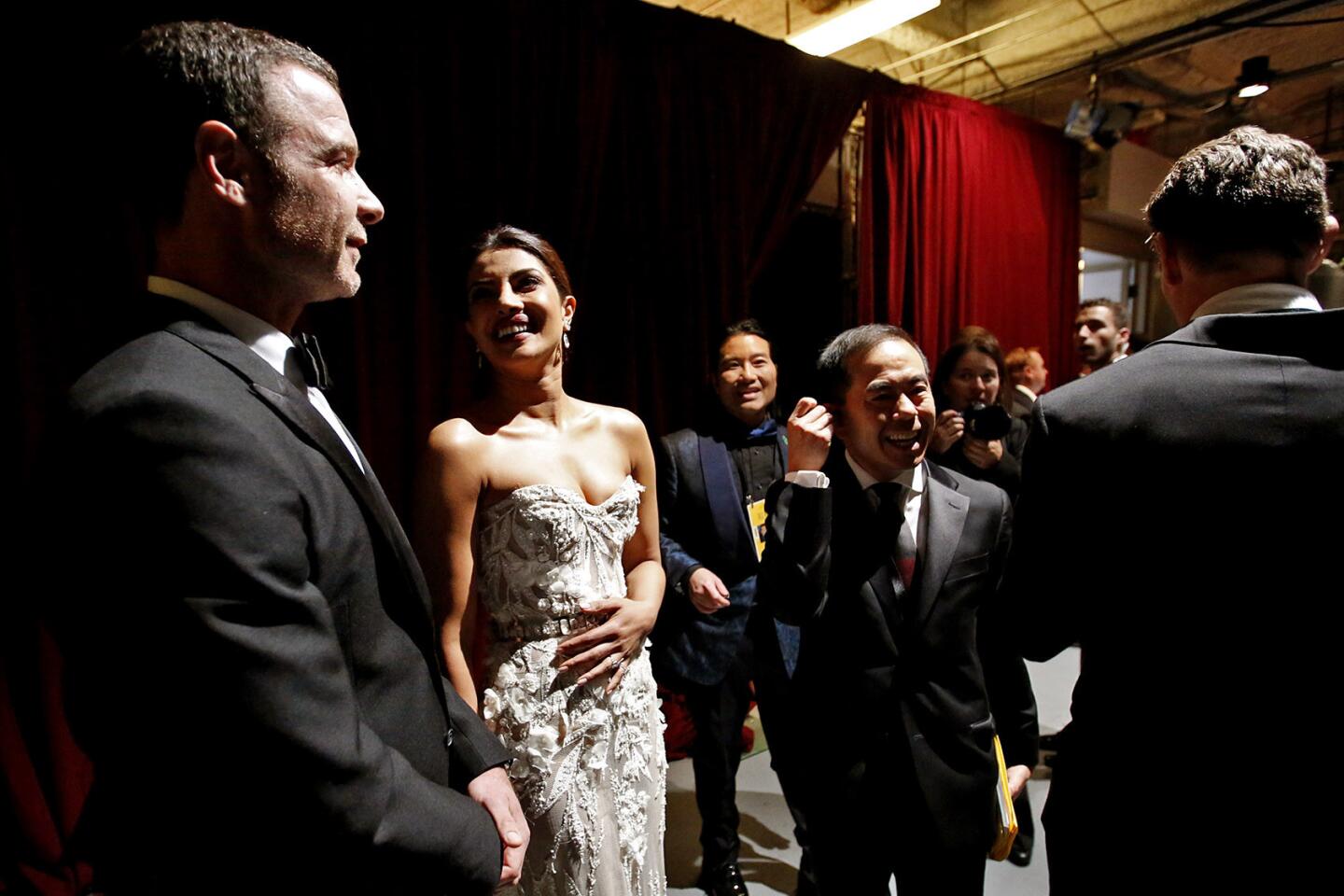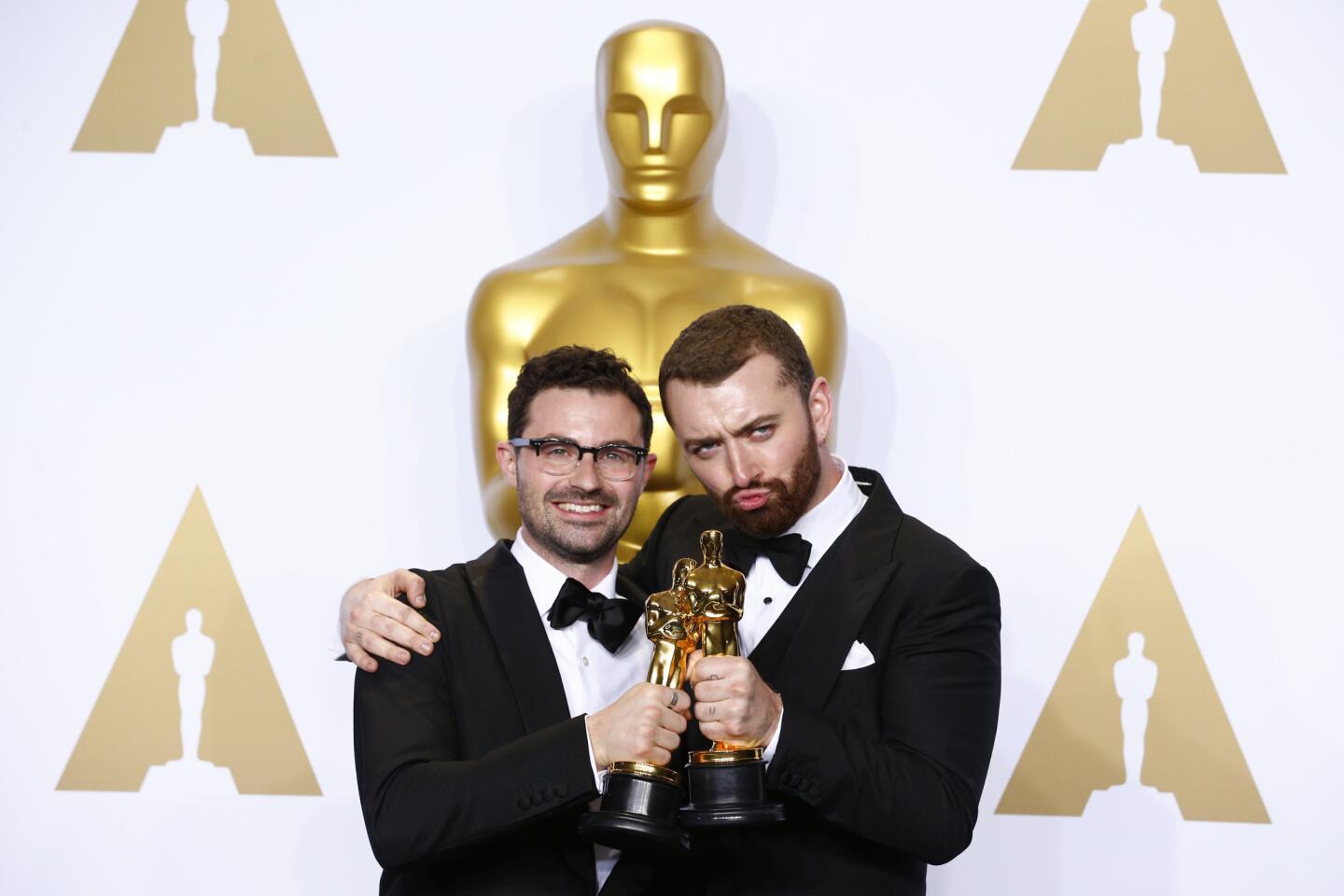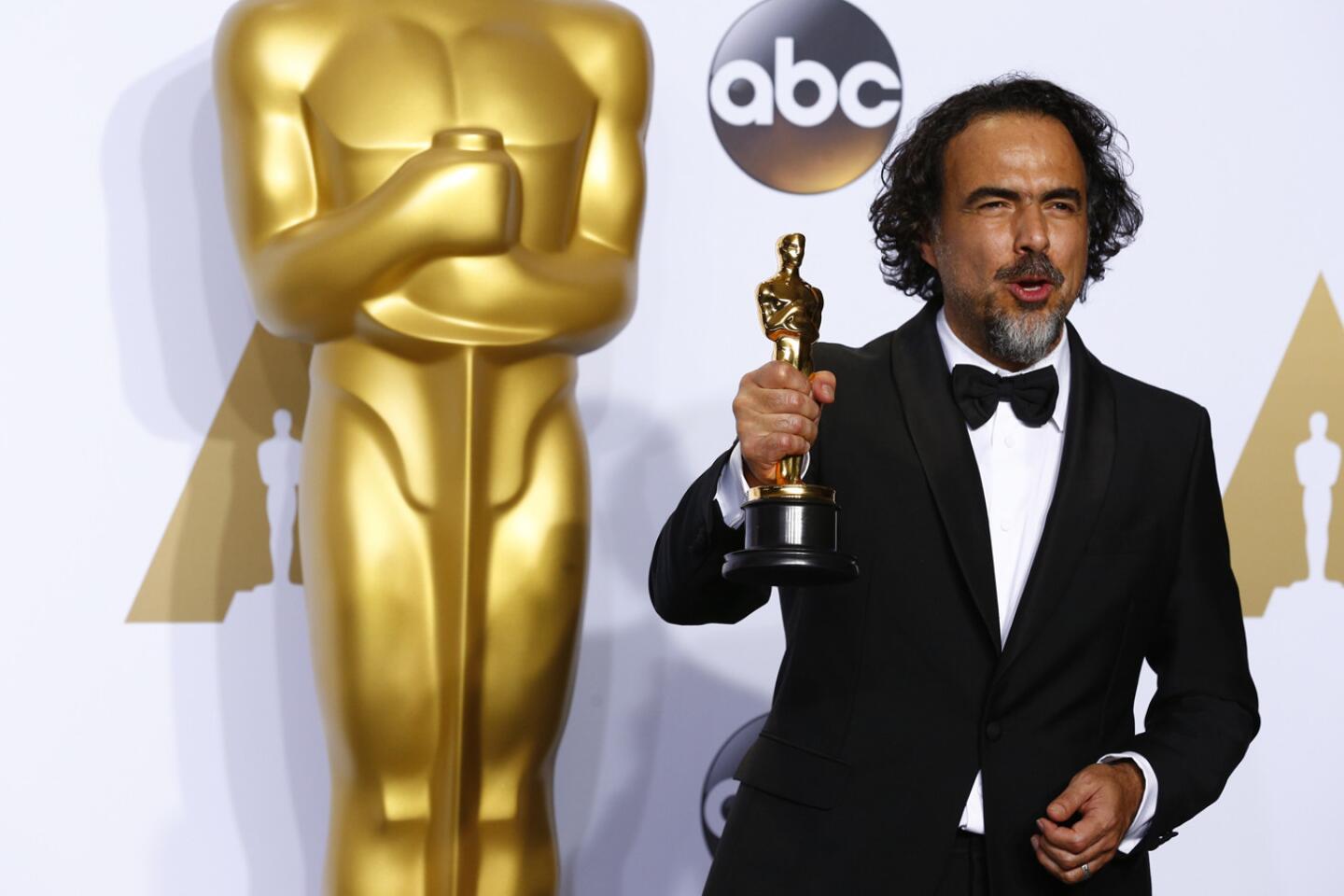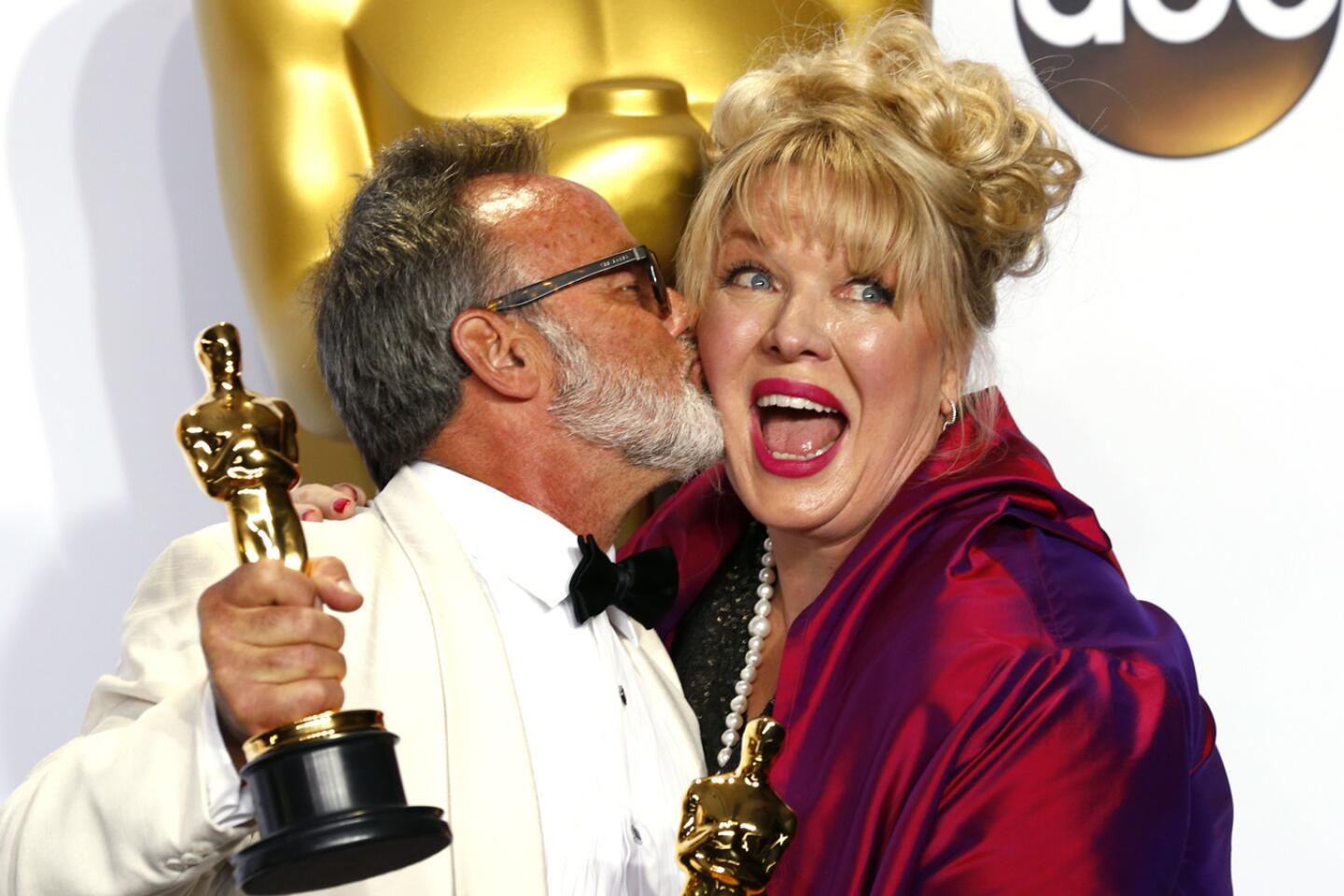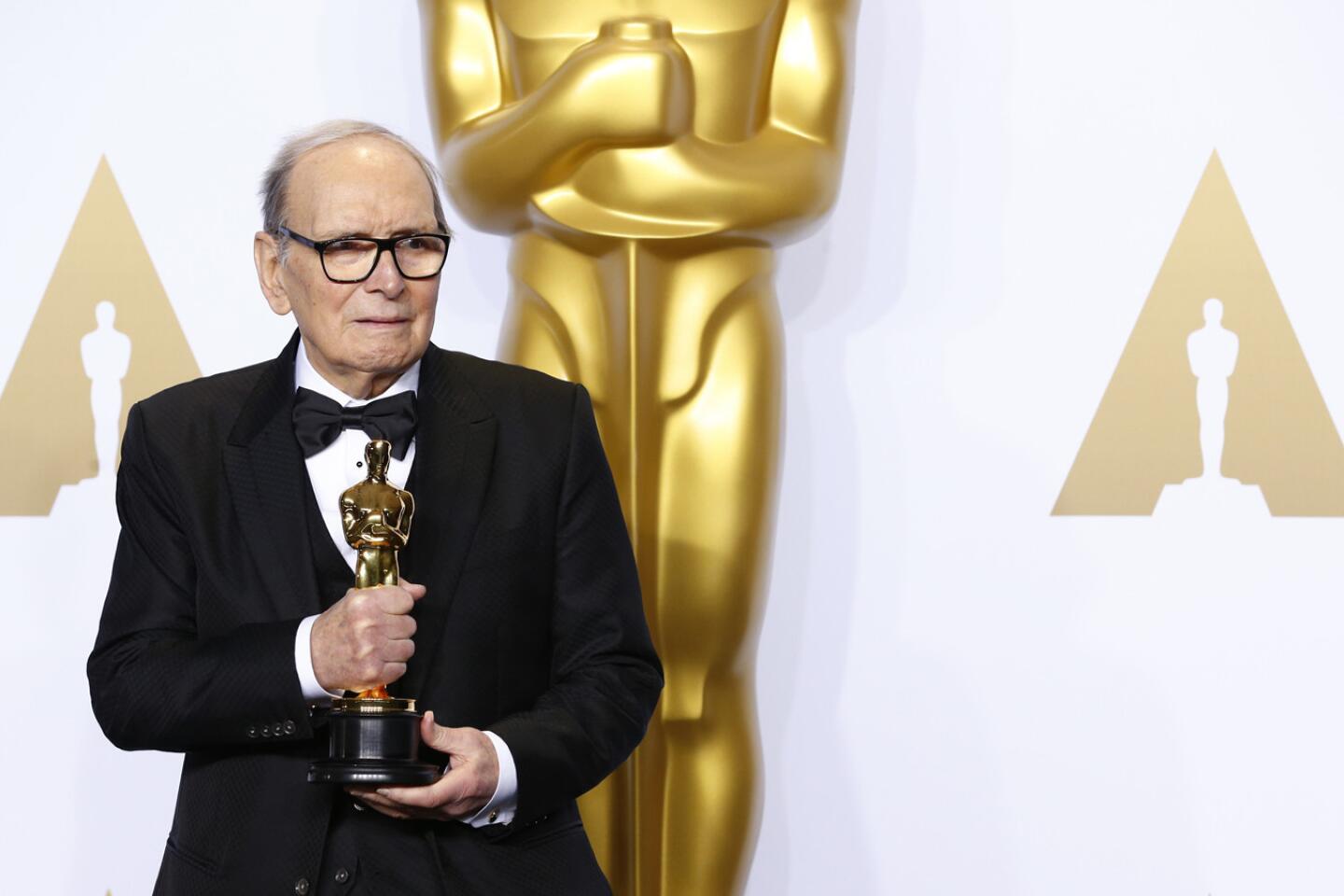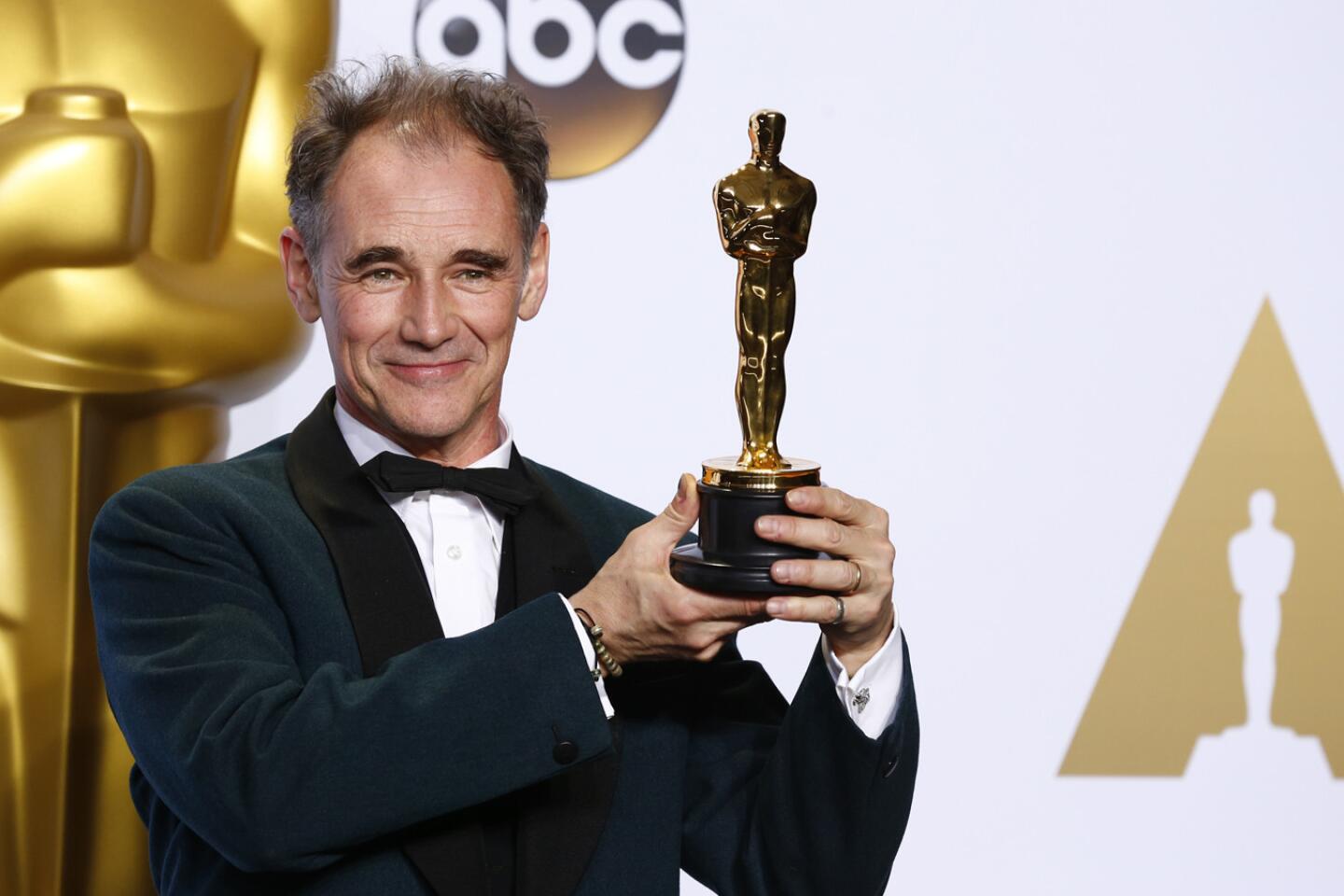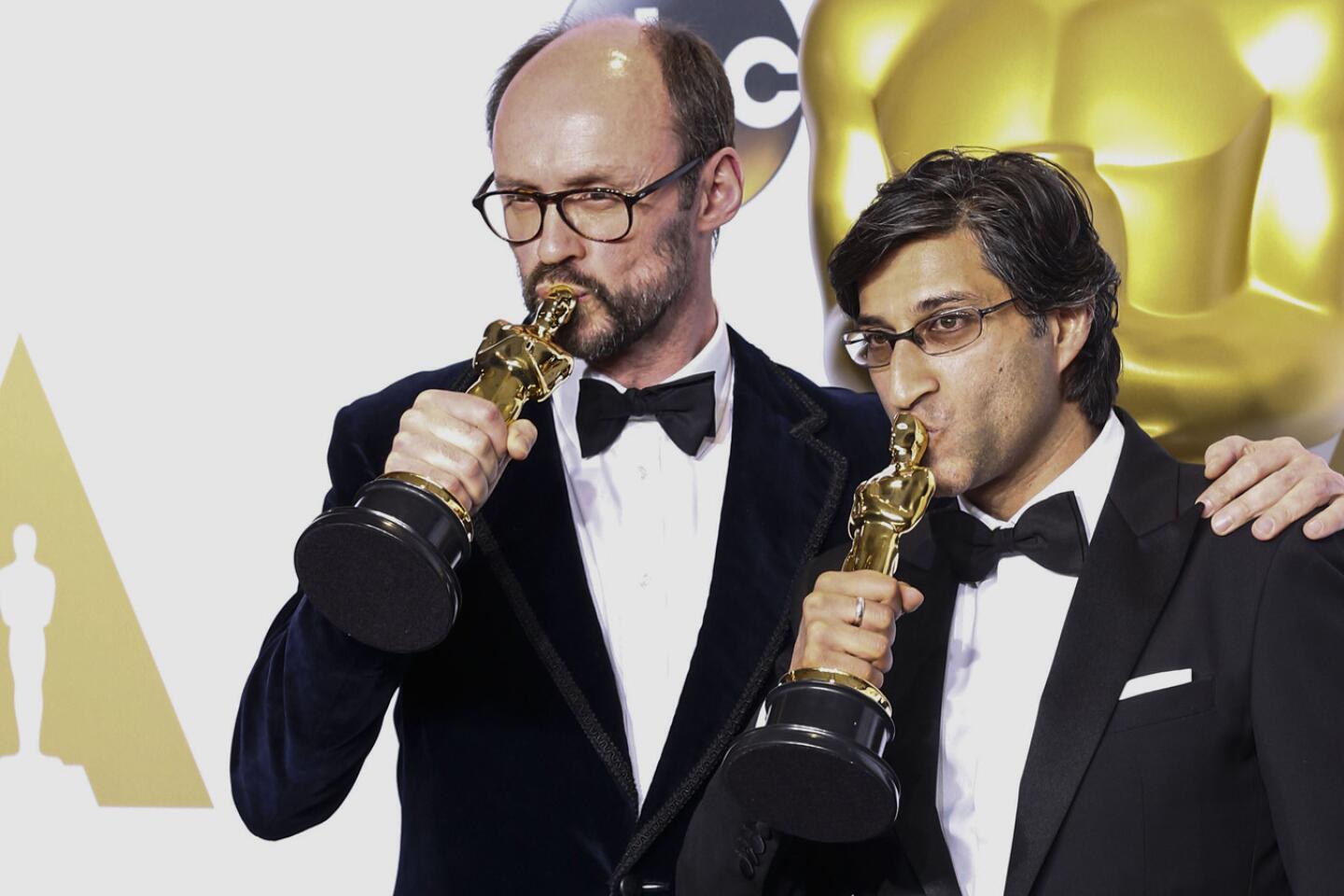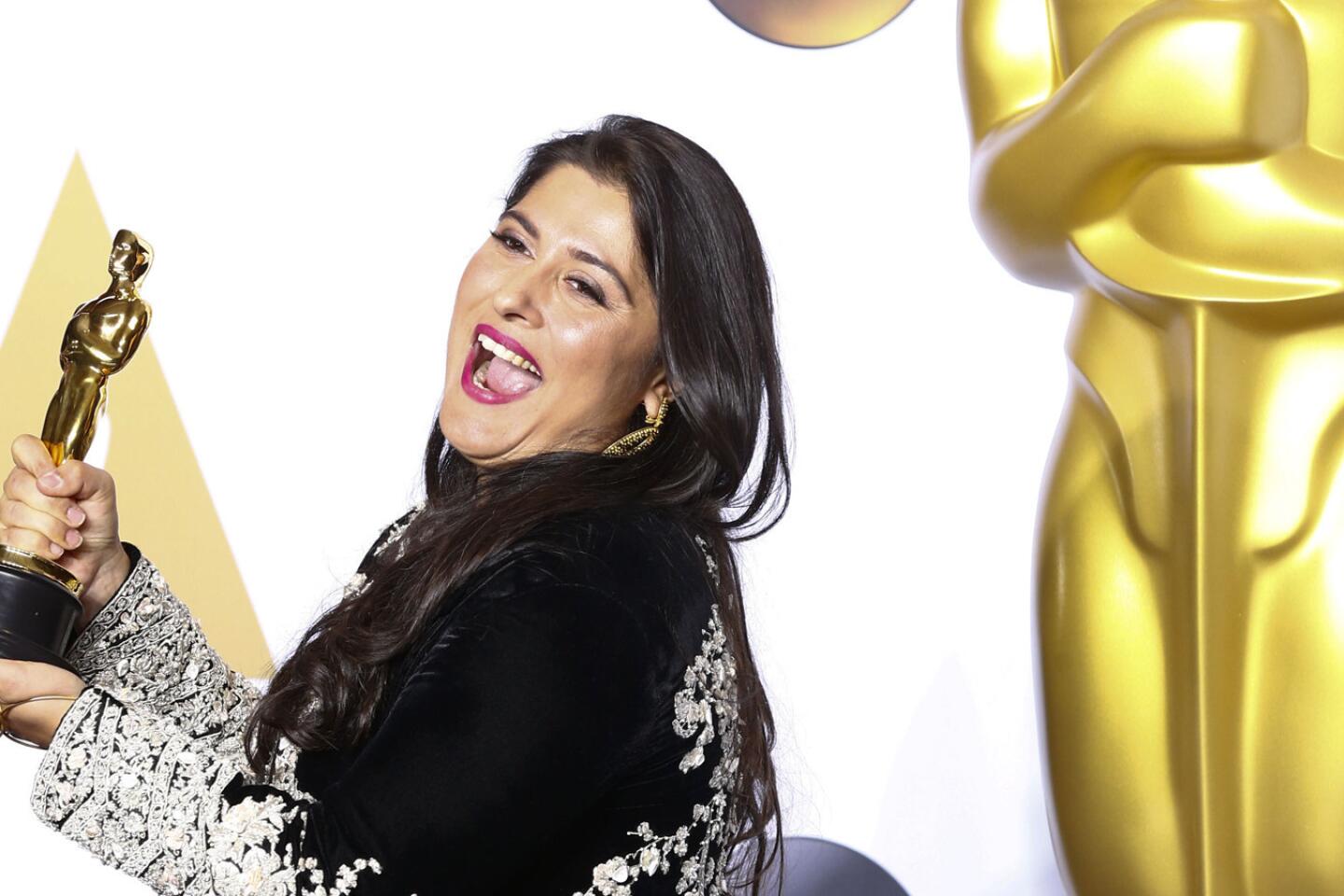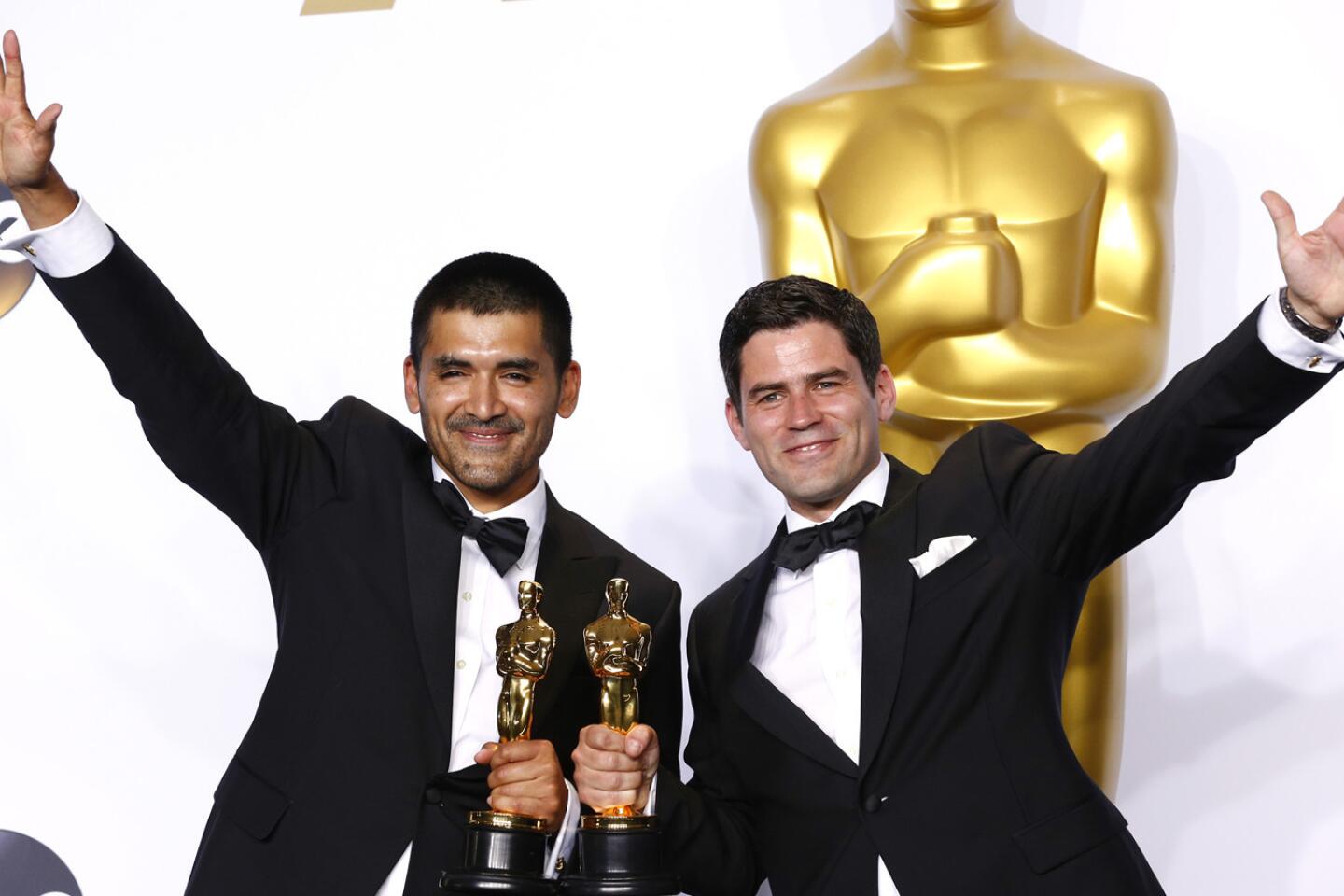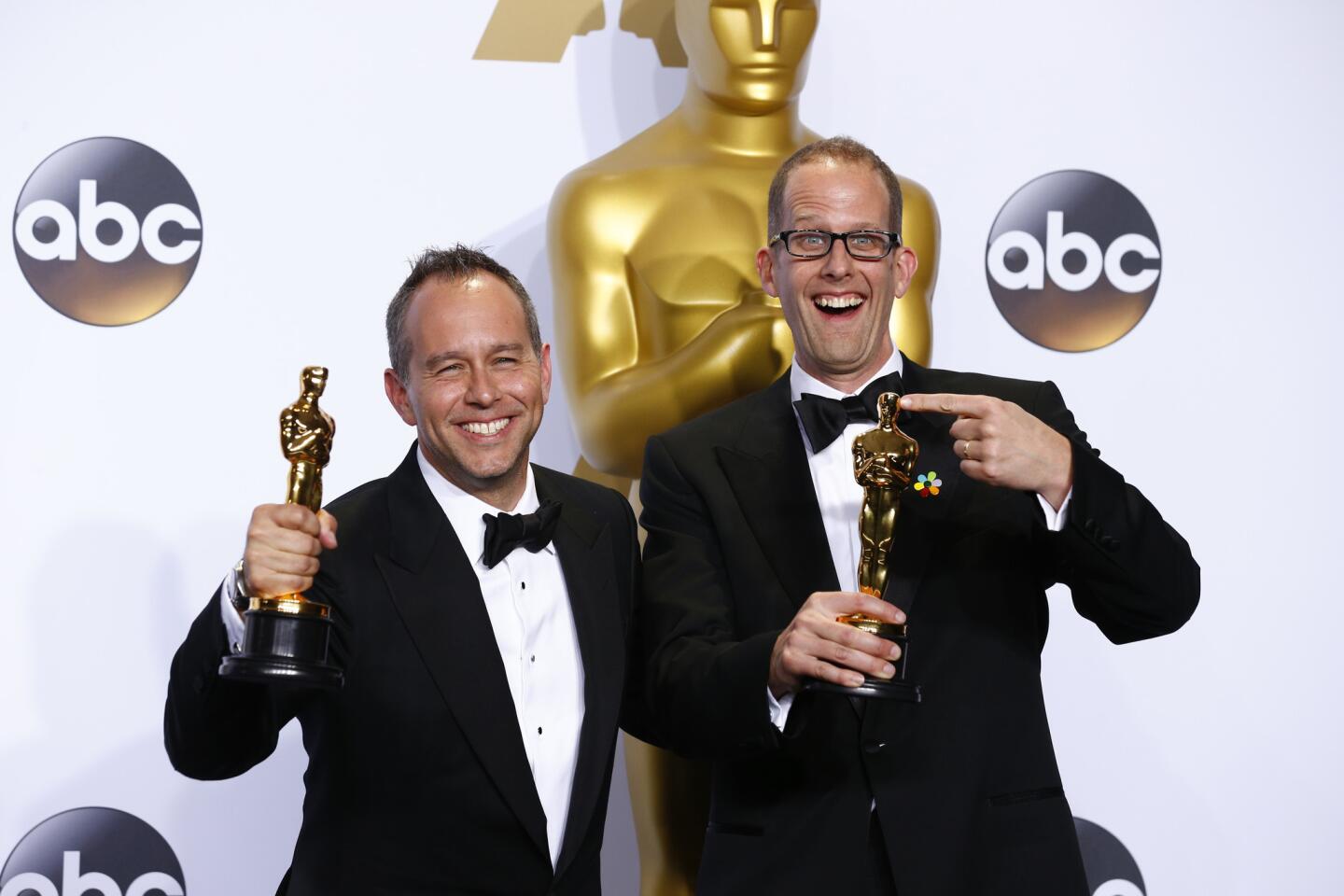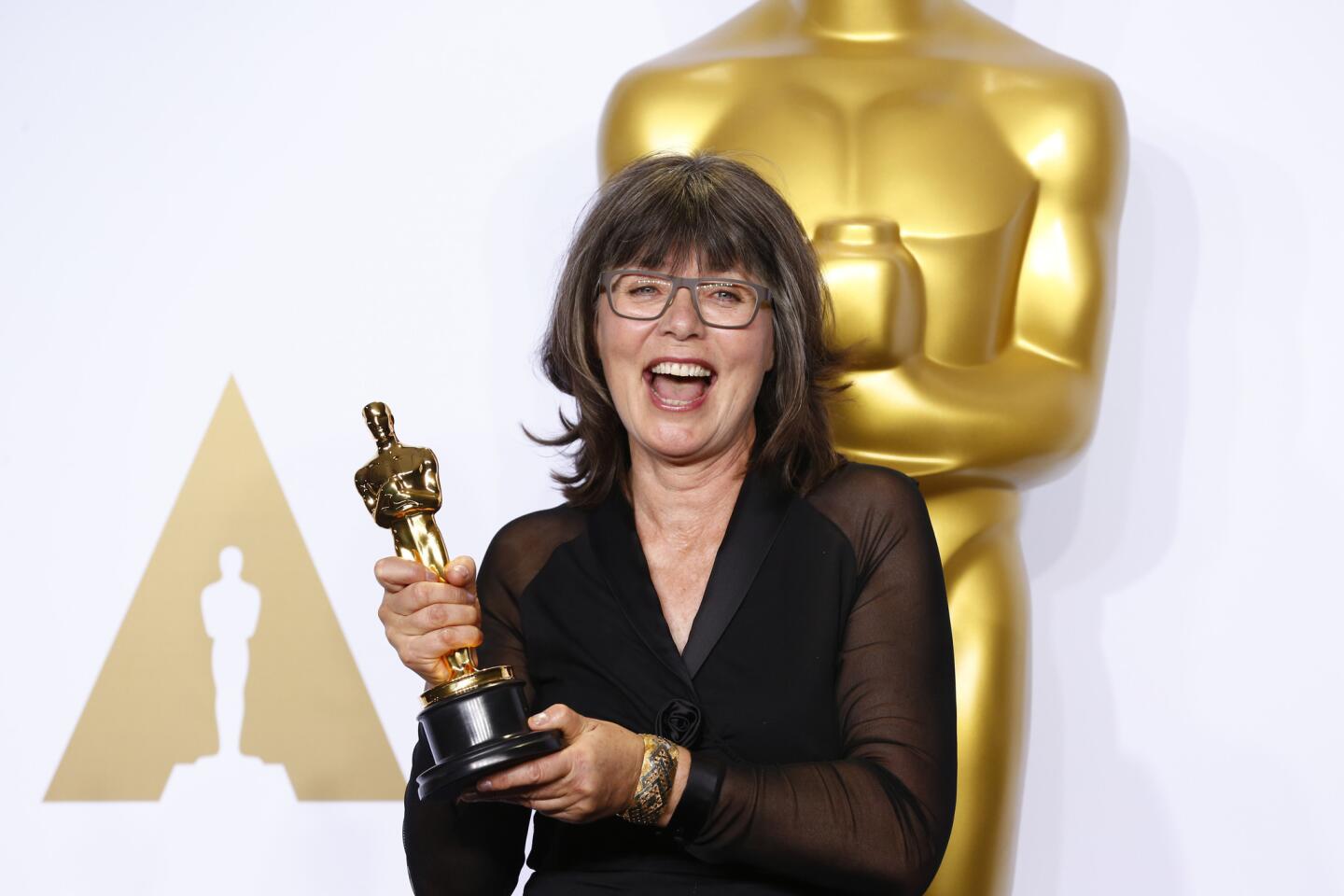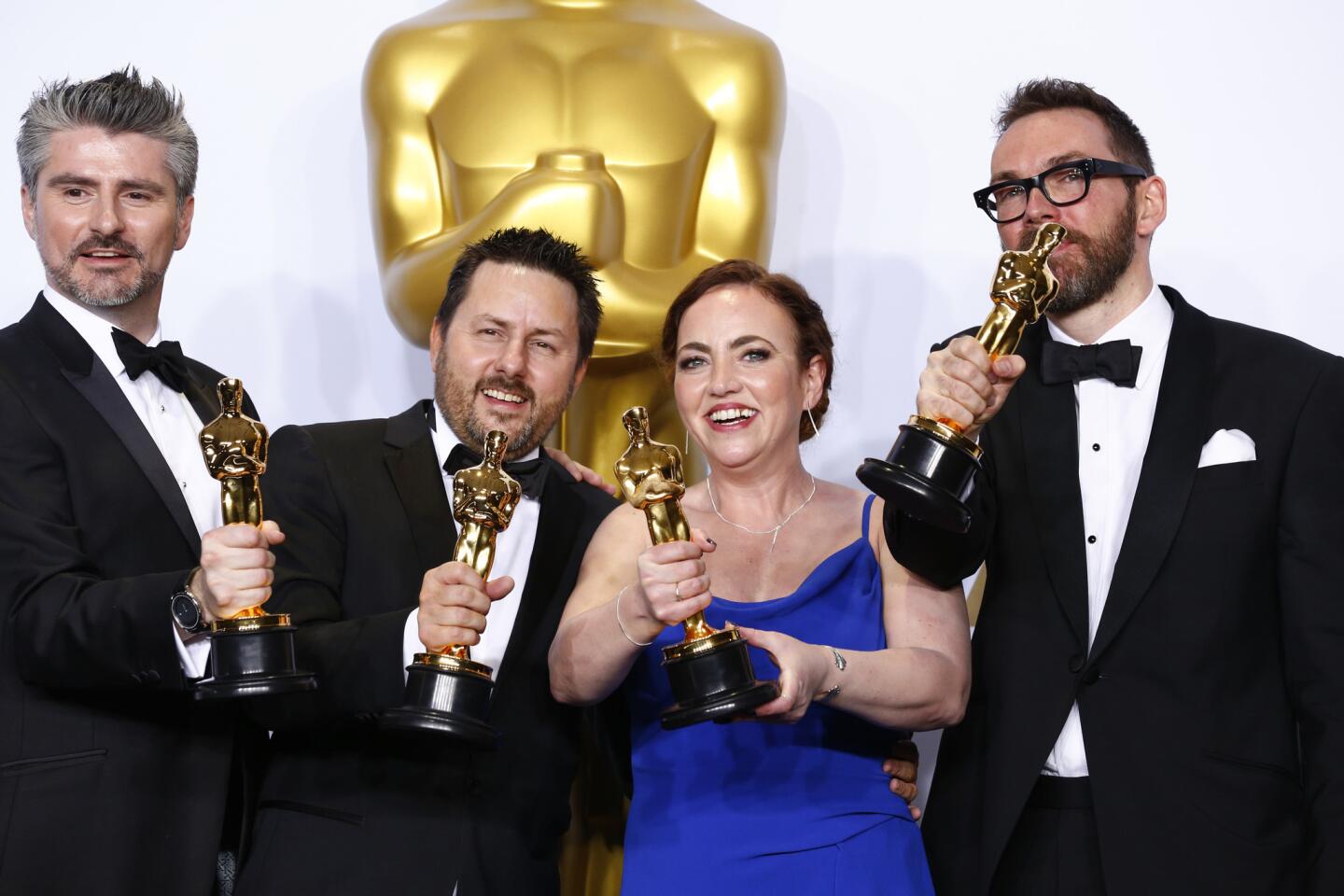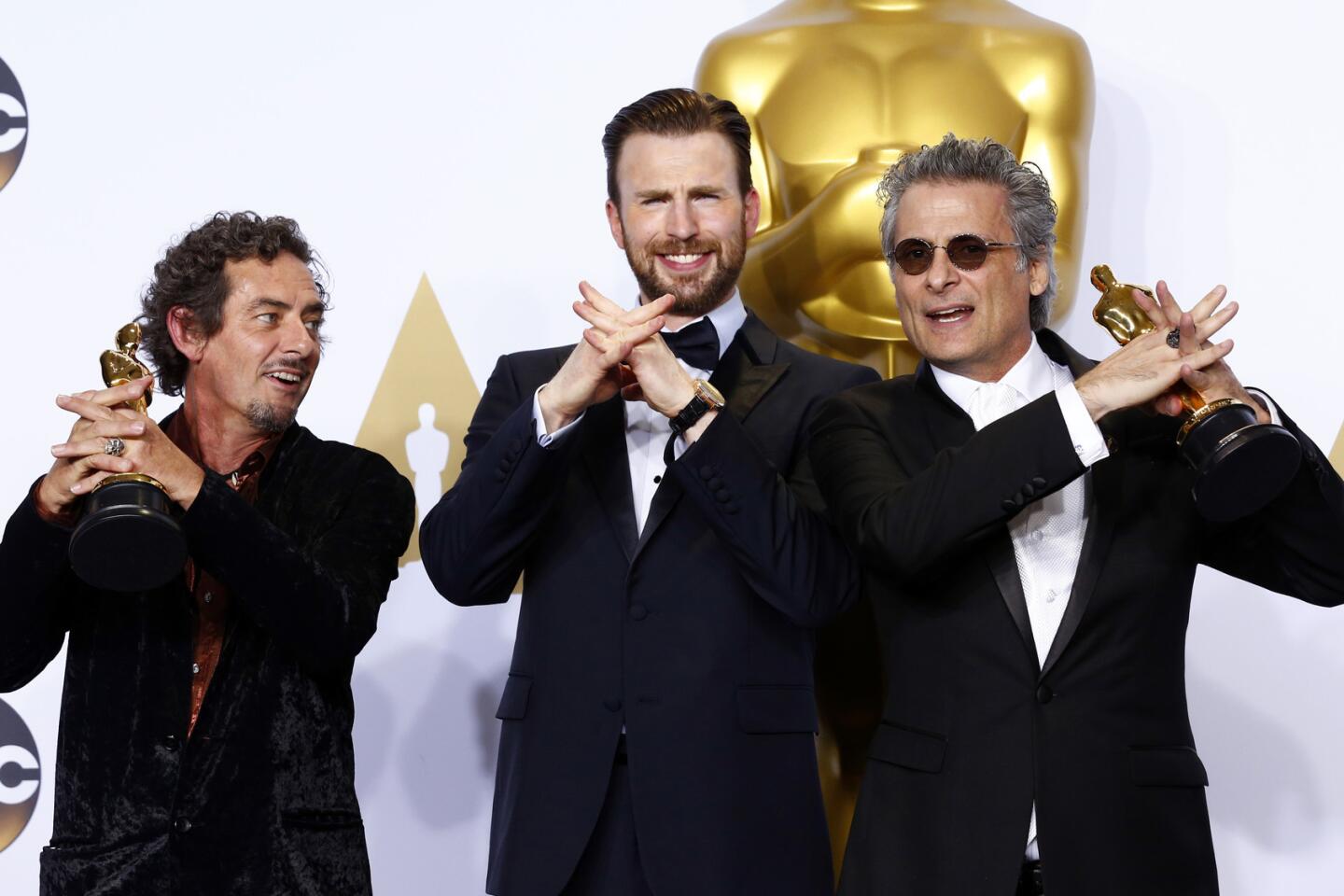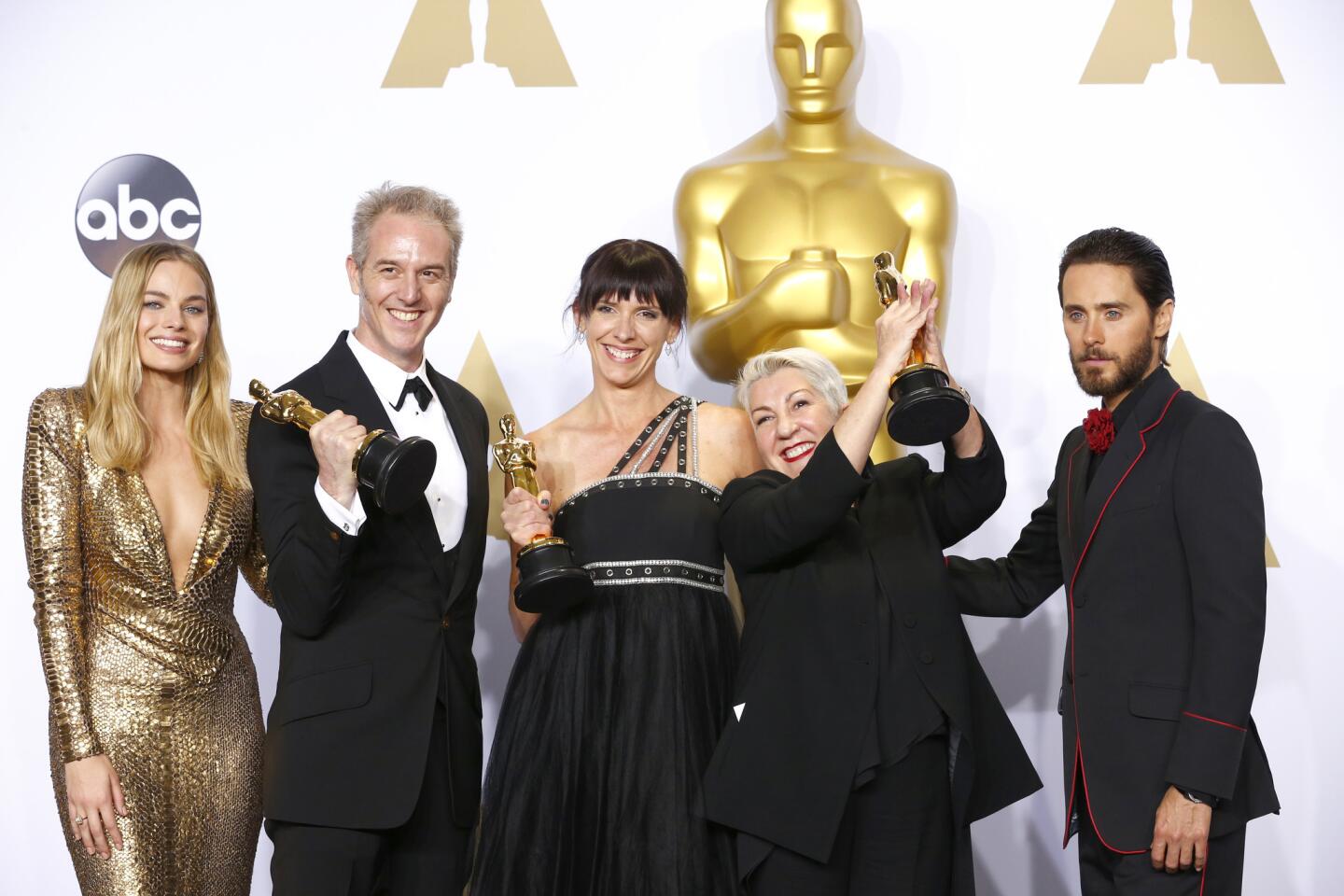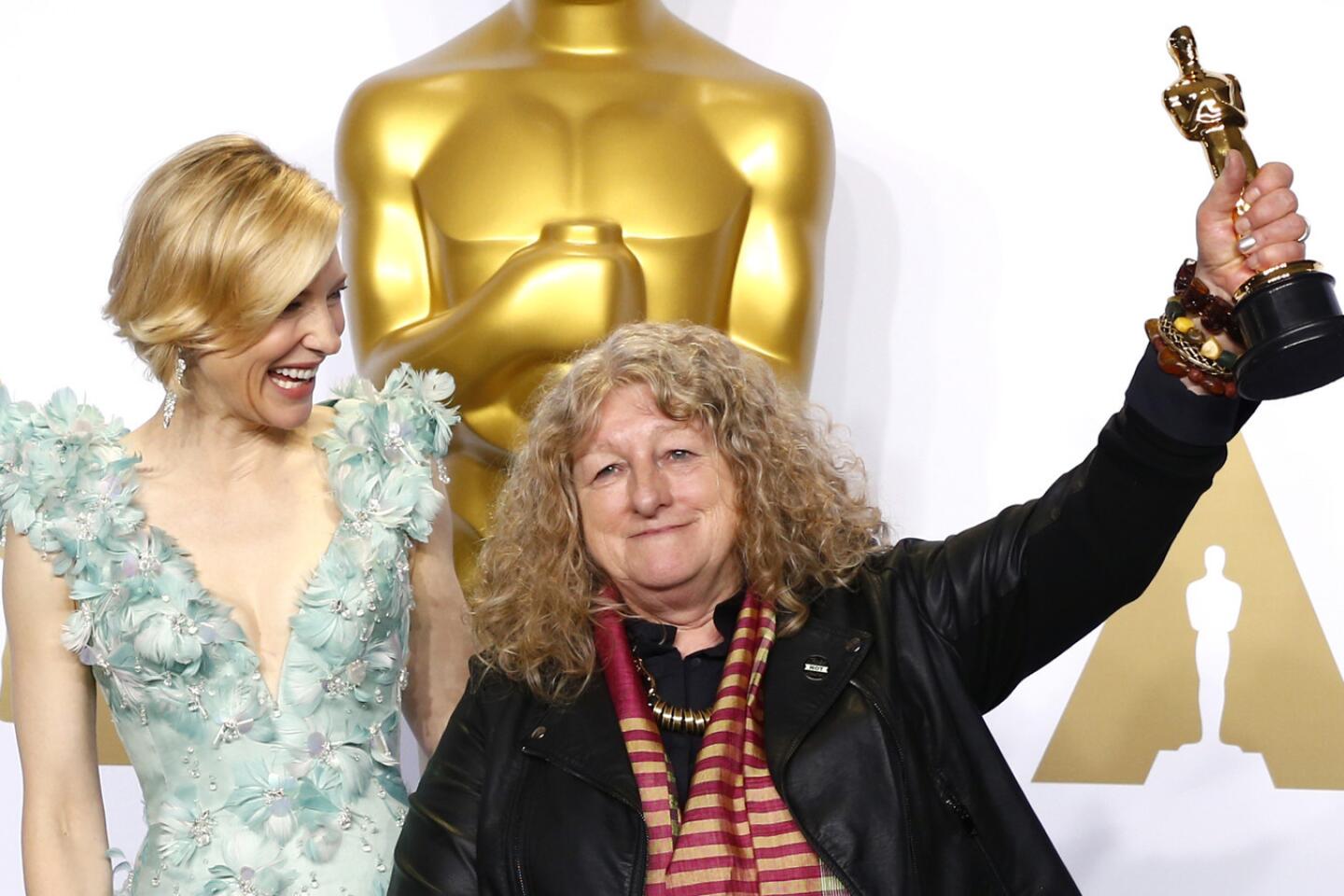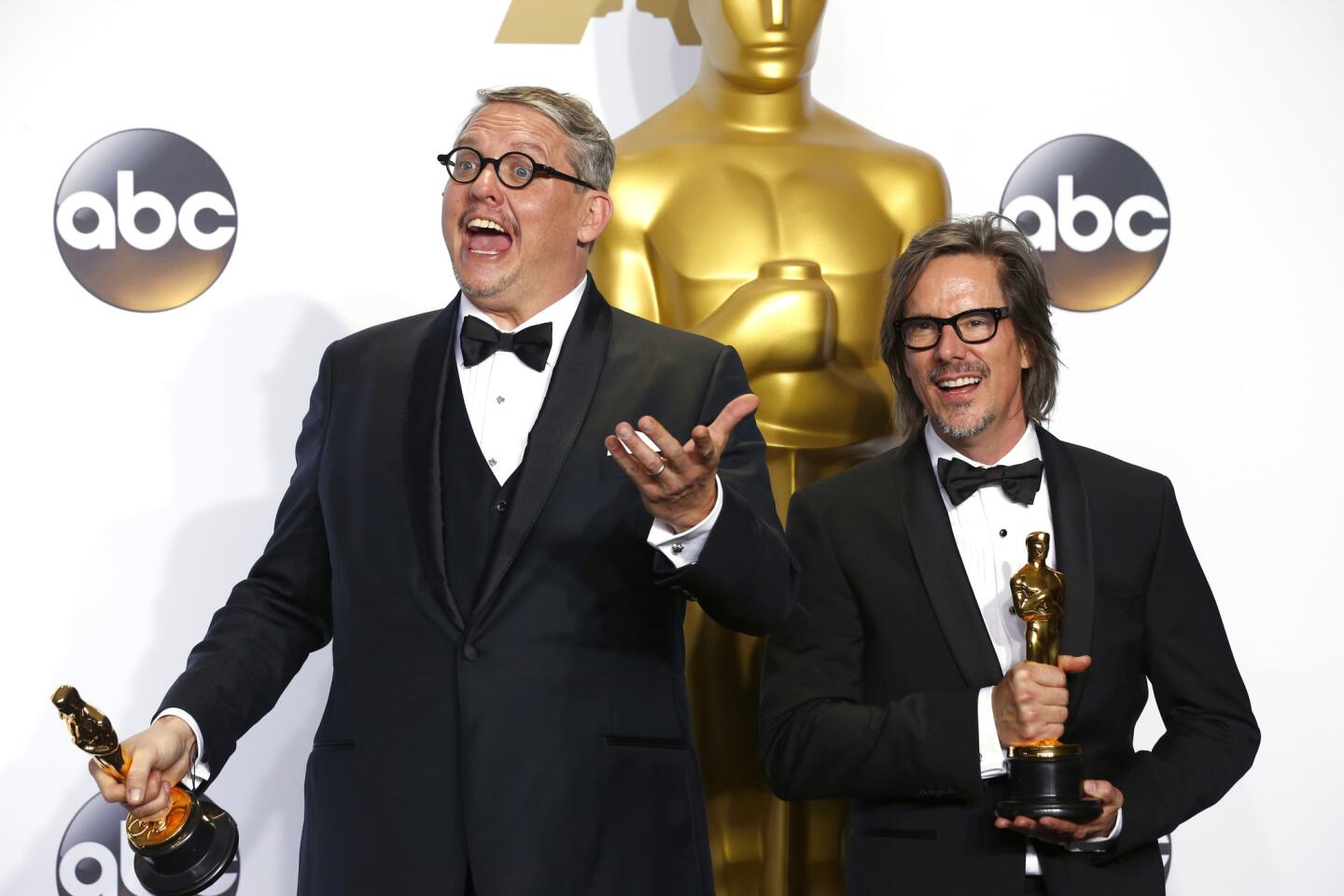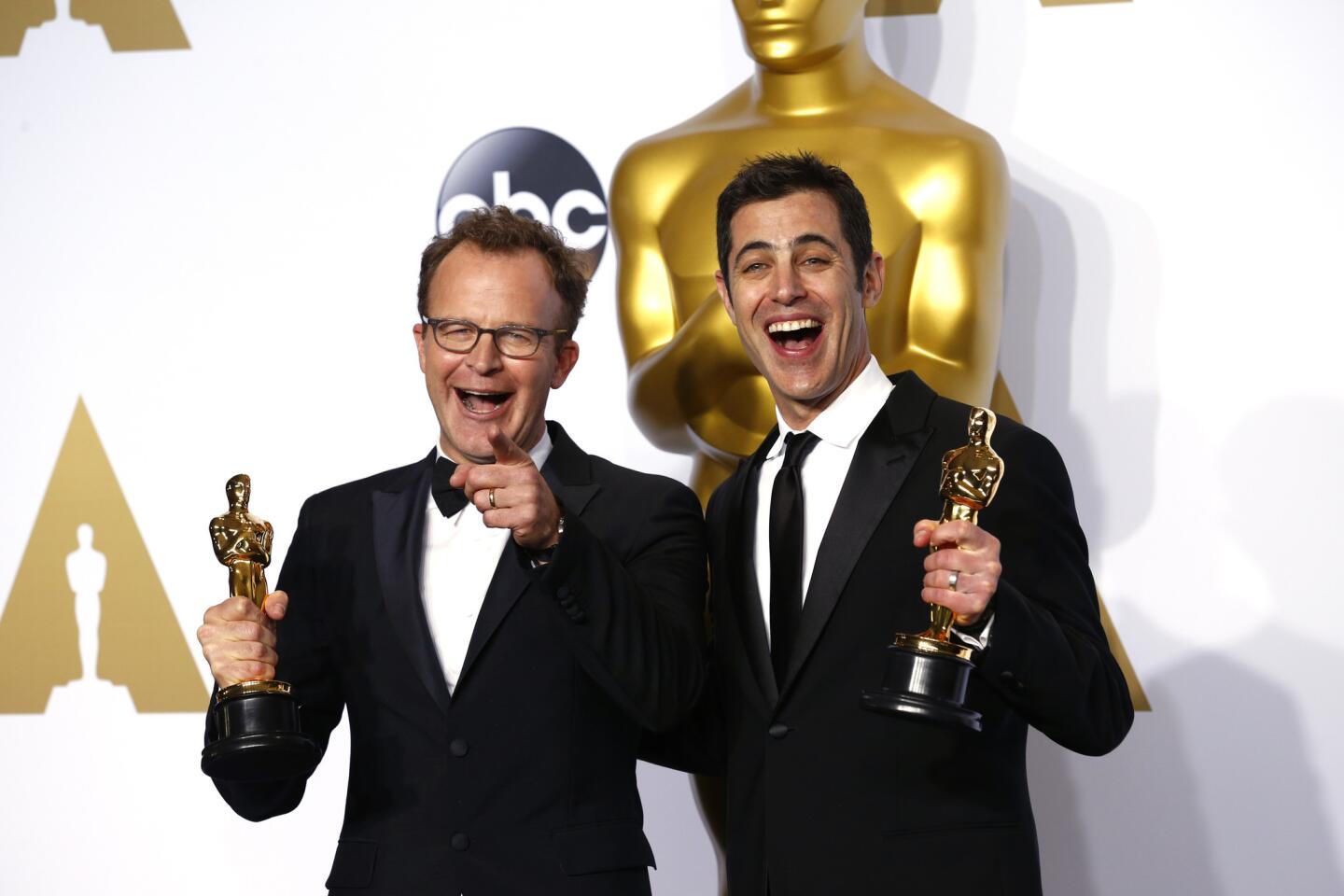“Spotlight” and other Oscar winning films this year had something to say beyond a riveting tale.
Just last month at a Santa Barbara International Film Festival tribute, Roger Durling, the event’s director, broke from asking “Spotlight” actors questions about the movie and their careers to express gratitude.
“I’ll speak for all of us survivors when I say, ‘Thank you for making ‘Spotlight,’” Durling told Michael Keaton and Rachel McAdams.
A couple of days earlier, Durling had written an op-ed piece about his own past as a victim of clerical abuse. He said that “Spotlight,” which followed the Boston Globe’s investigation of the Catholic Church’s cover-up of sexual abuse by priests, offered a voice to people like him “who used to feel anchorless and alone.”
OSCARS 2016: List of nominees | Red carpet arrivals | Best and worst dressed
That’s the story of this year’s Oscars — representation. Or the lack thereof. Seeing yourself, seeing your story told on screen is affirming and empowering. For some people, like Durling, it can feel like a matter of survival.
1/49
Jennifer Lawrence
(Jay L. Clendenin / Los Angeles Times) 2/49
“The Martian” actor Matt Damon
(Allen J. Schaben / Los Angeles Times) 3/49
Actress Priyanka Chopra
(Allen J. Schaben / Los Angeles Times) 4/49
Taylor Kinney, left, and Lady Gaga arrive at the Oscars at the Dolby Theatre in Los Angeles.
(Jordan Strauss/Invision/Associated Press) 5/49
“Titanic” costars Leonardo DiCaprio and Kate Winslet reunite on the red carpet.
(Jay L. Clendenin / Los Angeles Times) 6/49
Amy Poehler and Michael Keaton
(Jay L. Clendenin / Los Angeles Times) 7/49
Charlize Theron
(Jay L. Clendenin / Los Angeles Times) 8/49
The Weeknd and Common
(Jordan Strauss/Invision/AP; Angela Weissangela Weiss/AFP/Getty Images) 9/49
Oscar nominees Cate Blanchett (“Carol”) and Bryan Cranston (“Trumbo”).
(Jay L. Clendenin / Los Angeles Times) 10/49
Oscar nominee Rachel McAdams (supporting actress, “Spotlight”).
(Jay L. Clendenin / Los Angeles Times) 11/49
From left, actress Margot Robbie, best actor nominee Eddie Redmayne (“The Danish Girl”) and actress Jennifer Garner.
(Jay L. Clendenin / Los Angeles Times; Ethan Miller/Getty Images; Jordan Strauss/Invision/AP) 12/49
People protest the all-white slate of acting Oscar nominees and lack of diversity in the industry near the 88th Academy Awards at Hollywood & Highland Center.
(David McNew / AFP/Getty Images) 13/49
Taylor Kinney, left, and Lady Gaga
(Jordan Strauss/Invision/Associated Press) 14/49
“Director Ridley Scott and Giannina Facio, left, and supporting actor nominee Tom Hardy (“The Revenant”) with Charlotte Riley.
(Jay L. Clendenin / Los Angeles Times) 15/49
Supporting actor nominee Tom Hardy (“The Revenant”) with actress Charlotte Riley.
(Jay L. Clendenin / Los Angeles Times) 16/49
Best actress nominee Cate Blanchett (“Carol”).
(Jay L. Clendenin / Los Angeles Times) 17/49
Nominees and former costars Kate Winslet (supporting actress, “Steve Jobs”) and Leonardo DiCaprio (best actor, “The Revenant”).
(Jay L. Clendenin / Los Angeles Times) 18/49
Leonardo DiCaprio
(Jay L. Clendenin / Los Angeles Times) 19/49
Actor Christian Bale with wife Sibi Blazic.
(Mark Boster / Los Angeles Times) 20/49
Reese Witherspoon
(Jay L. Clendenin / Los Angeles Times) 21/49
Model Heidi Klum
(Jay L. Clendenin / Los Angeles Times) 22/49
Model Chrissy Teigen and husband John Legend
(Mark Boster / Los Angeles Times) 23/49
Kerry Washington
(Christopher Polk/Getty Images; Jordan Strauss/Invision/AP) 24/49
Supporting actress winner Alicia Vikander (“The Danish Girl”).
(Jay L. Clendenin / Los Angeles Times) 25/49
Naomi Watts, Olivia Munn, Priyanka Chopra
(Jordan Strauss/Invision/AP; Jordan Strauss/Invision/AP; Jason Merritt/Getty Images) 26/49
Cinematographer Ed Lachman, Spirit Award winner and Oscar nominee for “Carol.”
(Allen J. Schaben / Los Angeles Times) 27/49
Mindy Kaling
(Jay L. Clendenin / Los Angeles Times) 28/49
Jordan’s foreign-language nominee “Theeb” is represented by, from left, director Naji Abu Nowar and actors Jacir Eid and Hassan Mutlag Al-Maraiyeh.
(Allen J. Schaben / Los Angeles Times) 29/49
Sofia Vergara, costar of ABC’s “Modern Family,” on the red carpet.
(Allen J. Schaben / Los Angeles Times) 30/49
Actor Byung-hun Lee.
(Allen J. Schaben / Los Angeles Times) 31/49
Governors Ball chef Wolfgang Puck.
(Allen J. Schaben / Los Angeles Times) 32/49
From left, model Heidi Klum, best actress nominee Saorise Ronan (“Brooklyn”) and last year’s supporting actress winner Patricia Arquette (“Boyhood”).
(Left and right - Jay L. Clendenin / Los Angeles Times; center - Jason Merritt/Getty Images) 33/49
“Room’s” young actor Jacob Tremblay shares a stretch of red carpet with “Modern Family’s” Sofia Vergara.
(Jay L. Clendenin / Los Angeles Times) 34/49
Original song nominees Jimmy Napes, left, and Sam Smith (“Writing’s on the Wall,” “Spectre”).
(Jay L. Clendenin / Los Angeles Times) 35/49
Nominated film editor Hank Corwin (“The Big Short”) and wife Nancy arrive at the 88th Academy Awards.
(Allen J. Schaben / Los Angeles Times) 36/49
Actor Orlando Jones during the arrivals.
(Allen J. Schaben / Los Angeles Times) 37/49
Tobias Lindholm, center, director of Denmark’s foreign-language nominee “A War,” arrives with the film’s lead actor Pilou Asbæk, right.
(Jay L. Clendenin / Los Angeles Times) 38/49
“Beasts of No Nation” actor Abraham Attah.
(Jay L. Clendenin / Los Angeles Times) 39/49
Morning show host and former NFL player Michael Strahan addresses the media on the red carpet.
(Jay L. Clendenin / Los Angeles Times) 40/49
“Good Morning America” anchor Robin Roberts.
(Jay L. Clendenin / Los Angeles Times) 41/49
Composer Carter Burwell, nominated for original score for “Carol.”
(Jay L. Clendenin / Los Angeles Times) 42/49
Model Dorith Mous on the red carpet.
(Mark Boster / Los Angeles Times) 43/49
Members of the nominated live-action short feature “Shok” arrive on the red carpet for the 88th Academy Awards.
(Valerie Macon / AFP/Getty Images) 44/49
Sofia Vergara at the 88th Academy Awards.
(Allen J. Schaben / Los Angeles Times) 45/49
“Beasts of No Nation” costar Abraham Attah arrives at the 88th Academy Awards.
(Jordan Strauss / Invision/AP) 46/49
Orlando Jones arrives for the 88th Academy Awards.
(Frederic J. Brown / AFP/Getty Images) 47/49
TV personality Stephanie Bauer on the Oscars red carpet.
(Jason Merritt / Getty Images) 48/49
TV personality Giuliana Rancic at the 88th Academy Awards.
(Jason Merritt/Getty Images) 49/49
TV personality Maria Menounos at the 88th Academy Awards.
( Ethan Miller/Getty Images, left, Jason Merritt/Getty Images, right) And when movies consistently fail to offer to tell your story or, if they do represent you, it’s in ways that are often degrading or meaningless, you can’t help but feel that you don’t matter. That sense of invisibility leads to feelings of disrespect and anger. That sense of invisibility leads to #OscarsSoWhite.
When the voting members of the film academy’s actors branch failed, for the second straight year, to nominate any people of color for the 20 slots in the lead and supporting acting categories, the disapproval was swift and powerful. Many academy members immediately went on the defensive, waiving away charges of racism, saying that they can only vote for what they’re given and, this year, Hollywood didn’t provide an array of choices.
OSCARS 2016: Show highlights | Backstage | Winners room
The homogeneity of the acting nominations — and academy members’ antagonistic response to any suggestions of change — threatens to make the Oscars irrelevant.
But for all the ugliness and ignorance, not to mention the self-important nature of the whole awards season, the Oscars do retain a power to make a difference in the world.
Two examples: A Vatican commission on clerical sex abuse watched best picture winner “Spotlight” in a private screening shortly after it was nominated for best picture. The issue — and the Catholic Church’s failure to swiftly act on it — has been long building. Many credit “Spotlight” for helping to maintain the momentum. On Sunday, a few hours before the Oscars, high-ranking Vatican official Cardinal George Pell, testified via satellite from Rome before an Australian panel about charges of clerical sex abuse in Melbourne and Ballarat.
1/40
Brie Larson and Alicia Vikander backstage (Al Seib / Los Angeles Times)
2/40
Leonardo DiCaprio and Kate Winslet backstage (Al Seib / Los Angeles Times)
3/40
Leonardo DiCaprio backstage (Al Seib / Los Angeles Times)
4/40
Leonardo DiCaprio with his Oscar for best actor (Al Seib / Los Angeles Times)
5/40
Brie Larson celebrates (Al Seib / Los Angeles Times)
6/40
Alejandro Gonzalez Iñarritu backstage (Al Seib / Los Angeles Times)
7/40
Brie Larson (Al Seib / Los Angeles Times)
8/40
The cast of Best Picture “Spotlight” take a selfie backstage. (Al Seib / Los Angeles Times)
9/40
Lady Gaga (Al Seib / Los Angeles Times)
10/40
Sharmeen Obaid Chinoy (Al Seib / Los Angeles Times)
11/40
Brie Larson (Al Seib / Los Angeles Times)
12/40
Alejandro Gonzalez Iñarritu (Al Seib / Los Angeles Times)
13/40
Alejandro Gonzalez Iñarritu (Al Seib / Los Angeles Times)
14/40
Sacha Baron Cohen (Al Seib / Los Angeles Times)
15/40
A Secret Service watches Vice President Joe Biden backstage (Al Seib / Los Angeles Times)
16/40
C3PO (Al Seib / Los Angeles Times)
17/40
Kevin Hart (Al Seib / Los Angeles Times)
18/40
R2D2 and C3PO (Al Seib / Los Angeles Times)
19/40
Kate Winslet (Al Seib / Los Angeles Times)
20/40
Mark Rylance (Al Seib / Los Angeles Times)
21/40
Cheryl Boone Issacs (Al Seib / Los Angeles Times)
22/40
Backstage at the 88th Academy Awards (Al Seib / Los Angeles Times)
23/40
Vice President Joe Biden (Al Seib / Los Angeles Times)
24/40
Andrew Whitehurst and Mark Ardington (Al Seib / Los Angeles Times)
25/40
Josh Singer and Tom McCarthy accept the award for Original Screenplay for “Spotlight.” (Al Seib / Los Angeles Times)
26/40
Paul Norris and Sara Bennett (Al Seib / Los Angeles Times)
27/40
R2D2 and C3PO (Al Seib / Los Angeles Times)
28/40
Pete Docter and Jonas Rivera (Al Seib / Los Angeles Times)
29/40
Oscar statuettes (Al Seib / Los Angeles Times)
30/40
Charlize Theron (Al Seib / Los Angeles Times)
31/40
Josh Singer and Tom McCarthy (Al Seib / Los Angeles Times)
32/40
Sam Smith (Al Seib / Los Angeles Times)
33/40
Adam McKay (Al Seib / Los Angeles Times)
34/40
Alicia Vikander (Al Seib / Los Angeles Times)
35/40
Charlize Theron (Al Seib / Los Angeles Times)
36/40
Adam McKay and Charles Randolph (Al Seib / Los Angeles Times)
37/40
Alicia Vikander (Al Seib / Los Angeles Times)
38/40
Emmanuel Lubezki (Al Seib / Los Angeles Times)
39/40
Benicio Del Toro and Jennifer Garner (Al Seib / Los Angeles Times)
40/40
Liev Schreiber and Priyanka Chopra (Al Seib / Los Angeles Times)
Meanwhile, the Oscar-winning documentary short “A Girl in the River: The Price of Forgiveness,” which focuses on the practice of honor killings, prompted a special government screening in Pakistan and a promise from that country’s prime minister, Nawaz Sharif, to close the legal loophole that allows men to get away with murdering women in their families on the grounds that they brought shame to their families.
“There’s often cynicism about awards and what awards can do,” says “Girl in the River” director Sharmeen Obaid-Chinoy. “But if this law passes, it could really save lives. And it wouldn’t have happened without the Oscar nomination. When you get that nomination, the world is watching. It’s like a flash flood of focused attention.”
VIDEO: The five best lines from Chris Rock’s Oscars monologue >>
At a gathering following the Santa Barbara Film Festival event, “Spotlight” director Tom McCarthy marveled how he still receives emails every day from victims of clerical abuse. As he was sharing some of the stories, Durling approached him, relating how a young man at the reception had just thanked him for sharing his story because he too had been molested by a priest.
“The movie gives people the power to come forward,” McCarthy says.
There’s some hope that this year’s #OscarsSoWhite outcry will prompt studios and financiers to make more movies that tell stories about people and subjects that we hear too little about. There’s some hope too that the controversy will prod film academy members into broadening their willingness to explore, watch and nominate stories that fall outside their own experiences and perspectives.
1/22
Mark Rylance, left, Brie Larson, Leonardo DiCaprio and Alicia Vikander in the winners room.
(Marcus Yam / Los Angeles Times) 2/22
Songwriter Jimmy Napes, left, and singer Sam Smith won the original song Oscar for “Writing’s on the Wall” for the film “Spectre.”
(Marcus Yam / Los Angeles Times) 3/22
Brie Larson with her Oscar for lead actress for the film “Room.”
(Marcus Yam / Los Angeles Times) 4/22
Alejandro G. Inarritu with his Oscar for directing for the film “The Revenant.”
(Marcus Yam / Los Angeles Times) 5/22
Alicia Vikander won the supporting actress Oscar for her role in “The Danish Girl.”
(Marcus Yam / Los Angeles Times) 6/22
Leonardo DiCaprio with his lead actor Oscar for “The Revenant.”
(Marcus Yam / Los Angeles Times) 7/22
Production designers Colin Gibson and Lisa Thompson celebrate winning the production design Oscar for their work on “Mad Max: Fury Road.”
(Marcus Yam / Los Angeles Times) 8/22
Ennio Morricone, 87, won the Oscar for original score for “The Hateful Eight.”
(Marcus Yam / Los Angeles Times) 9/22
Hungarian director Laszlo Nemes won the Oscar for foreign language film for “Son of Saul.”
(Marcus Yam / Los Angeles Times) 10/22
Mark Rylance displays his Academy Award for his supporting role in “Bridge of Spies.”
(Marcus Yam / Los Angeles Times) 11/22
Directors James Gay-Rees, left, and Asif Kapadia take home an Academy Award for their documentary feature “Amy” about late singer-songwriter Amy Winehouse.
(Marcus Yam / Los Angeles Times) 12/22
Director Sharmeen Obaid-Chinoy holds her Oscar for documentary short subject. Her winning film, “A Girl in the River: The Price of Forgiveness,” is about honor killings in Pakistan.
(Marcus Yam / Los Angeles Times) 13/22
Gabriel Osorio, left, and Pato Escala win the Academy Award for animated short film for their film “Bear Story.” Their win is the first win for their country, Chile.
(Marcus Yam / Los Angeles Times) 14/22
Emmanuel Lubezki wins the Academy Award for cinematography for this work in “The Revenant.” He is photographed with the presenter of the award, actress Rachel McAdams.
(Marcus Yam / Los Angeles Times) 15/22
“Inside Out” producer Jonas Rivera, left, and director Pete Docter take home the Oscar for animated feature.
(Marcus Yam / Los Angeles Times) 16/22
Margaret Sixel holds her Oscar for film editing for her work in “Mad Max: Fury Road.”
(Marcus Yam / Los Angeles Times) 17/22
The winning visual effects team for “Ex Machina,” from left, Mark Ardington, Paul Norris, Sara Bennett and Andrew Whitehurst.
(Marcus Yam / Los Angeles Times) 18/22
Winning “Mad Max: Fury Road” sound editors Mark Mangini, left, and David White, right, pose with actor Chris Evans, who presented the award.
(Marcus Yam / Los Angeles Times) 19/22
“Mad Max: Fury Road” makeup and hairstyling winners Damian Martin, second from left, Lesley Vanderwalt and Elka Wardega stand with the awards presenters, actors Margot Robbie and Jared Leto.
(Marcus Yam / Los Angeles Times) 20/22
“Mad Max: Fury Road” costume designer Jenny Beavan holds her Academy Award. She is photographed with Cate Blanchett, who presented the award.
(Marcus Yam / Los Angeles Times) 21/22
“The Big Short’s” writers Adam McKay, left, and writer Charles Randolph win the adapted screenplay category. McKay also directed the film.
(Marcus Yam / Los Angeles Times) 22/22
“Spotlight” writers Josh Singer, left, and Tom McCarthy win for original screenplay. McCarthy also directed.
(Marcus Yam / Los Angeles Times) “It’s our responsibility to pursue a wide range of stories and not have an ideological rigidity about what is going to work and what is not going to work,” says producer Jeremy Kleiner, co-president of Plan B Entertainment, the production company behind “12 Years a Slave” and “The Big Short.” Kleiner says Plan B, which also produced “Selma,” has a number of movies in development that he believes will “widen the types of stories that are going to be told.”
“The controversy about the Oscars this year has been a good thing,” Kleiner adds. “The academy remains the standard for the industry. I know a lot of people doing some serious soul-searching because of what happened this year.”
That self-examination will be the legacy of the 2016 Academy Awards.
ALSO:
Chris Rock was right, this year the Oscars really were a little different
Leonardo DiCaprio ties his work in ‘The Revenant’ to a greater cause -- fighting climate change
Alicia Vikander’s supporting actress Oscar caps off a whirlwind year
